Explore All Jobs

Chief Executives
Chief Executives are the highest-ranking leaders within an organization, responsible for making major decisions, managing overall operations, and directing the company's strategic goals and policies.

General and Operations Managers
General and Operations Managers oversee daily operations within an organization, ensuring efficiency and alignment with company goals.

Legislators
Legislators are elected officials responsible for making laws and representing the interests of their constituents in government.

Advertising and Promotions Managers
Advertising and Promotions Managers develop and oversee marketing campaigns to promote products and services, ensuring their initiatives resonate with target audiences.

Marketing Managers
Marketing Managers develop and execute marketing strategies to promote products and services, increase brand awareness, and drive sales.

Sales Managers
Sales Managers oversee a team of sales representatives and drive the sales strategy within an organization to achieve revenue targets.

Public Relations Managers
Public Relations Managers develop and maintain a positive public image for organizations and clients by communicating with the media and the public.

Fundraising Managers
Fundraising Managers are responsible for developing and implementing strategies to secure financial support and donations for organizations, primarily in the nonprofit sector.

Administrative Services Managers
Administrative Services Managers oversee the daily operations of an organization, ensuring that business activities run smoothly and efficiently.

Facilities Managers
Facilities Managers oversee the operations and maintenance of buildings and grounds, ensuring safety, functionality, and efficiency.

Computer and Information Systems Managers
Computer and Information Systems Managers oversee a company's technology infrastructure and ensure that the IT strategies align with the business goals.

Financial Managers
Financial Managers are responsible for overseeing the financial health of an organization by managing investment strategies, financial reporting, and budgeting processes.

Industrial Production Managers
Industrial Production Managers oversee the daily operations of manufacturing facilities, ensuring production efficiency and quality control.

Purchasing Managers
Purchasing Managers oversee the procurement of goods and services for an organization, ensuring quality, cost efficiency, and timely delivery.

Transportation, Storage, and Distribution Managers
Transportation, Storage, and Distribution Managers oversee the logistics and distribution of goods, ensuring efficient transport and storage operations.

Compensation and Benefits Managers
Compensation and Benefits Managers design and oversee programs that determine employee compensation levels and benefit offerings to enhance employee satisfaction and ensure compliance with regulations.

Human Resources Managers
Human Resources Managers oversee and coordinate the administrative functions of an organization, focusing on recruitment, employee relations, and compliance with labor laws.

Training and Development Managers
Training and Development Managers oversee the training programs and professional development of employees within an organization.

Farmers, Ranchers, and Other Agricultural Managers
Farmers, Ranchers, and Agricultural Managers oversee the production of crops and livestock, managing the operations of farms and ranches to ensure sustainable practices and profitability.
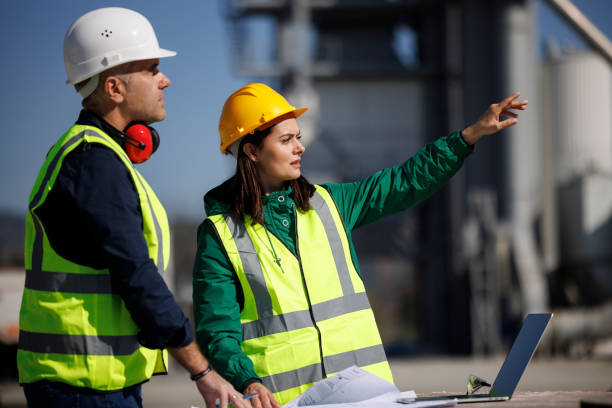
Construction Managers
Construction Managers oversee construction projects, ensuring they are completed on time, within budget, and to specifications.

Education and Childcare Administrators, Preschool and Daycare
Education and Childcare Administrators oversee preschool and daycare programs, ensuring a safe and nurturing environment for children while managing staff and operations.

Education Administrators, Kindergarten through Secondary
Education Administrators, Kindergarten through Secondary oversee the daily operations of schools and educational institutions, ensuring a conducive learning environment for students and staff.

Education Administrators, Postsecondary
Education Administrators in postsecondary institutions oversee academic programs, manage faculty and staff, and ensure compliance with regulations to enhance student learning and institutional effectiveness.

Education Administrators, All Other
Education Administrators, All Other oversee and manage various educational programs, institutions, and services to improve educational outcomes and ensure compliance with policies and regulations.

Architectural and Engineering Managers
Architectural and Engineering Managers oversee projects that involve the design and construction of buildings, structures, and systems, ensuring they meet technical standards and client requirements.

Food Service Managers
Food Service Managers are responsible for the daily operations of restaurants, cafeterias, and other food service establishments, ensuring efficiency and quality service.

Gambling Managers
Gambling Managers oversee the operations of casino gaming activities, ensuring compliance with regulations and profitability.

Entertainment and Recreation Managers, Except Gambling
Entertainment and Recreation Managers oversee recreational and leisure activities, ensuring they are engaging, safe, and financially viable.

Lodging Managers
Lodging Managers oversee the operations of hotels and other accommodations, ensuring guests have a pleasant experience while maintaining the financial performance of the property.

Medical and Health Services Managers
Medical and Health Services Managers are responsible for overseeing the operations and administration of healthcare facilities or specific departments within those facilities.

Natural Sciences Managers
Natural Sciences Managers coordinate scientific research and development projects, ensuring that they are conducted efficiently and effectively.

Postmasters and Mail Superintendents
Postmasters and Mail Superintendents oversee the operations of postal service facilities, managing staff and ensuring the efficient processing and delivery of mail.

Property, Real Estate, and Community Association Managers
Property, Real Estate, and Community Association Managers oversee the operations and maintenance of residential and commercial properties to enhance their value and ensure satisfactory living and business conditions.

Social and Community Service Managers
Social and Community Service Managers coordinate and oversee community programs and lead social service initiatives to improve the well-being of community members.

Emergency Management Directors
Emergency Management Directors coordinate responses to natural disasters and other emergencies, ensuring the safety and preparedness of communities.

Funeral Home Managers
Funeral Home Managers oversee the operations of funeral homes, ensuring that all services are provided with dignity and respect.

Personal Service Managers, All Other
Personal Service Managers, All Other oversee and coordinate a variety of personal services ranging from spa and wellness facilities to personal care and grooming services.

Managers, All Other
Managers, All Other oversee a diverse range of managerial responsibilities across various industries and sectors, ensuring efficient operations and strategic goal achievement.

Agents and Business Managers of Artists, Performers, and Athletes
Agents and Business Managers act as intermediaries between artists, performers, and athletes and the entertainment or sports industries, negotiating contracts and managing their clients' business affairs.

Buyers and Purchasing Agents
Buyers and Purchasing Agents are professionals responsible for sourcing and acquiring goods and services for organizations to ensure they meet market demands and operational needs.

Claims Adjusters, Examiners, and Investigators
Claims Adjusters, Examiners, and Investigators assess insurance claims to determine their validity and negotiate settlements.

Insurance Appraisers, Auto Damage
Insurance Appraisers, Auto Damage assess damage to vehicles to determine the cost of repairs or the total loss value for insurance purposes.

Compliance Officers
Compliance Officers ensure that organizations adhere to regulatory standards and internal policies.
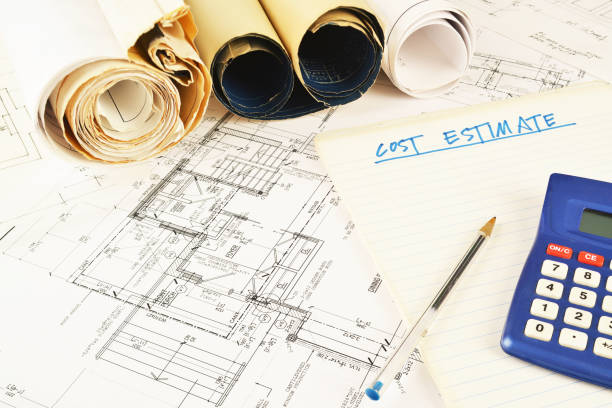
Cost Estimators
Cost estimators analyze project plans and specifications to prepare time, cost, materials, and labor estimates for construction or manufacturing projects.

Human Resources Specialists
Human Resources Specialists are professionals who manage the recruitment, selection, and development of an organization’s workforce, ensuring the best fit between employees and company needs.

Farm Labor Contractors
Farm Labor Contractors manage the recruitment, hiring, and supervision of seasonal agricultural workers, ensuring compliance with labor laws and agricultural regulations.

Labor Relations Specialists
Labor Relations Specialists manage the relationship between employers and employees, focusing on labor laws, collective bargaining, and workplace disputes.

Logisticians
Logisticians manage the supply chain and coordinate the flow of goods from suppliers to consumers.

Project Management Specialists
Project Management Specialists are professionals who coordinate, plan, and execute projects to ensure they are completed on time, within budget, and meeting the required quality standards.

Management Analysts
Management Analysts help organizations improve their efficiency and effectiveness by analyzing operations and providing strategic recommendations.

Meeting, Convention, and Event Planners
Meeting, Convention, and Event Planners coordinate all aspects of professional events, including planning, logistics, and execution to ensure a successful experience for attendees.

Fundraisers
Fundraisers design and implement strategies to solicit donations and support for organizations, non-profits, or causes.

Compensation, Benefits, and Job Analysis Specialists
Compensation, benefits, and job analysis specialists design and manage employee compensation programs and benefit plans to attract and retain talent while ensuring compliance with laws and regulations.

Training and Development Specialists
Training and Development Specialists design and implement training programs to enhance employees' skills and knowledge in an organization.

Market Research Analysts and Marketing Specialists
Market Research Analysts and Marketing Specialists study market conditions to understand potential sales of a product or service.

Business Operations Specialists, All Other
Business Operations Specialists manage and improve the efficiency of organizational processes across various departments.

Accountants and Auditors
Accountants and auditors are financial professionals who ensure the accuracy of financial records, prepare financial statements, and ensure compliance with regulations.

Property Appraisers and Assessors
Property Appraisers and Assessors evaluate real property to determine its value for various purposes such as taxation, sales, and financing.

Budget Analysts
Budget analysts prepare and manage the budget of an organization or government entity, ensuring financial resources are allocated efficiently and effectively.

Credit Analysts
Credit analysts evaluate the creditworthiness of individuals or businesses to determine the risk of lending money or extending credit.

Financial and Investment Analysts
Financial and Investment Analysts evaluate investment opportunities and financial data to guide businesses and individuals in making informed investment decisions.

Personal Financial Advisors
Personal financial advisors help clients manage their finances by providing tailored advice on investments, savings, and financial planning.

Insurance Underwriters
Insurance underwriters assess risks and determine the terms and pricing of insurance policies.

Financial Risk Specialists
Financial Risk Specialists analyze potential risks and develop strategies to mitigate them, ensuring the financial stability of organizations.

Financial Examiners
Financial Examiners ensure compliance with financial regulations and laws by evaluating and analyzing financial documents.

Credit Counselors
Credit counselors provide guidance to individuals on managing their finances and debts to achieve better financial health.

Loan Officers
Loan Officers evaluate, authorize, or recommend approval of loan applications to financial institutions.

Tax Examiners and Collectors, and Revenue Agents
Tax Examiners and Collectors, and Revenue Agents are responsible for ensuring compliance with tax laws by reviewing tax returns and collecting taxes owed.

Tax Preparers
Tax preparers help individuals and businesses prepare and file their income tax returns accurately and efficiently.

Financial Specialists, All Other
Financial specialists, all other, are professionals who provide various financial services to organizations, focusing on financial management, analysis, and strategy to optimize financial performance.
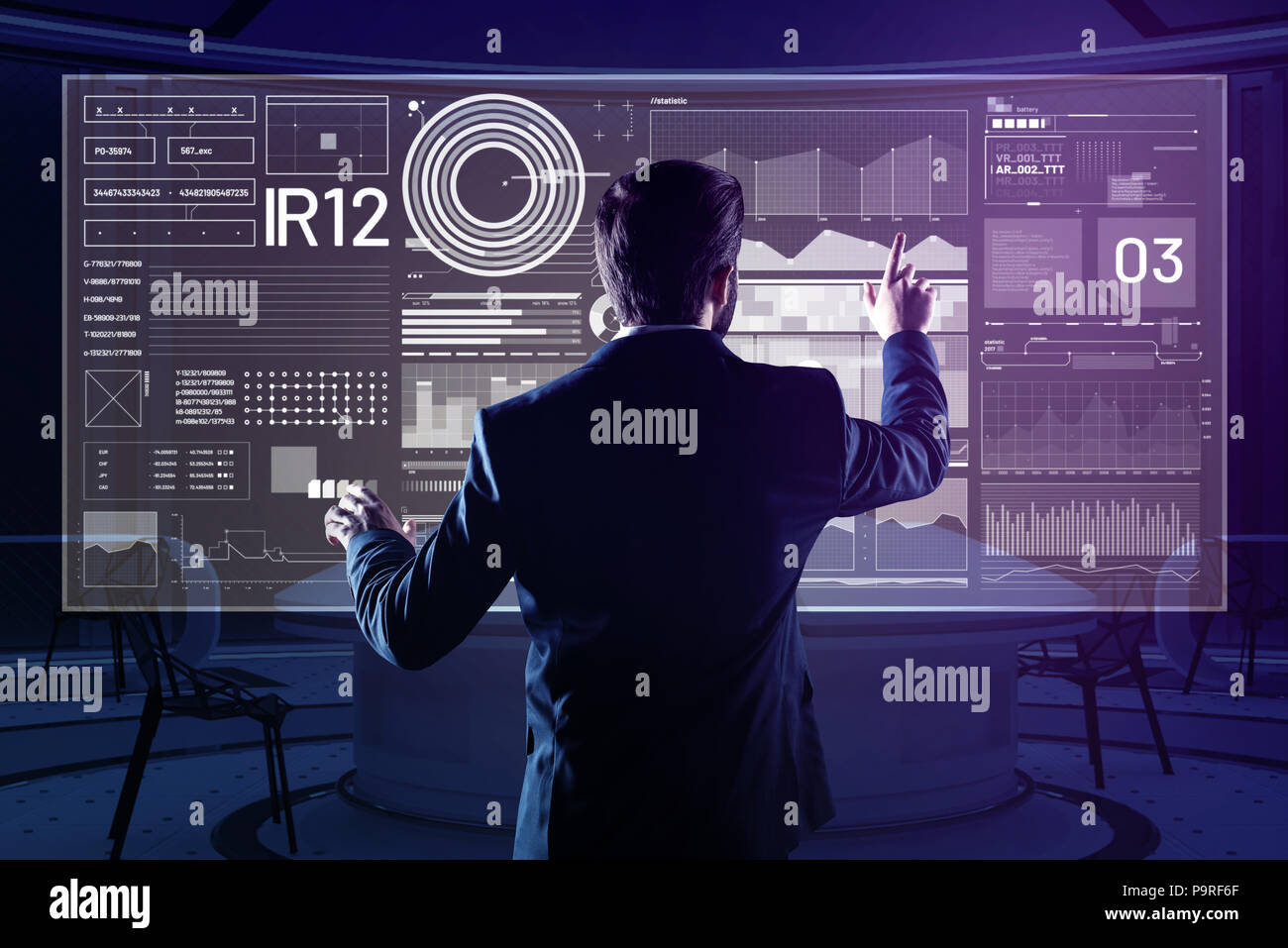
Computer Systems Analysts
Computer Systems Analysts evaluate and improve computer systems for businesses by integrating IT solutions with business processes.

Information Security Analysts
Information Security Analysts protect an organization's computer systems and networks from cyber threats and attacks.

Computer and Information Research Scientists
Computer and Information Research Scientists develop innovative computer systems and algorithms to advance information technology and solve complex computing problems.
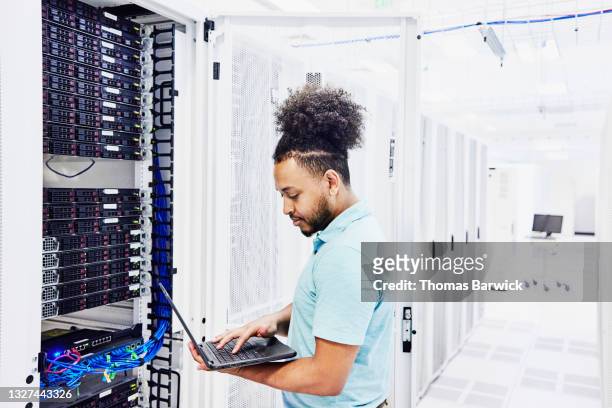
Computer Network Support Specialists
Computer Network Support Specialists are IT professionals who ensure the smooth operation of an organization's computer networks.

Computer User Support Specialists
Computer User Support Specialists assist users by troubleshooting software and hardware issues, providing technical support, and guiding users through complex systems.
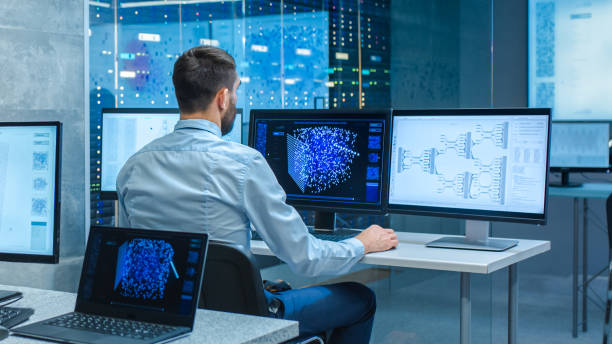
Computer Network Architects
Computer Network Architects design, implement, and maintain the networking infrastructure of an organization, ensuring efficient data communication and connectivity.

Database Administrators
Database Administrators are responsible for the performance, security, and integrity of databases, ensuring that data is stored, organized, and accessible to users.

Database Architects
Database Architects design, create, and manage databases to ensure data is effectively stored, accessed, and analyzed.

Network and Computer Systems Administrators
Network and computer systems administrators manage and maintain an organization's computer networks and systems, ensuring their smooth operation and security.

Computer Programmers
Computer programmers write and test code that allows computer software and applications to function.

Software Developers
Software developers create, design, and maintain software applications or systems that solve problems or fulfill user needs.

Software Quality Assurance Analysts and Testers
Software Quality Assurance Analysts and Testers ensure that software products meet quality standards through rigorous testing and evaluation processes.

Web Developers
Web developers create and maintain websites, ensuring they are functional, user-friendly, and visually appealing.

Web and Digital Interface Designers
Web and Digital Interface Designers create user-friendly interfaces for websites and digital applications, focusing on aesthetics and functionality.

Computer Occupations, All Other
Computer occupations, all other encompass various specialized technical roles in the information technology sector that do not fit neatly into traditional categories.

Actuaries
Actuaries analyze financial risks using mathematics, statistics, and financial theory, primarily to help organizations manage their future financial uncertainties.

Mathematicians
Mathematicians use mathematical theories, models, and techniques to solve practical problems in business, engineering, the sciences, and other fields.

Operations Research Analysts
Operations Research Analysts use mathematical and analytical methods to help organizations improve decision-making and efficiency.

Statisticians
Statisticians analyze and interpret quantitative data to solve real-world problems using statistical methods.

Data Scientists
Data Scientists analyze and interpret complex data to help organizations make informed decisions.

Mathematical Science Occupations, All Other
Mathematical Science Occupations, All Other encompasses a variety of roles involving advanced mathematical methods and the application of mathematical theory to solve practical problems.

Architects, Except Landscape and Naval
Architects, Except Landscape and Naval design buildings and other structures, ensuring they are functional, safe, and aesthetically pleasing.

Landscape Architects
Landscape Architects design outdoor spaces, including parks, gardens, and urban areas, to enhance their aesthetic, functional, and environmental qualities.
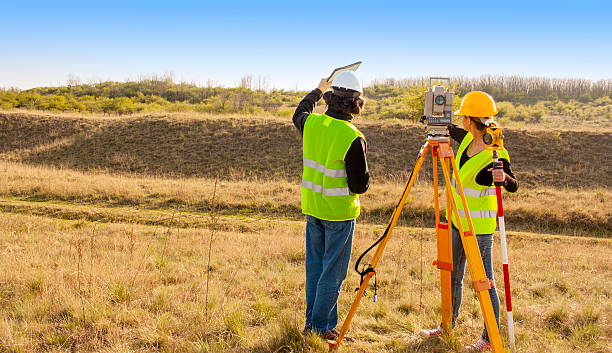
Cartographers and Photogrammetrists
Cartographers and photogrammetrists create maps and analyze spatial data to provide essential information about the Earth’s surface.
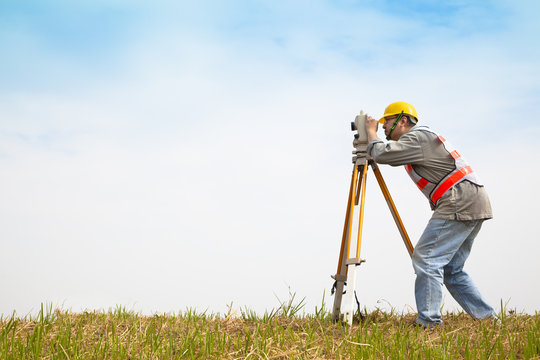
Surveyors
Surveyors are professionals who measure and map land, airspace, and water boundaries to provide accurate and detailed information essential for various construction and development projects.
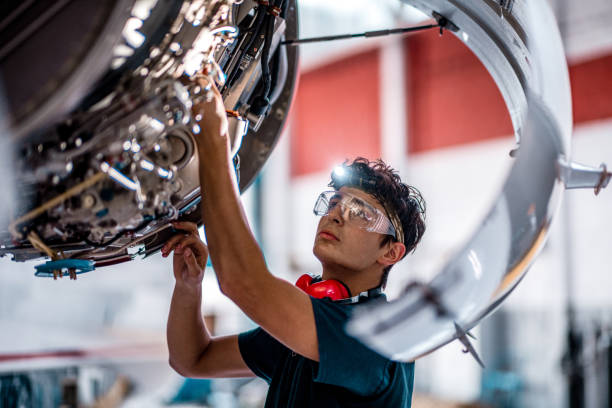
Aerospace Engineers
Aerospace Engineers design, develop, and test aircraft, spacecraft, satellites, and missiles, focusing on both the science and technology of aviation and aerospace.

Agricultural Engineers
Agricultural Engineers apply engineering principles to agricultural production and processing, developing solutions for issues related to soil, water, and crop management.

Bioengineers and Biomedical Engineers
Bioengineers and biomedical engineers apply principles of engineering and biological sciences to create solutions for healthcare and biotechnology.

Chemical Engineers
Chemical engineers apply principles of chemistry, physics, mathematics, and engineering to solve problems related to the production or use of chemicals, fuel, drugs, food, and more.

Civil Engineers
Civil engineers design, construct, and maintain infrastructure projects like roads, bridges, and buildings.

Computer Hardware Engineers
Computer Hardware Engineers design and test the physical components of computers and other electronic devices.

Electrical Engineers
Electrical engineers design, develop, and maintain electrical systems and components to ensure they function safely and effectively.

Electronics Engineers, Except Computer
Electronics engineers, except computer, design, develop, and test electronic systems and components used in a variety of devices and applications.

Environmental Engineers
Environmental Engineers design, implement, and manage solutions to environmental problems, using principles of engineering, soil science, biology, and chemistry.

Health and Safety Engineers, Except Mining Safety Engineers and Inspectors
Health and Safety Engineers, Except Mining Safety Engineers and Inspectors design and implement systems to prevent workplace injuries and illnesses.

Industrial Engineers
Industrial Engineers optimize complex systems and processes to improve efficiency and productivity in various industries.

Marine Engineers and Naval Architects
Marine Engineers and Naval Architects design, build, and maintain ships, boats, and other marine vessels, ensuring their functionality, safety, and efficiency.
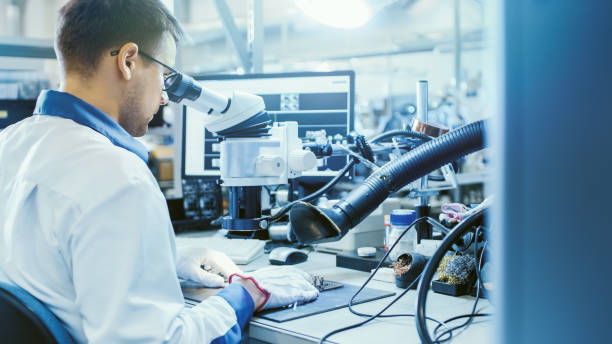
Materials Engineers
Materials engineers develop, process, and test materials to create new products or improve existing ones.

Mechanical Engineers
Mechanical engineers design, analyze, and manufacture mechanical systems and devices, applying principles of engineering, physics, and materials science.
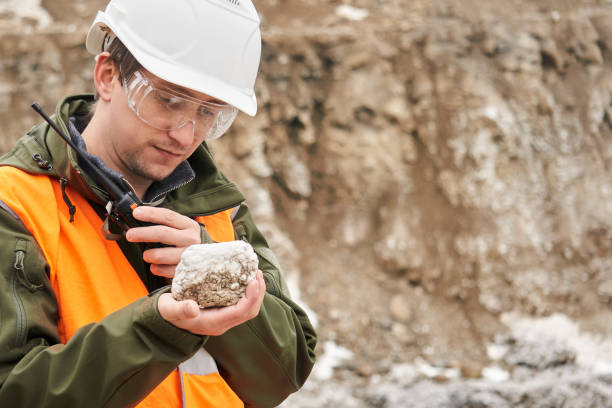
Mining and Geological Engineers, Including Mining Safety Engineers
Mining and Geological Engineers design and develop mines and assess mineral resources, ensuring safe and efficient extraction of minerals.

Nuclear Engineers
Nuclear engineers design, develop, and maintain systems and equipment used in nuclear energy generation and radiation detection.

Petroleum Engineers
Petroleum engineers design and develop methods for extracting oil and gas from deposits below the Earth's surface.
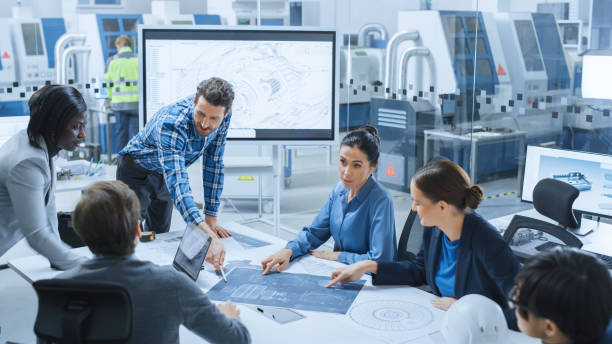
Engineers, All Other
Engineers, All Other is a specialized role encompassing a variety of engineering disciplines that do not fit into standard categories, focusing on innovative solutions across diverse sectors.

Architectural and Civil Drafters
Architectural and Civil Drafters prepare detailed drawings and plans for buildings, roads, and other structures using specialized software and technical knowledge.
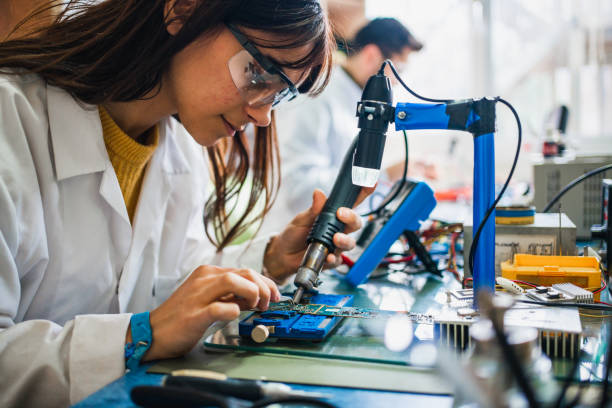
Electrical and Electronics Drafters
Electrical and Electronics Drafters create detailed schematics and blueprints for electrical systems using specialized software.

Mechanical Drafters
Mechanical drafters create detailed drawings and plans for machinery, products, and systems using specialized software.

Drafters, All Other
Drafters, All Other create detailed technical drawings and plans used in various industries, ranging from construction to manufacturing.
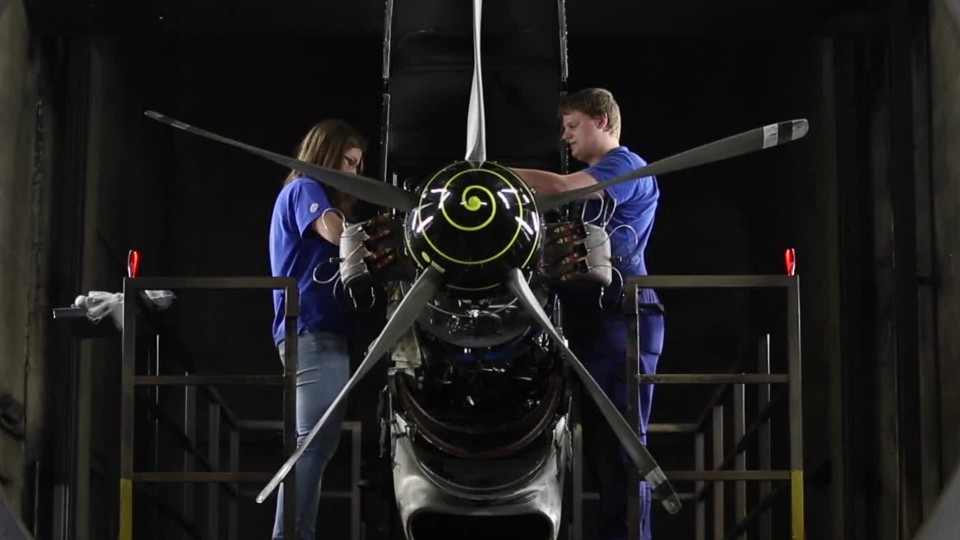
Aerospace Engineering and Operations Technologists and Technicians
Aerospace Engineering and Operations Technologists and Technicians support the design, development, testing, and production of aircraft, spacecraft, and related systems.

Civil Engineering Technologists and Technicians
Civil Engineering Technologists and Technicians assist civil engineers in the planning, design, and construction of infrastructure projects such as roads, bridges, and buildings.

Electrical and Electronic Engineering Technologists and Technicians
Electrical and Electronic Engineering Technologists and Technicians work with electrical systems and electronic devices, playing a crucial role in designing, developing, testing, and maintaining electrical equipment and systems.
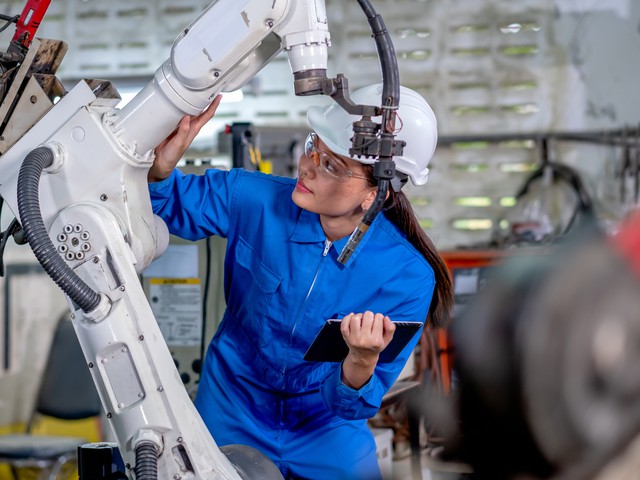
Electro-Mechanical and Mechatronics Technologists and Technicians
Electro-mechanical and mechatronics technologists and technicians work with a combination of electrical and mechanical systems to design, develop, and maintain advanced automation systems.

Environmental Engineering Technologists and Technicians
Environmental Engineering Technologists and Technicians support engineers in the development and implementation of environmental protection programs and solutions.

Industrial Engineering Technologists and Technicians
Industrial Engineering Technologists and Technicians assist engineers in designing processes and systems that improve efficiency, productivity, and quality in manufacturing and service sectors.
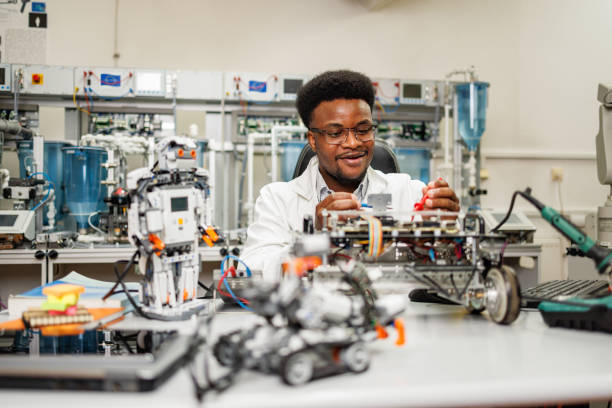
Mechanical Engineering Technologists and Technicians
Mechanical engineering technologists and technicians assist in the design, development, and implementation of mechanical systems and processes.

Calibration Technologists and Technicians
Calibration Technologists and Technicians ensure that measuring instruments and equipment operate accurately and within specified limits.

Engineering Technologists and Technicians, Except Drafters, All Other
Engineering technologists and technicians work alongside engineers to help design, develop, and implement complex systems and technologies.

Surveying and Mapping Technicians
Surveying and mapping technicians assist surveyors and cartographers in collecting, analyzing, and interpreting geographical data for various purposes such as construction, mapping, and urban planning.
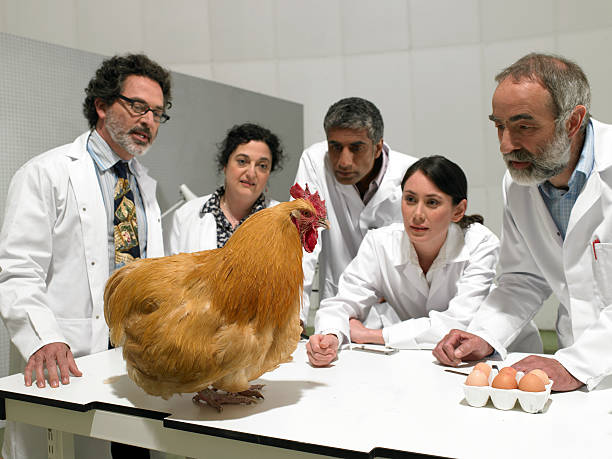
Animal Scientists
Animal scientists study animals and their biological processes to improve livestock breeding, animal health, and nutrition.

Food Scientists and Technologists
Food Scientists and Technologists study the physical, microbiological, and chemical makeup of food to improve its quality, safety, and sustainability.

Soil and Plant Scientists
Soil and Plant Scientists study the interactions between soils and plants to improve agricultural productivity and environmental sustainability.
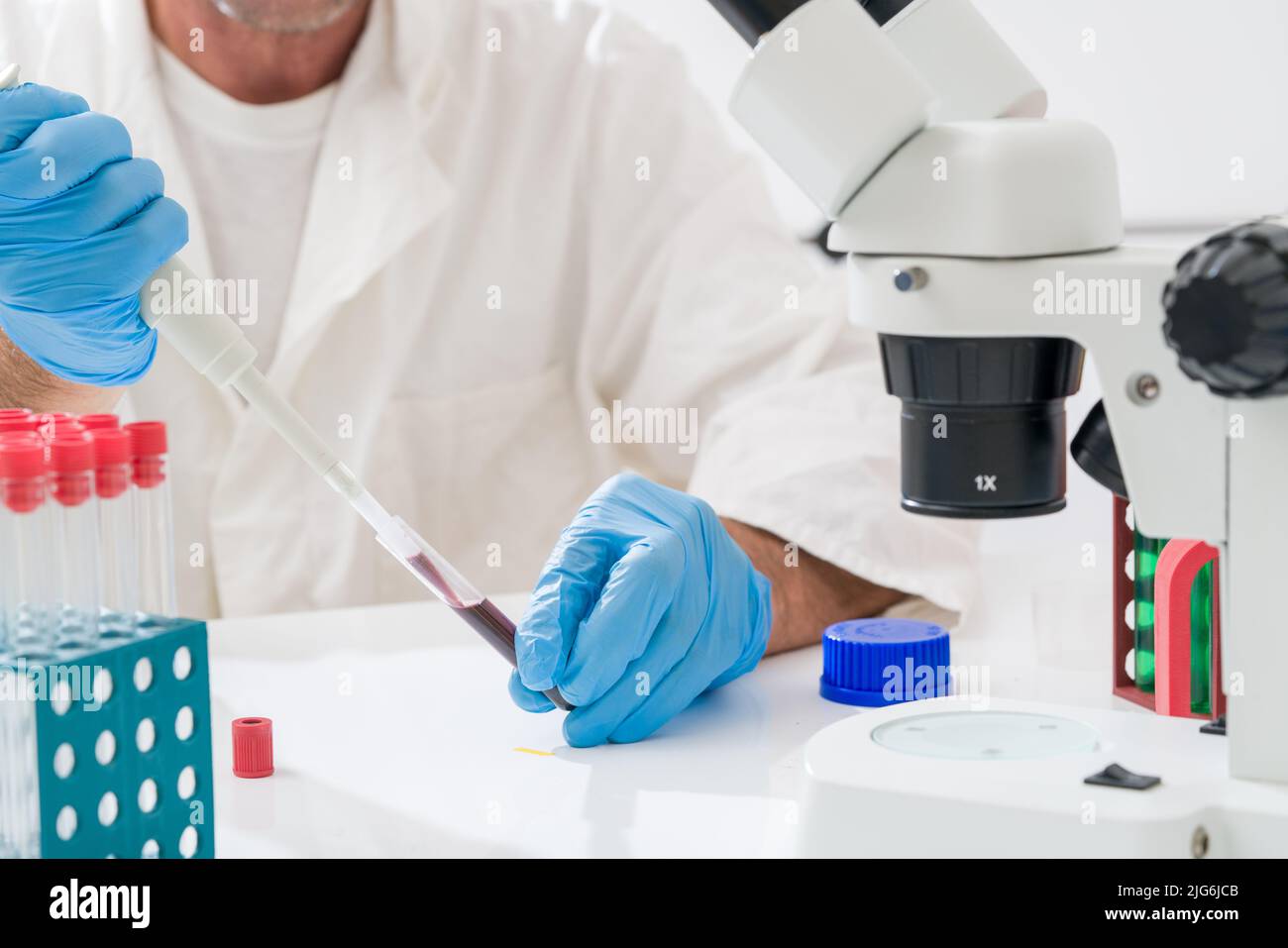
Biochemists and Biophysicists
Biochemists and biophysicists study the chemical processes and physical principles that underlie biological systems.

Microbiologists
Microbiologists study microorganisms to understand their impact on human health, the environment, and various industries.

Zoologists and Wildlife Biologists
Zoologists and wildlife biologists study animals and their ecosystems to understand their behavior, physiology, and interactions with the environment.

Biological Scientists, All Other
Biological scientists, all other, conduct research in various fields of biology, often specializing in areas that do not fit conventional job categories.

Conservation Scientists
Conservation scientists manage and protect natural resources, ensuring sustainability while promoting conservation efforts and environmental health.
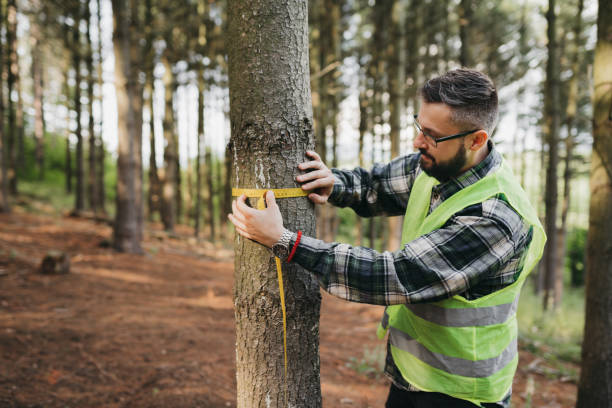
Foresters
Foresters are professionals who manage and protect forested land, ensuring sustainability and conservation of forest resources.

Epidemiologists
Epidemiologists study the distribution and determinants of health-related states or events in specified populations to control health problems.

Medical Scientists, Except Epidemiologists
Medical scientists conduct research to improve overall human health, focusing on diseases and medical conditions through various laboratory experiments and trials.

Life Scientists, All Other
Life Scientists, All Other study living organisms and their relationships to the environment, contributing to fields like biology, ecology, and biotechnology.
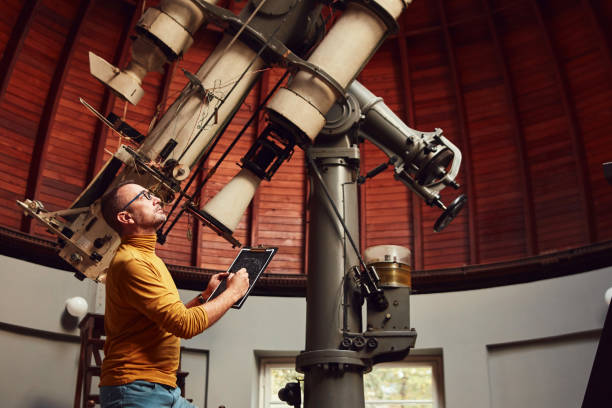
Astronomers
Astronomers study celestial bodies and phenomena, aiming to understand the universe and its components.

Physicists
Physicists study the fundamental principles of matter, energy, and the universe to understand how the world works at both macro and micro levels.

Atmospheric and Space Scientists
Atmospheric and Space Scientists study the atmosphere and the physical properties of space, focusing on weather, climate change, and cosmic phenomena.

Chemists
Chemists study the properties and reactions of substances to develop new products and processes that improve our lives.

Materials Scientists
Materials scientists study and develop materials to create new products and improve existing ones, focusing on their properties, performance, and durability.

Environmental Scientists and Specialists, Including Health
Environmental Scientists and Specialists study and research various aspects of the environment, including pollution, conservation, and sustainable practices to protect public health and ecosystems.
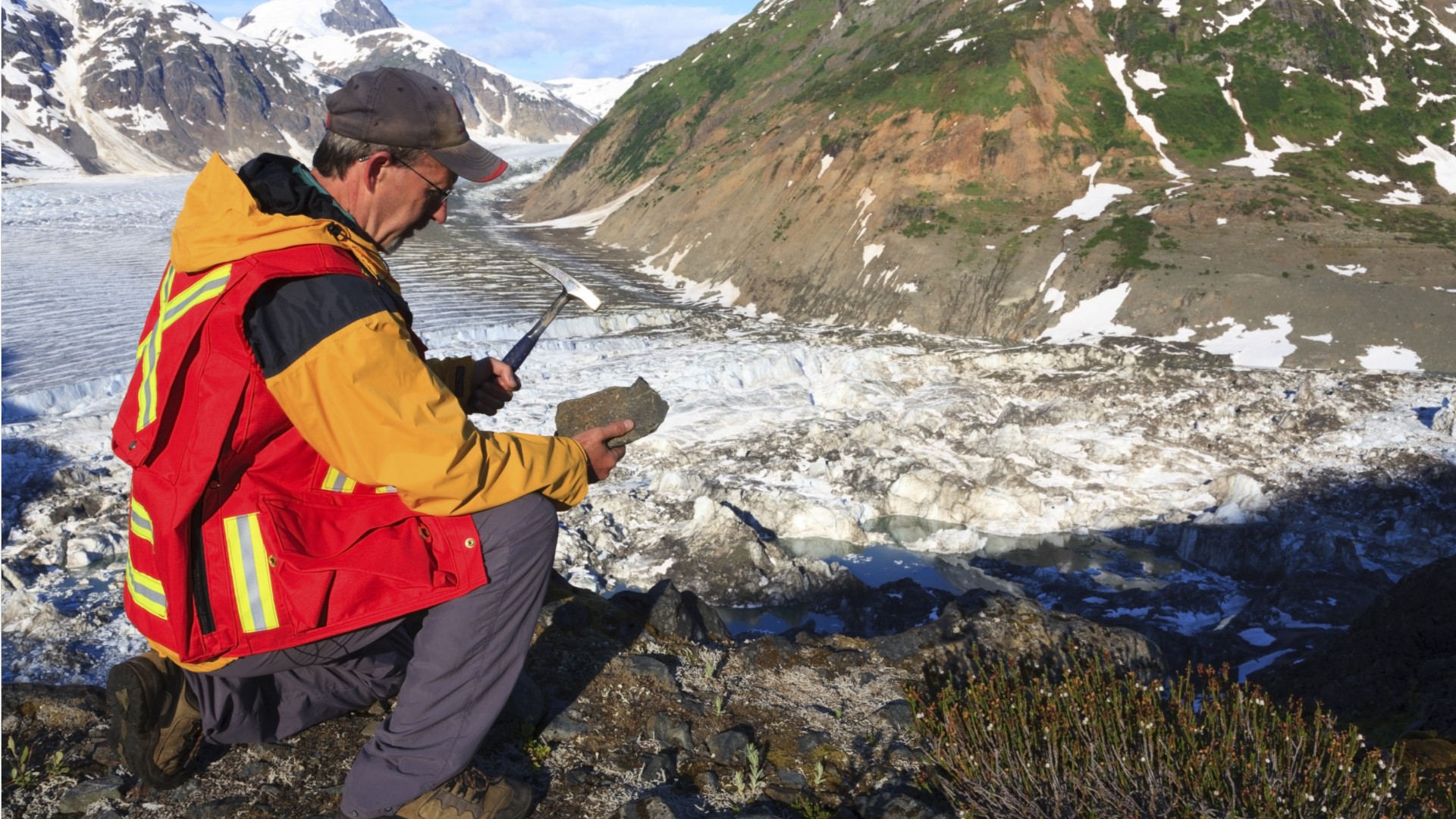
Geoscientists, Except Hydrologists and Geographers
Geoscientists, except hydrologists and geographers, study the physical aspects of the Earth and its resources, focusing on their structure, composition, and processes.

Hydrologists
Hydrologists study the distribution, movement, and properties of water in the Earth's environment, focusing on how it interacts with the atmosphere, land, and living organisms.
Physical Scientists, All Other
Physical Scientists, All Other conduct research and experiments to study the physical properties of various materials and systems.

Economists
Economists study the production, distribution, and consumption of goods and services, analyzing data and trends to understand economic issues and guide policy.

Survey Researchers
Survey Researchers design and conduct surveys to gather data and analyze responses to help understand public opinion and market trends.

Industrial-Organizational Psychologists
Industrial-Organizational Psychologists apply psychological principles to workplace issues to improve employee performance and well-being.

Clinical and Counseling Psychologists
Clinical and Counseling Psychologists assess, diagnose, and treat mental health issues, providing therapeutic support to individuals and groups.

School Psychologists
School psychologists are trained professionals who help students succeed academically, socially, and emotionally, primarily within educational settings.

Psychologists, All Other
Psychologists, All Other, are specialists in various subfields of psychology who provide insights, assessments, and interventions based on psychological principles.

Sociologists
Sociologists study social behavior, institutions, and structures to understand how societies function and how social forces shape people’s lives.

Urban and Regional Planners
Urban and Regional Planners develop plans and programs for land use in urban and regional areas, focusing on creating sustainable and functional communities.

Anthropologists and Archeologists
Anthropologists and archeologists study human societies, cultural practices, and the past through material remains, contributing to our understanding of human diversity and historical development.

Geographers
Geographers study the Earth's landscapes, environments, and the relationships between people and their environments.

Historians
Historians study and interpret the past, using various sources to understand and explain historical events and contexts.

Political Scientists
Political scientists study the theory and practice of politics and government, analyzing political systems, behavior, and issues.

Social Scientists and Related Workers, All Other
Social Scientists and Related Workers, All Other study and analyze human behavior, relationships, and social institutions, applying social science theories and methodologies to address societal issues.

Agricultural Technicians
Agricultural Technicians support agricultural scientists by conducting experiments, collecting data, and maintaining equipment to improve farming practices and crop production.

Food Science Technicians
Food Science Technicians assist food scientists in the research and development of food products, ensuring safety, quality, and compliance with regulations.
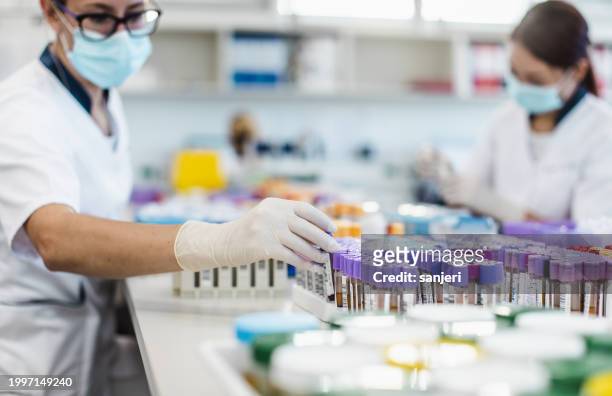
Biological Technicians
Biological technicians assist biological and medical scientists by preparing experiments, collecting data, and analyzing results in laboratory settings.

Chemical Technicians
Chemical technicians support chemists and engineers in the development and production of chemical products, conducting experiments and analyzing results.
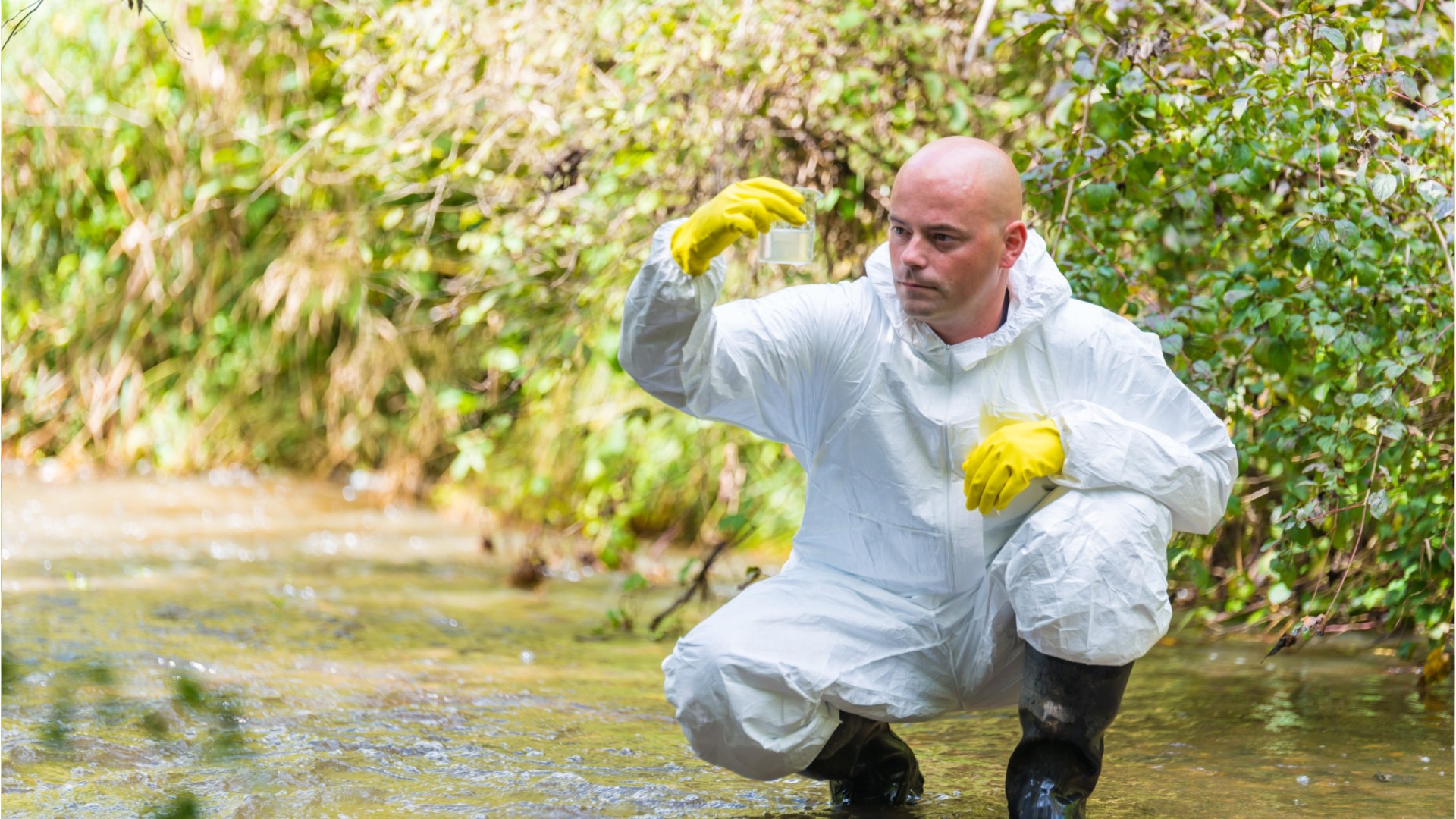
Environmental Science and Protection Technicians, Including Health
Environmental Science and Protection Technicians help protect the environment by monitoring and improving the health of ecosystems and ensuring compliance with environmental regulations.

Geological Technicians, Except Hydrologic Technicians
Geological technicians assist scientists in the exploration and study of the Earth's physical properties by conducting investigations and analyzing geological samples.

Hydrologic Technicians
Hydrologic technicians assist hydrologists by collecting and analyzing data related to water sources, helping to manage and preserve water resources effectively.

Nuclear Technicians
Nuclear technicians assist in nuclear energy production and the use of radioactive materials, ensuring the safe and efficient operation of nuclear power facilities.

Social Science Research Assistants
Social Science Research Assistants support researchers in various social science fields by collecting and analyzing data, helping to investigate social behaviors and trends.

Forest and Conservation Technicians
Forest and Conservation Technicians assist in managing forest resources and implementing conservation practices to preserve natural habitats and ecosystems.

Forensic Science Technicians
Forensic science technicians collect, preserve, and analyze various forms of evidence for criminal investigations.

Life, Physical, and Social Science Technicians, All Other
Life, physical, and social science technicians assist scientists in laboratories and field research, contributing to a variety of scientific endeavors.

Occupational Health and Safety Specialists
Occupational Health and Safety Specialists ensure safe working conditions by identifying hazards and implementing safety programs to prevent accidents and injuries in the workplace.

Occupational Health and Safety Technicians
Occupational Health and Safety Technicians support the implementation of workplace health and safety programs to ensure compliance with regulations and promote a safe work environment.

Educational, Guidance, and Career Counselors and Advisors
Educational, Guidance, and Career Counselors and Advisors assist students and individuals in making informed decisions about educational paths and career choices.

Marriage and Family Therapists
Marriage and family therapists provide counseling to individuals, couples, and families to improve relationships and resolve issues.

Rehabilitation Counselors
Rehabilitation counselors assist individuals with disabilities in achieving personal and professional goals through guidance and support.

Substance Abuse, Behavioral Disorder, and Mental Health Counselors
Substance Abuse, Behavioral Disorder, and Mental Health Counselors provide support and treatment for individuals facing addiction and mental health issues.

Counselors, All Other
Counselors, All Other provide support and guidance to individuals facing personal, social, or psychological challenges, but do not fit into more specific counseling roles.

Child, Family, and School Social Workers
Child, Family, and School Social Workers support children and families in overcoming challenges related to mental health, education, and social dynamics, fostering well-being and academic success.

Healthcare Social Workers
Healthcare Social Workers assist patients in navigating the healthcare system and improve their overall wellbeing by providing support and resources.

Mental Health and Substance Abuse Social Workers
Mental Health and Substance Abuse Social Workers assist individuals facing mental health challenges or substance abuse issues, providing support, guidance, and access to resources for recovery and well-being.

Social Workers, All Other
Social workers, all other, encompass various specialized roles focused on improving the well-being and quality of life for individuals or communities facing challenges.
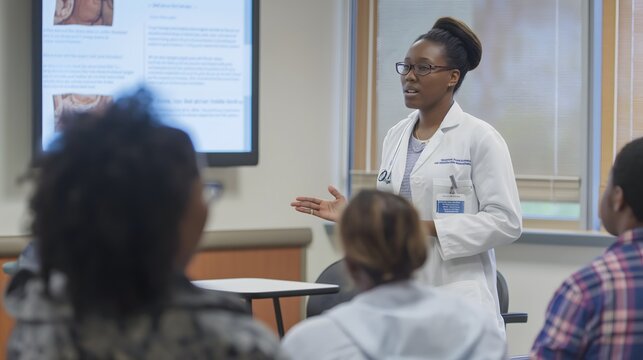
Health Education Specialists
Health Education Specialists are professionals who develop programs to promote health and wellness, educating individuals and communities on health-related topics.

Probation Officers and Correctional Treatment Specialists
Probation Officers and Correctional Treatment Specialists supervise offenders placed on probation or parole and assist in their rehabilitation.

Social and Human Service Assistants
Social and Human Service Assistants provide support and assistance to individuals and families in need of social services, helping them access resources and improve their quality of life.

Community Health Workers
Community Health Workers (CHWs) serve as a bridge between healthcare providers and the community, focusing on promoting health and improving healthcare access.

Community and Social Service Specialists, All Other
Community and Social Service Specialists, All Other work to improve the well-being of individuals and communities through social services, advocacy, and support initiatives.

Clergy
Clergy are religious leaders who provide spiritual guidance and support to individuals and communities within their faith traditions.

Directors, Religious Activities and Education
Directors of Religious Activities and Education oversee and coordinate educational and spiritual programs within religious organizations.

Religious Workers, All Other
Religious Workers, All Other engage in a variety of religious activities within their communities that do not fall under specific job titles, supporting spiritual welfare and community engagement.

Lawyers
Lawyers advocate for clients in legal matters, providing advice and representing them in various situations, including court proceedings.

Judicial Law Clerks
Judicial law clerks assist judges in research, drafting opinions, and managing cases in courts.

Administrative Law Judges, Adjudicators, and Hearing Officers
Administrative Law Judges, Adjudicators, and Hearing Officers are legal professionals who oversee formal hearings and make decisions on legal disputes involving administrative law.

Arbitrators, Mediators, and Conciliators
Arbitrators, mediators, and conciliators are professionals who facilitate negotiation and resolution of disputes outside of the court system.

Judges, Magistrate Judges, and Magistrates
Judges, Magistrate Judges, and Magistrates preside over court proceedings, ensuring justice is served based on the rule of law.

Paralegals and Legal Assistants
Paralegals and Legal Assistants support lawyers by conducting legal research, drafting documents, and managing case files.
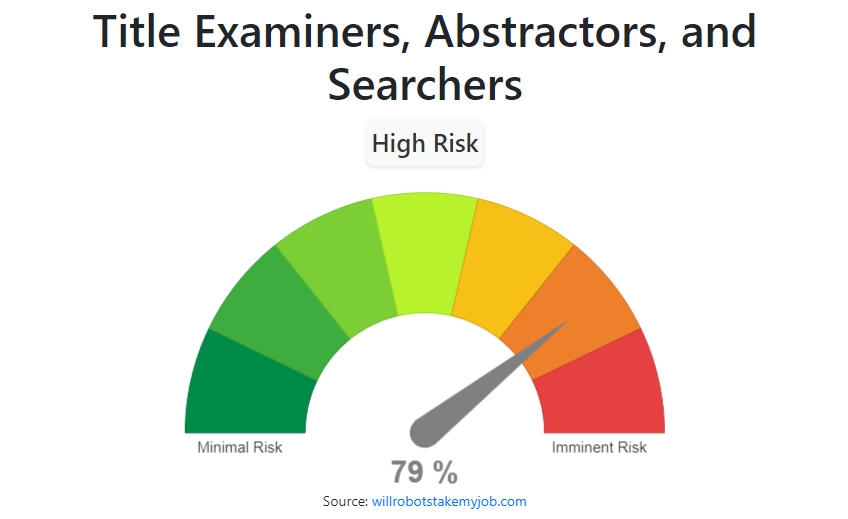
Title Examiners, Abstractors, and Searchers
Title Examiners, Abstractors, and Searchers review public records to determine the legal status of a property and ensure clear ownership before a real estate transaction.

Legal Support Workers, All Other
Legal Support Workers, All Other assist legal professionals by providing various administrative and clerical support in legal settings.
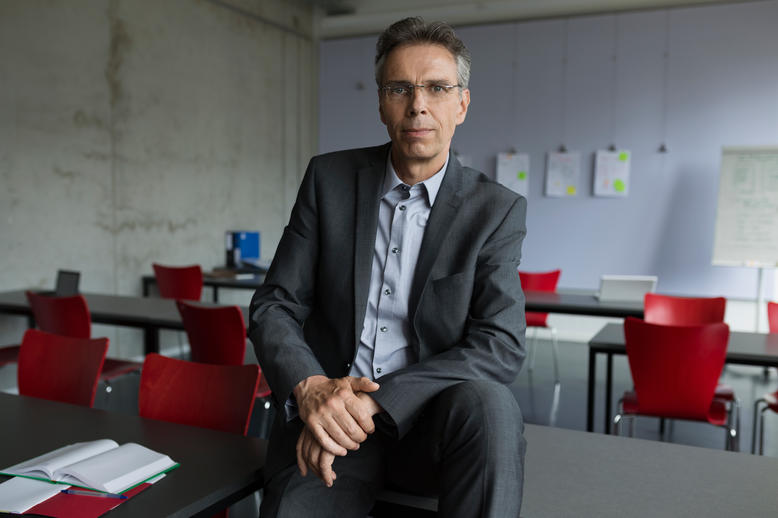
Business Teachers, Postsecondary
Business Teachers, Postsecondary educate students in the field of business, management, and entrepreneurship at the collegiate level.

Computer Science Teachers, Postsecondary
Computer Science Teachers, Postsecondary educate students in various aspects of computer science, including programming, systems analysis, and software development.

Mathematical Science Teachers, Postsecondary
Mathematical Science Teachers at the postsecondary level educate students in advanced mathematical concepts and applications through lectures, discussions, and hands-on activities.

Architecture Teachers, Postsecondary
Architecture teachers at the postsecondary level educate students in the principles and practices of architecture and urban design.

Engineering Teachers, Postsecondary
Engineering teachers in postsecondary institutions educate and train students in various engineering disciplines through a combination of theoretical knowledge and practical application.

Agricultural Sciences Teachers, Postsecondary
Agricultural Sciences Teachers, Postsecondary educate students on various aspects of agriculture, horticulture, and related sciences.

Biological Science Teachers, Postsecondary
Biological Science Teachers, Postsecondary educate students in various aspects of biology at the college or university level, preparing them for careers in biological sciences or advanced study.

Forestry and Conservation Science Teachers, Postsecondary
Forestry and Conservation Science Teachers at the postsecondary level educate students on the principles of forest management, conservation practices, and the sustainable use of natural resources.

Atmospheric, Earth, Marine, and Space Sciences Teachers, Postsecondary
Atmospheric, Earth, Marine, and Space Sciences Teachers, Postsecondary educate students about the Earth's systems and the universe, preparing them for careers in research, education, and various scientific fields.

Chemistry Teachers, Postsecondary
Postsecondary chemistry teachers are responsible for educating students at colleges and universities about chemical principles, theories, and applications.

Environmental Science Teachers, Postsecondary
Environmental Science Teachers, Postsecondary educate college students about the principles of environmental science, sustainable practices, and the impact of human activities on the natural world.
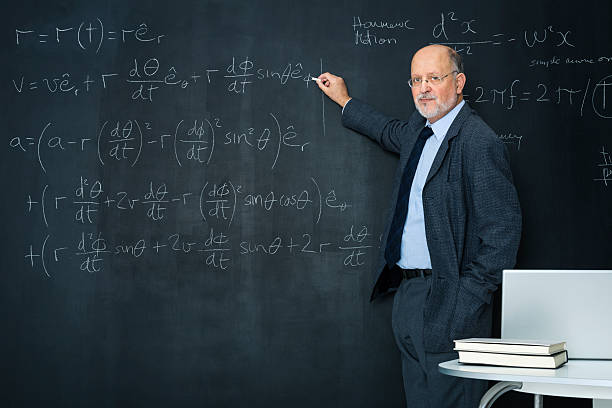
Physics Teachers, Postsecondary
Postsecondary physics teachers educate students at colleges and universities on the principles of physics, preparing them for careers in science, engineering, and research.
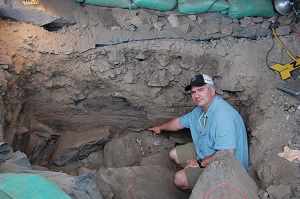
Anthropology and Archeology Teachers, Postsecondary
Anthropology and Archeology Teachers, Postsecondary educate students on the study of human society, culture, and civilizations through both contemporary and historical lenses.

Area, Ethnic, and Cultural Studies Teachers, Postsecondary
Area, Ethnic, and Cultural Studies Teachers, Postsecondary educate students about the cultural, historical, and social aspects of various groups and societies.

Economics Teachers, Postsecondary
Economics teachers at the postsecondary level educate students about economic theories, principles, and practices to prepare them for a variety of careers in business, government, and academia.

Geography Teachers, Postsecondary
Postsecondary geography teachers educate college-level students about the Earth's landscapes, environments, and the relationships between people and their environments.

Political Science Teachers, Postsecondary
Political Science Teachers at the postsecondary level educate students about government systems, political theory, and global affairs, preparing them for various careers in public service, law, and academia.

Psychology Teachers, Postsecondary
Psychology teachers, postsecondary educate students at colleges and universities about the scientific study of behavior and mental processes.

Sociology Teachers, Postsecondary
Sociology teachers in postsecondary education instruct students in the principles of sociology, exploring how societies function and the impact of social relationships on human behavior.

Social Sciences Teachers, Postsecondary, All Other
Social Sciences Teachers, Postsecondary, All Other instruct students on various disciplines within the social sciences, fostering critical thinking and understanding of societal structures and behaviors.
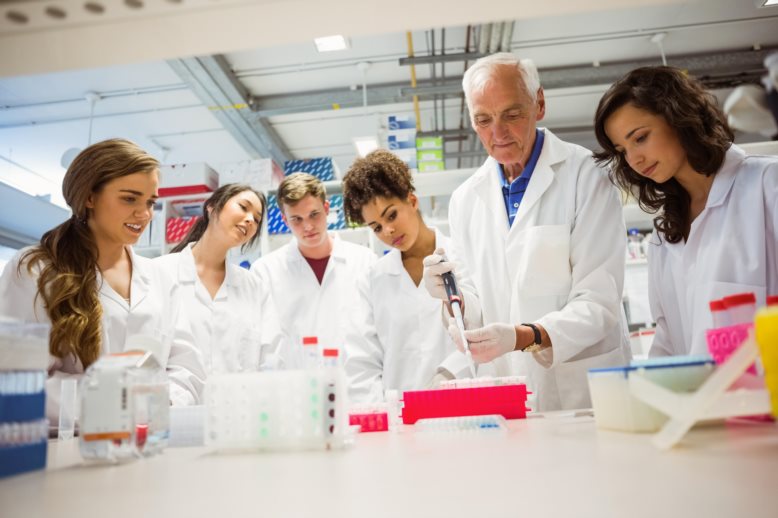
Health Specialties Teachers, Postsecondary
Health Specialties Teachers, Postsecondary educate students on various health-related subjects within colleges and universities.

Nursing Instructors and Teachers, Postsecondary
Postsecondary nursing instructors and teachers educate and train aspiring nurses through classroom instruction and hands-on clinical experiences.

Education Teachers, Postsecondary
Education Teachers, Postsecondary instruct college students and adults in advanced subject matter related to education and teaching practices.

Library Science Teachers, Postsecondary
Library science teachers at the postsecondary level educate students on library science principles and practices, preparing them for careers in library management and information science.

Criminal Justice and Law Enforcement Teachers, Postsecondary
Criminal Justice and Law Enforcement Teachers, Postsecondary instruct students in the principles and practices of criminal justice and law enforcement systems.

Law Teachers, Postsecondary
Law Teachers, Postsecondary educate and instruct students in legal principles, theories, and systems at colleges and universities.

Social Work Teachers, Postsecondary
Social Work Teachers, Postsecondary educate and prepare students for the social work profession by teaching important theories, practices, and techniques necessary for effective social work.

Art, Drama, and Music Teachers, Postsecondary
Art, Drama, and Music Teachers, Postsecondary educate and inspire students in various artistic disciplines at the college or university level.

Communications Teachers, Postsecondary
Communications Teachers, Postsecondary educate students in various aspects of communication, including interpersonal, organizational, and mass communication, often preparing them for careers in diverse fields.

English Language and Literature Teachers, Postsecondary
English Language and Literature Teachers, Postsecondary, educate students at the university level about various aspects of the English language, literature, and critical analysis.

Foreign Language and Literature Teachers, Postsecondary
Foreign Language and Literature Teachers at the postsecondary level educate students about languages and their corresponding literary texts to promote linguistic proficiency and cultural understanding.

History Teachers, Postsecondary
Postsecondary history teachers educate students at colleges and universities about historical events, trends, and contexts.

Philosophy and Religion Teachers, Postsecondary
Philosophy and Religion Teachers in postsecondary education educate students about philosophical thought, religious beliefs, and ethical principles, fostering critical thinking and inquiry.

Family and Consumer Sciences Teachers, Postsecondary
Family and Consumer Sciences Teachers at the postsecondary level educate students about various aspects of family life, consumer economics, and resource management.

Recreation and Fitness Studies Teachers, Postsecondary
Recreation and Fitness Studies Teachers at the postsecondary level educate and train students in areas related to fitness, sports, and recreation management.

Career/Technical Education Teachers, Postsecondary
Career and Technical Education Teachers at the postsecondary level instruct students in various vocational and technical fields, equipping them with essential skills for their chosen careers.

Postsecondary Teachers, All Other
Postsecondary Teachers, All Other are educators who specialize in teaching subjects that do not fall into a predefined category of college or university teaching positions.

Preschool Teachers, Except Special Education
Preschool teachers, except special education, are educators who specialize in providing early childhood education to children typically aged three to five.

Kindergarten Teachers, Except Special Education
Kindergarten teachers, except special education, are responsible for teaching and nurturing young children, typically ages 5 to 6, in a classroom setting to prepare them for elementary school.

Elementary School Teachers, Except Special Education
Elementary school teachers educate and nurture young children in grades K-6, focusing on developing foundational skills in various subjects.

Middle School Teachers, Except Special and Career/Technical Education
Middle School Teachers educate students in grades six through eight in various subjects, fostering their academic and social development.
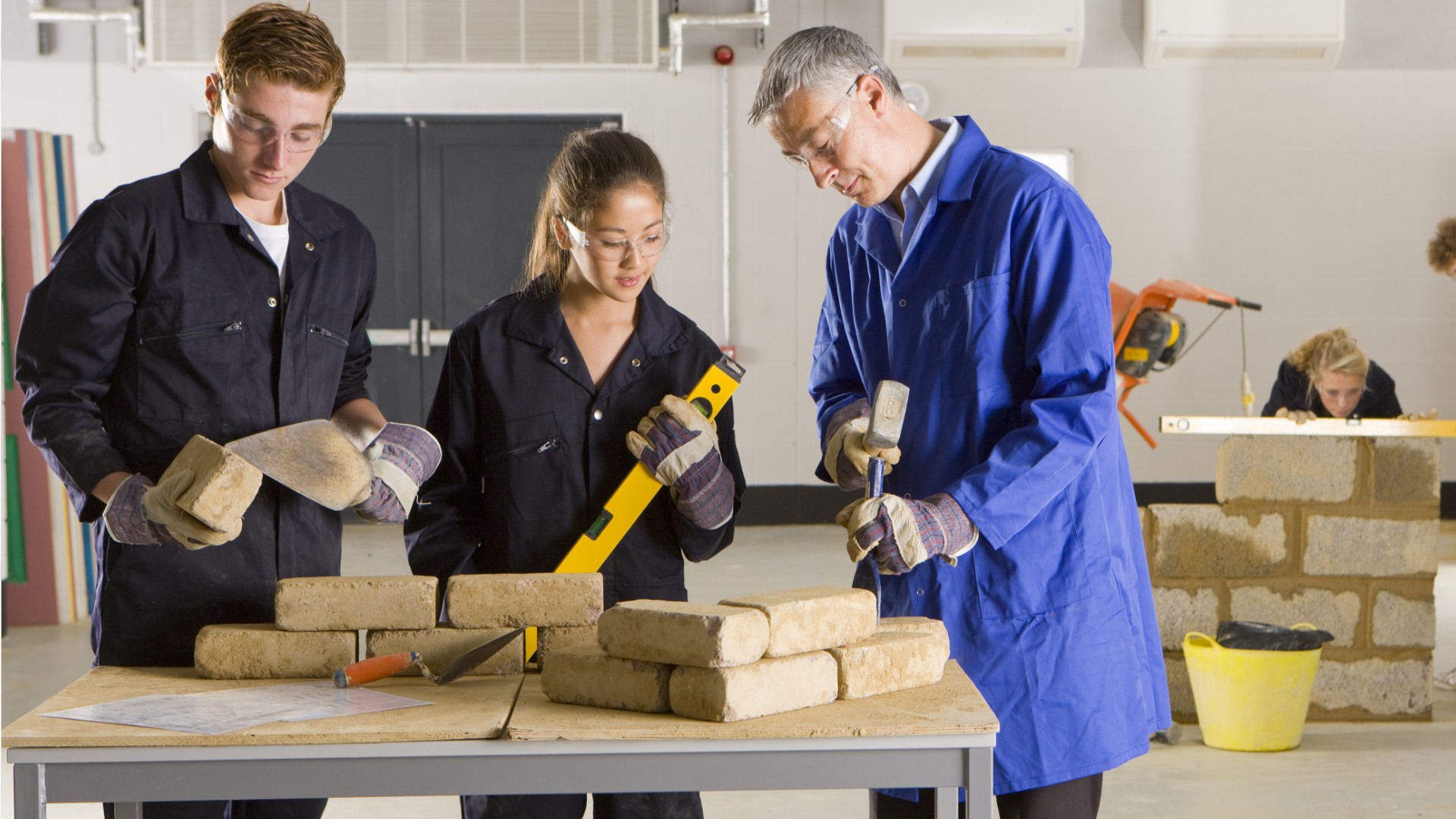
Career/Technical Education Teachers, Middle School
Career/Technical Education Teachers at the middle school level help students develop practical skills for various career pathways while fostering an understanding of important technical concepts.

Secondary School Teachers, Except Special and Career/Technical Education
Secondary school teachers, except special and career/technical education, are educators who teach academic subjects to students typically in grades 9 through 12, preparing them for higher education or the workforce.

Career/Technical Education Teachers, Secondary School
Career/Technical Education Teachers in secondary schools prepare students for specific careers by providing instruction in various vocational and technical subjects.

Special Education Teachers, Preschool
Special Education Teachers for preschool provide tailored instruction and support to young children with disabilities to enhance their learning and development.

Special Education Teachers, Kindergarten and Elementary School
Special Education Teachers for Kindergarten and Elementary School provide tailored instruction to students with disabilities, helping them achieve academic and social success in inclusive classroom settings.

Special Education Teachers, Middle School
Special Education Teachers for middle school students support and instruct students with diverse learning needs and disabilities, ensuring they receive a proper educational experience tailored to their unique requirements.

Special Education Teachers, Secondary School
Special Education Teachers in secondary schools work with students who have a range of learning disabilities and special educational needs to help them succeed academically and socially.

Special Education Teachers, All Other
Special Education Teachers, All Other work with students who have a range of disabilities, tailoring education plans to support their learning needs.

Adult Basic Education, Adult Secondary Education, and English as a Second Language Instructors
Adult Basic Education, Adult Secondary Education, and English as a Second Language Instructors teach foundational skills to adult learners in various subjects to help them achieve academic and personal goals.

Self-Enrichment Teachers
Self-Enrichment Teachers facilitate personal growth and skill development through various classes and workshops focused on hobbies, interests, and life skills.

Substitute Teachers, Short-Term
Substitute teachers fulfill the role of regular teachers on a temporary basis, providing instruction and maintaining classroom order in their absence.

Tutors
Tutors provide personalized education assistance to students, helping them improve their understanding of various subjects and academic skills.

Teachers and Instructors, All Other
Teachers and Instructors, All Other are educational professionals who specialize in teaching subjects or skills that fall outside the traditional categories of educational instruction.

Archivists
Archivists preserve and manage historical documents and records, ensuring that important materials are accessible for future generations.

Curators
Curators are professionals who manage and oversee collections of artworks or artifacts, ensuring they are preserved, presented, and interpreted in meaningful ways.
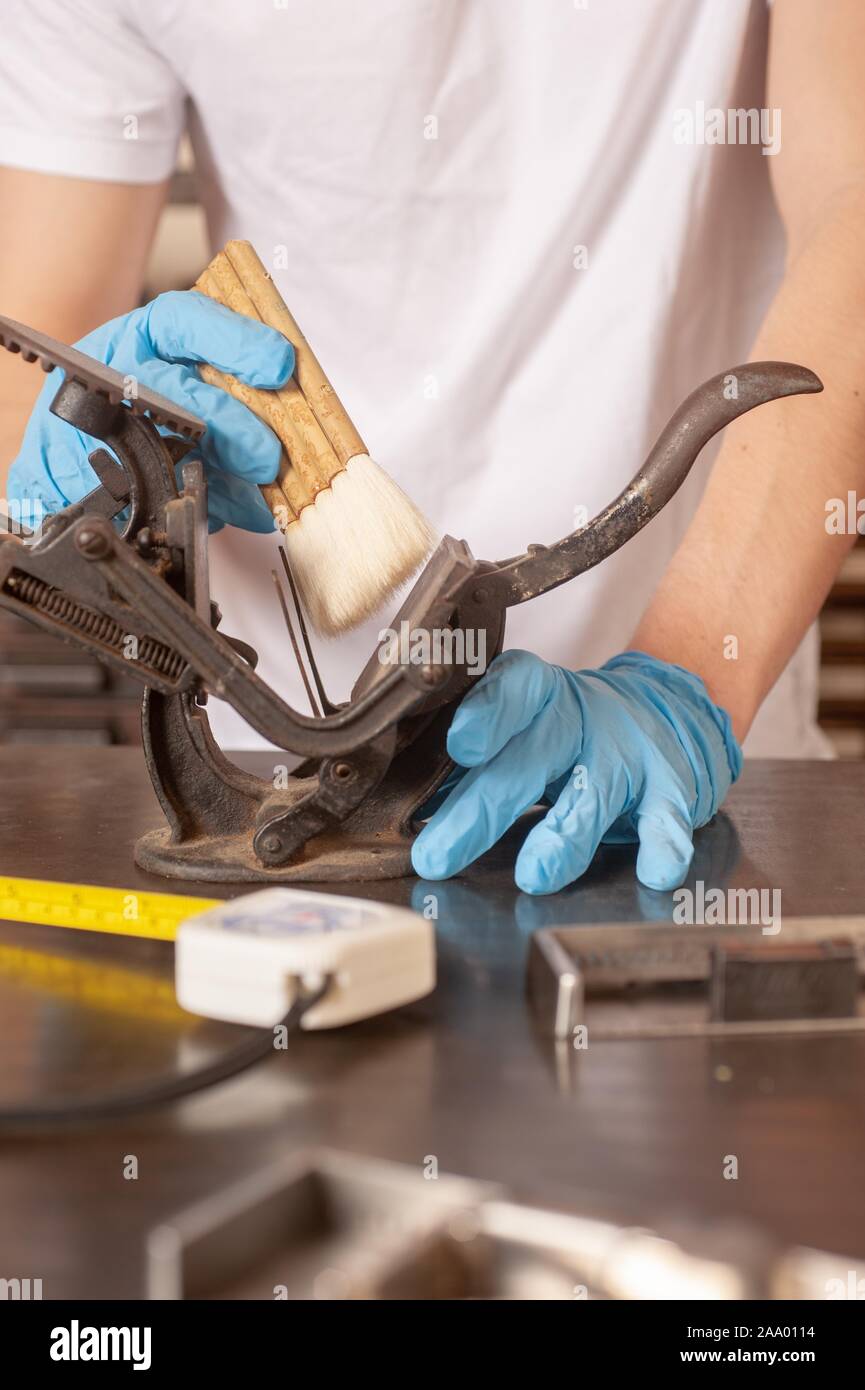
Museum Technicians and Conservators
Museum Technicians and Conservators are professionals who preserve, restore, and maintain artworks and artifacts in museums and galleries.

Librarians and Media Collections Specialists
Librarians and Media Collections Specialists manage library resources, providing access to information and supporting the educational and informational needs of their communities.

Library Technicians
Library technicians assist librarians in managing and organizing library resources and services, providing crucial support for public and academic libraries.

Farm and Home Management Educators
Farm and Home Management Educators provide education and resources to farmers and households on effective management practices in agriculture and home economies.

Instructional Coordinators
Instructional coordinators oversee and improve educational programs in schools and educational institutions.

Teaching Assistants, Postsecondary
Postsecondary teaching assistants support professors and enhance the learning experience of students in higher education environments.

Teaching Assistants, Except Postsecondary
Teaching Assistants, Except Postsecondary support teachers in the classroom by helping with instructional tasks and managing student activities.

Educational Instruction and Library Workers, All Other
Educational Instruction and Library Workers, All Other, perform various instructional and organizational tasks to support educational activities and library services.

Art Directors
Art Directors are responsible for the visual style and imagery in magazines, newspapers, product packaging, and movie and television productions.

Craft Artists
Craft artists create handmade objects, often using materials such as clay, glass, textiles, and metal, emphasizing creativity and individuality in their work.

Fine Artists, Including Painters, Sculptors, and Illustrators
Fine artists create visual artworks such as paintings, sculptures, and illustrations, expressing creativity and unique perspectives through various mediums.

Special Effects Artists and Animators
Special Effects Artists and Animators create visual effects and animations for film, television, video games, and other media, bringing imaginative concepts to life.
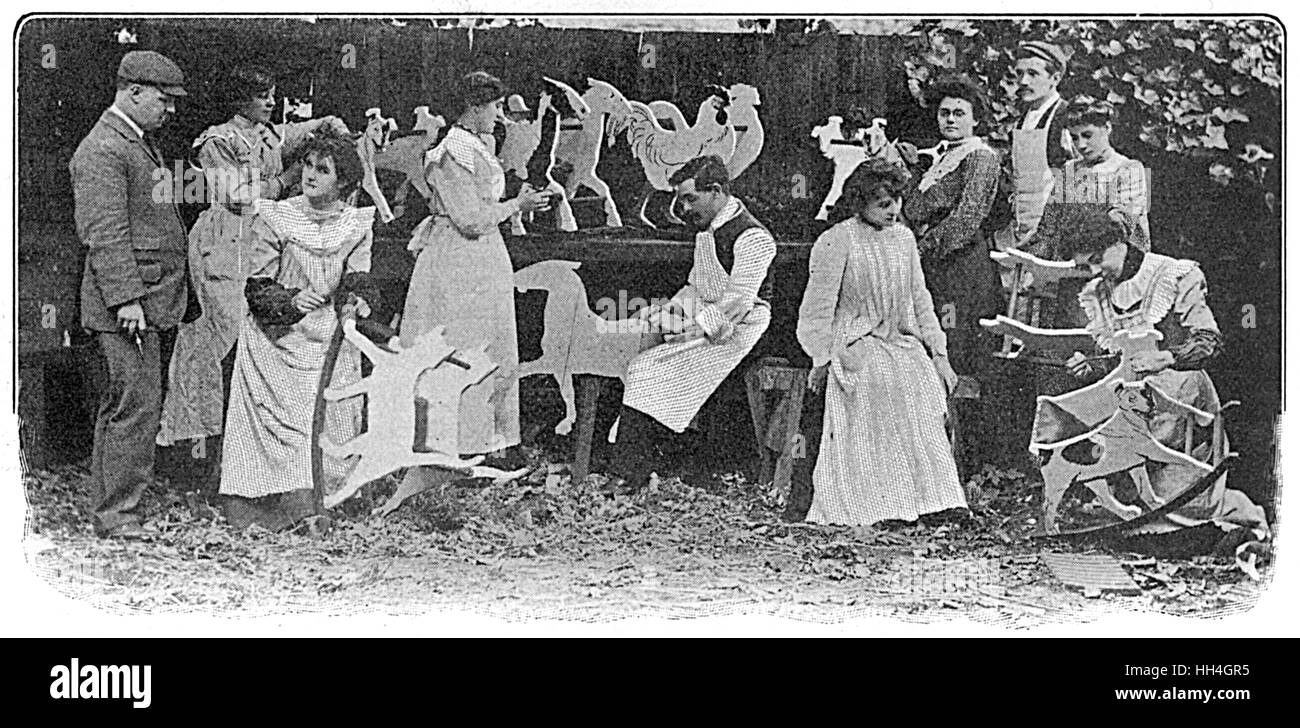
Artists and Related Workers, All Other
Artists and Related Workers, All Other are creative professionals who engage in various artistic activities that do not fit into a specific category, expressing their creativity through diverse media and forms.

Commercial and Industrial Designers
Commercial and industrial designers create and develop concepts and specifications that optimize the function, value, and appearance of products and systems.

Fashion Designers
Fashion designers create original clothing, accessories, and footwear, combining art, technology, and business to express ideas and trends through their garments.

Floral Designers
Floral Designers create artistic arrangements of flowers and foliage for various occasions, enhancing the aesthetic appeal of spaces and events.

Graphic Designers
Graphic Designers create visual concepts using computer software or by hand to communicate ideas that inspire, inform, or captivate consumers.

Interior Designers
Interior designers create functional and aesthetically pleasing indoor spaces that meet the needs and lifestyle of their clients.

Merchandise Displayers and Window Trimmers
Merchandise Displayers and Window Trimmers create attractive visual displays in retail stores to enhance the aesthetic appeal and promote products effectively.

Set and Exhibit Designers
Set and Exhibit Designers create immersive settings and displays for various events, productions, or exhibitions, enhancing the visual experience for audiences.

Designers, All Other
Designers, All Other create visual concepts and solutions across various industries, crafting innovative designs that address client needs and enhance user experiences.

Producers and Directors
Producers and directors are key figures in the film, television, and theater industries, responsible for overseeing the creative and logistical aspects of productions.

Athletes and Sports Competitors
Athletes and Sports Competitors train to perform in competitive sports, showcasing physical skill and discipline to achieve high levels of performance.
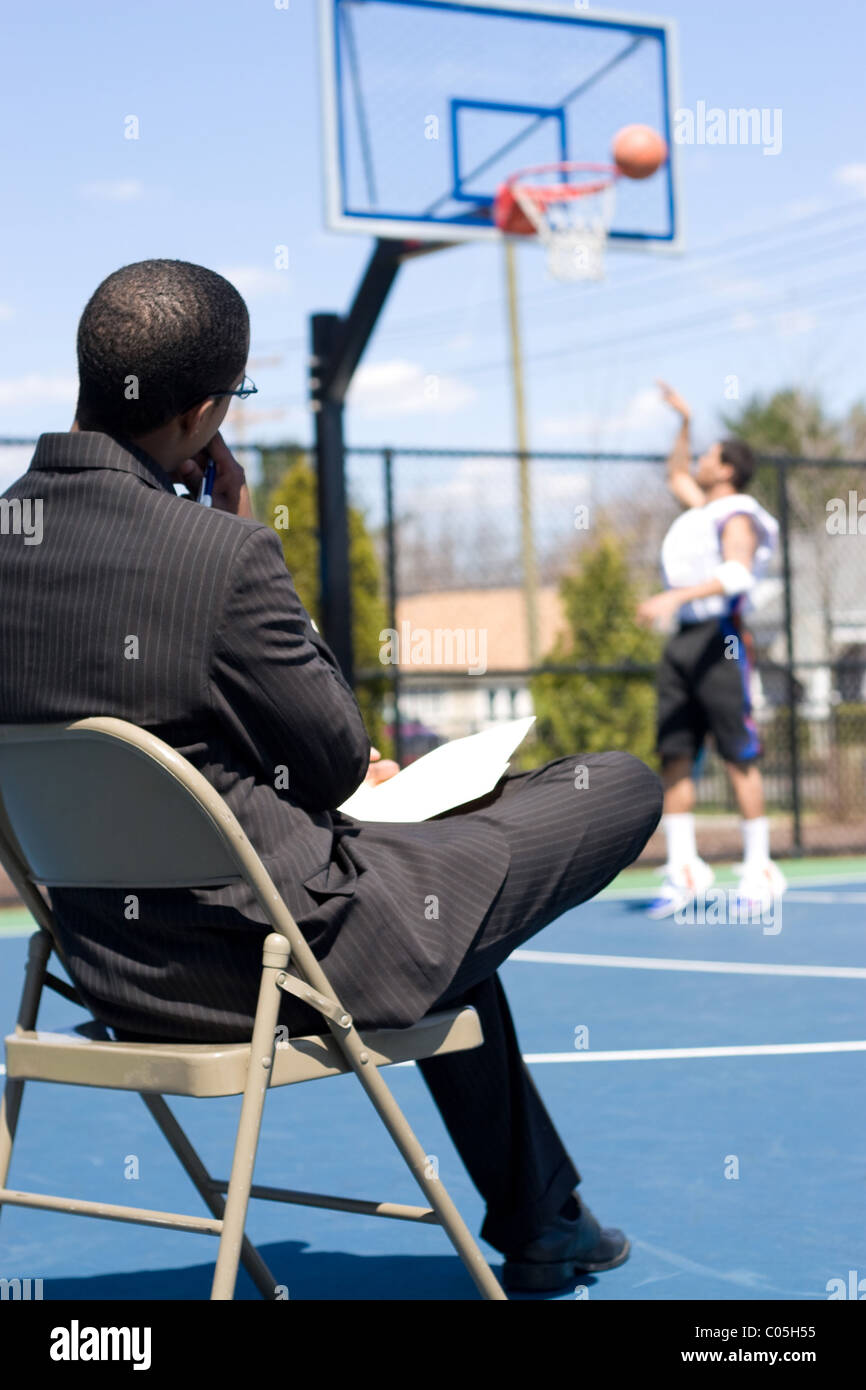
Coaches and Scouts
Coaches and Scouts are professionals who train, mentor, and assess athletes and teams to enhance performance in competitive sports.
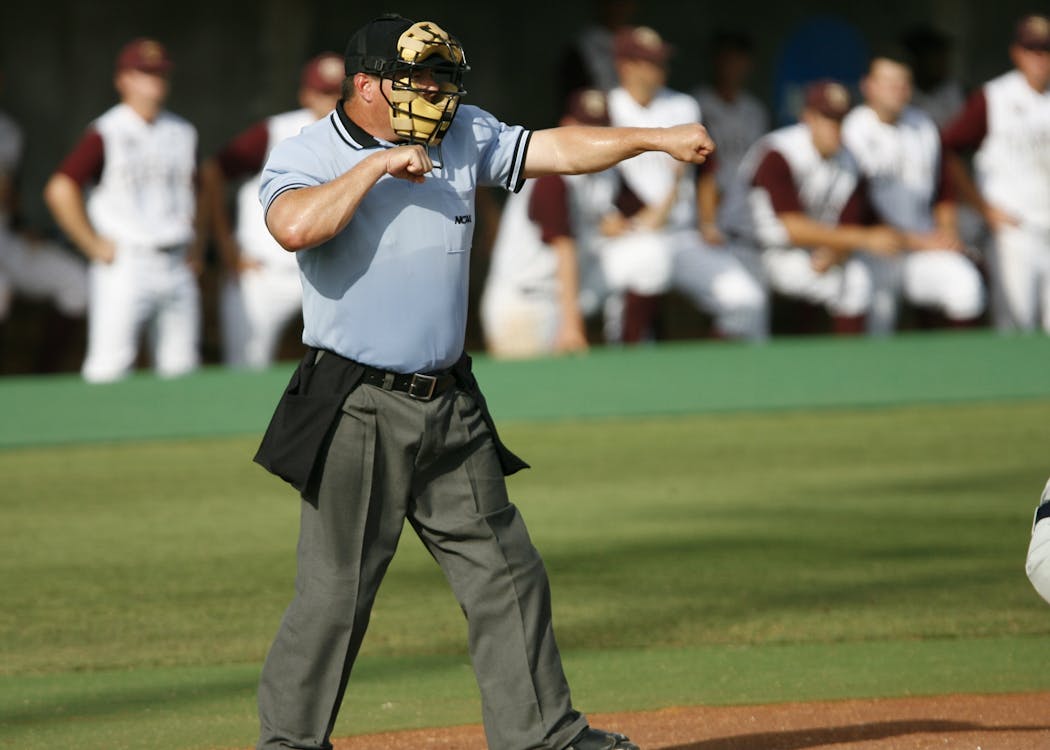
Umpires, Referees, and Other Sports Officials
Umpires, referees, and other sports officials are responsible for enforcing the rules of a sport during games and ensuring a fair and safe playing environment.

Choreographers
Choreographers design and direct dance routines for performances in various settings, including stage shows, films, and television.

Music Directors and Composers
Music Directors and Composers are responsible for creating, arranging, and conducting music for various forms of media and live performances.

Broadcast Announcers and Radio Disc Jockeys
Broadcast Announcers and Radio Disc Jockeys entertain audiences by hosting radio shows, playing music, and providing information about news, weather, and sports.

News Analysts, Reporters, and Journalists
News analysts, reporters, and journalists gather, investigate, and present information to inform the public about current events and issues affecting society.

Public Relations Specialists
Public Relations Specialists manage an organization's public image and communicate with various stakeholders to build and maintain a positive reputation.

Editors
Editors are professionals who review, revise, and enhance written content to ensure clarity, coherence, and adherence to specific standards.

Technical Writers
Technical writers create clear and concise documentation that communicates complex information effectively to a specific audience.

Writers and Authors
Writers and Authors create written content for various mediums, including books, articles, blogs, and scripts, often expressing ideas, stories, or information to engage readers.

Interpreters and Translators
Interpreters and translators facilitate communication by converting spoken or written content from one language to another.
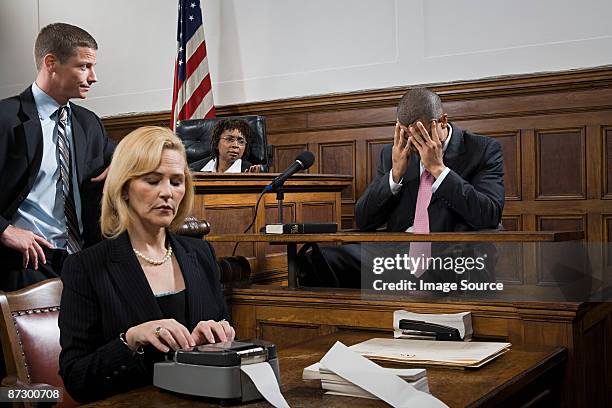
Court Reporters and Simultaneous Captioners
Court reporters and simultaneous captioners transcribe spoken words into written form, typically in legal settings or during live events.

Media and Communication Workers, All Other
Media and communication workers, all other play a vital role in managing and disseminating information through various channels, contributing to public understanding and engagement.

Audio and Video Technicians
Audio and Video Technicians are professionals responsible for setting up, operating, and maintaining the equipment used for broadcasting, recording, and live performances in various media.

Broadcast Technicians
Broadcast technicians operate and maintain the equipment used in radio and television broadcasts.

Sound Engineering Technicians
Sound engineering technicians operate and maintain the equipment used to record, amplify, enhance, and mix sound.

Lighting Technicians
Lighting technicians are responsible for the design, installation, and operation of lighting systems for various events, performances, and productions.

Photographers
Photographers capture moments through images, using their creative vision and technical skills to tell stories and convey emotions.

Camera Operators, Television, Video, and Film
Camera Operators capture the visual elements of films, television shows, and videos by operating cameras and other equipment.

Film and Video Editors
Film and Video Editors are responsible for assembling recorded raw material into a finished product that aligns with the director's vision, using digital editing software.
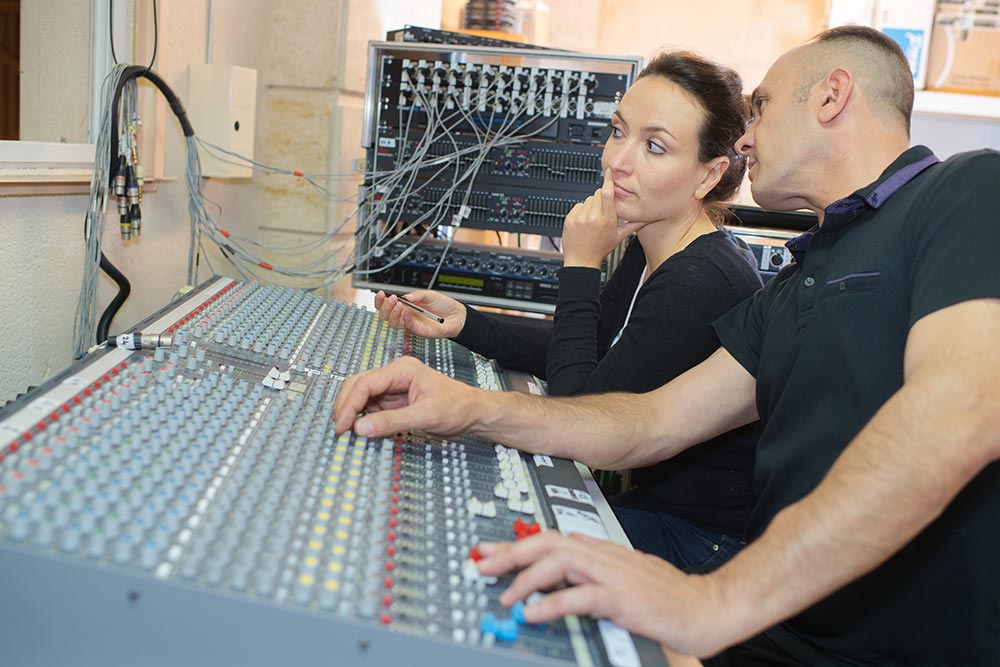
Media and Communication Equipment Workers, All Other
Media and Communication Equipment Workers, All Other are professionals responsible for operating and maintaining various types of media and communication equipment used in the production and transmission of media content.

Chiropractors
Chiropractors are healthcare professionals who diagnose and treat musculoskeletal disorders, primarily focusing on spinal alignment and manipulation to alleviate pain and improve function.

Dentists, General
General dentists provide comprehensive oral healthcare, focusing on the diagnosis, prevention, and treatment of a variety of dental issues.

Oral and Maxillofacial Surgeons
Oral and Maxillofacial Surgeons specialize in diagnosing and treating a variety of conditions related to the face, mouth, and jaws.

Orthodontists
Orthodontists are dental specialists who diagnose, prevent, and treat dental and facial irregularities to improve patients' smiles and oral health.

Dentists, All Other Specialists
Dentists, All Other Specialists are dental practitioners who diagnose and treat a variety of oral health conditions, focusing on specialized areas of dentistry that are not categorized under conventional dentistry practices.

Dietitians and Nutritionists
Dietitians and Nutritionists are experts in food and nutrition who promote healthy eating habits to improve health and manage diseases.
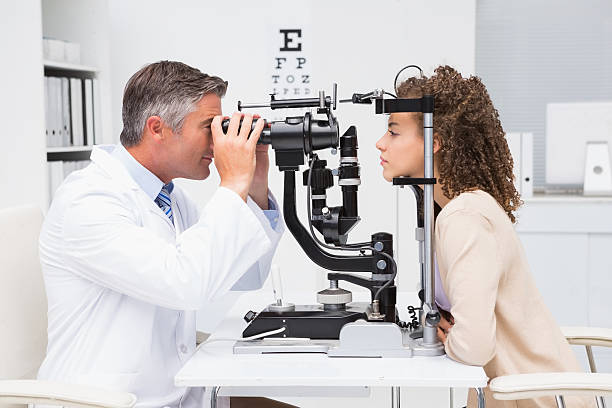
Optometrists
Optometrists are healthcare professionals who provide vision care, including eye examinations, diagnosis, treatment of visual problems, and management of eye diseases.

Pharmacists
Pharmacists are healthcare professionals who specialize in the safe and effective use of medications, providing crucial information and support to patients and healthcare teams.

Physician Assistants
Physician Assistants (PAs) are healthcare professionals who diagnose illnesses, develop and manage treatment plans, and often serve as a principal healthcare provider under the supervision of a physician.
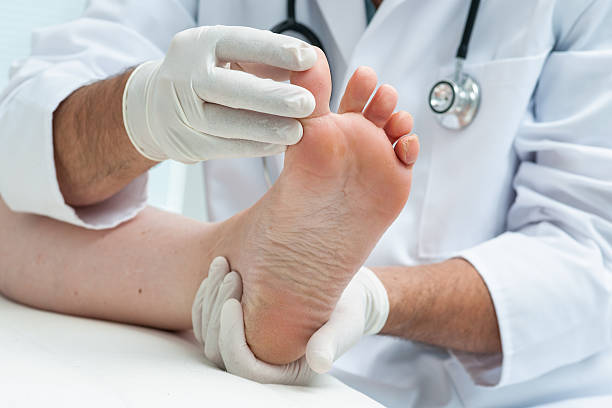
Podiatrists
Podiatrists are medical professionals specializing in diagnosing and treating conditions of the foot, ankle, and lower extremity.

Occupational Therapists
Occupational Therapists help individuals achieve independence in all facets of their lives through customized therapeutic activities.

Physical Therapists
Physical Therapists help patients improve their mobility and manage pain through rehabilitative techniques and personalized exercise programs.
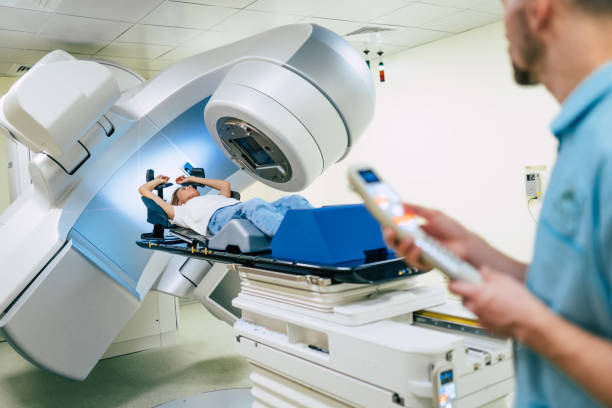
Radiation Therapists
Radiation therapists are healthcare professionals who administer radiation treatments to patients with cancer and other diseases as part of their care plan.

Recreational Therapists
Recreational therapists use therapeutic recreation activities to help individuals improve their physical, emotional, and social well-being.

Respiratory Therapists
Respiratory Therapists are healthcare professionals who specialize in providing treatment and care for patients with breathing difficulties and respiratory disorders.

Speech-Language Pathologists
Speech-Language Pathologists assess, diagnose, and treat communication and swallowing disorders in individuals of all ages.

Exercise Physiologists
Exercise physiologists assess, design, and implement exercise programs to improve participants' health and performance.

Therapists, All Other
Therapists generalize various therapeutic techniques to help clients address mental, emotional, or psychological issues.

Veterinarians
Veterinarians are medical professionals who diagnose and treat illnesses and injuries in animals, ensuring their health and welfare.

Registered Nurses
Registered Nurses (RNs) provide direct patient care, educate patients and the public about various health conditions, and offer advice and emotional support to patients and their families.

Nurse Anesthetists
Nurse Anesthetists are advanced practice registered nurses who specialize in administering anesthesia and managing anesthesia care for patients undergoing surgical and other procedures.

Nurse Midwives
Nurse midwives are advanced practice registered nurses who specialize in providing prenatal, delivery, and postnatal care to pregnant individuals, along with gynecological and family planning services.

Nurse Practitioners
Nurse Practitioners (NPs) are advanced practice registered nurses who provide high-quality healthcare services, often with a focus on specific patient populations.

Audiologists
Audiologists are healthcare professionals who specialize in diagnosing and treating hearing and balance disorders.

Anesthesiologists
Anesthesiologists are medical doctors who specialize in administering anesthesia and monitoring patients before, during, and after surgical procedures.

Cardiologists
Cardiologists are specialized doctors who diagnose and treat heart and cardiovascular diseases.

Dermatologists
Dermatologists are medical professionals specialized in diagnosing and treating skin, hair, and nail conditions.

Emergency Medicine Physicians
Emergency Medicine Physicians are medical doctors who specialize in providing immediate care for patients experiencing acute medical conditions or traumatic injuries.

Family Medicine Physicians
Family Medicine Physicians provide comprehensive healthcare to individuals and families, encompassing all ages, genders, and diseases.

General Internal Medicine Physicians
General Internal Medicine Physicians diagnose and manage a wide range of medical conditions in adult patients, focusing on overall health and preventative care.
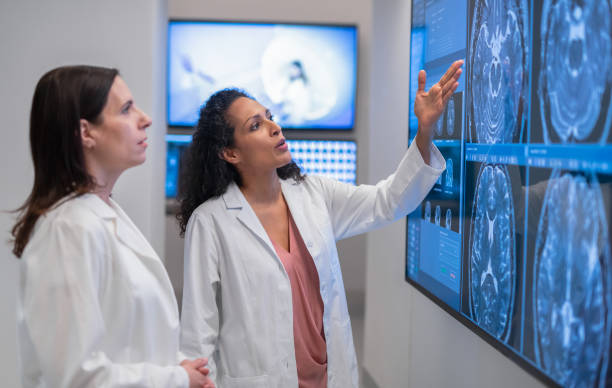
Neurologists
Neurologists are medical doctors who specialize in diagnosing and treating disorders of the nervous system.

Obstetricians and Gynecologists
Obstetricians and gynecologists specialize in women's reproductive health, covering pregnancy, childbirth, and related disorders.

Pediatricians, General
Pediatricians are medical doctors who specialize in the healthcare of infants, children, and adolescents.

Physicians, Pathologists
Pathologists are medical doctors who specialize in diagnosing diseases by examining tissues, cells, and bodily fluids.

Psychiatrists
Psychiatrists are medical doctors specializing in the diagnosis, treatment, and prevention of mental illnesses and emotional disorders.

Radiologists
Radiologists are medical doctors specializing in diagnosing and treating diseases using medical imaging technologies.

Physicians, All Other
Physicians, All Other are medical doctors specializing in various areas of medicine that do not fit into specific categories and provide comprehensive care to patients.

Ophthalmologists, Except Pediatric
Ophthalmologists, Except Pediatric diagnose and treat eye diseases and visual problems in adults, providing a wide range of services including surgery, prescriptions for glasses, and diagnostic tests.

Orthopedic Surgeons, Except Pediatric
Orthopedic Surgeons, Except Pediatric specialize in diagnosing and treating musculoskeletal issues through surgical interventions.

Pediatric Surgeons
Pediatric Surgeons are specialized surgeons who perform surgical procedures on infants, children, and adolescents to treat various congenital and acquired conditions.

Surgeons, All Other
Surgeons, All Other, are medical doctors who perform surgical procedures to treat injuries, diseases, and deformities in patients across various specialties that do not fit specific surgical categories.

Acupuncturists
Acupuncturists use traditional Chinese medicine techniques to stimulate specific points on the body to promote natural healing and balance.

Dental Hygienists
Dental Hygienists are licensed healthcare professionals focused on preventive oral care and hygiene education.

Healthcare Diagnosing or Treating Practitioners, All Other
Healthcare Diagnosing or Treating Practitioners, All Other specialize in various medical practices that fall outside standard categorizations, focusing on diagnosing and treating patients.

Clinical Laboratory Technologists and Technicians
Clinical Laboratory Technologists and Technicians perform complex laboratory tests that help diagnose, treat, and prevent diseases.

Cardiovascular Technologists and Technicians
Cardiovascular technologists and technicians assist in diagnosing and treating heart and blood vessel conditions using specialized equipment.

Diagnostic Medical Sonographers
Diagnostic Medical Sonographers use specialized equipment to create images of structures inside the body, helping in diagnosis and treatment.
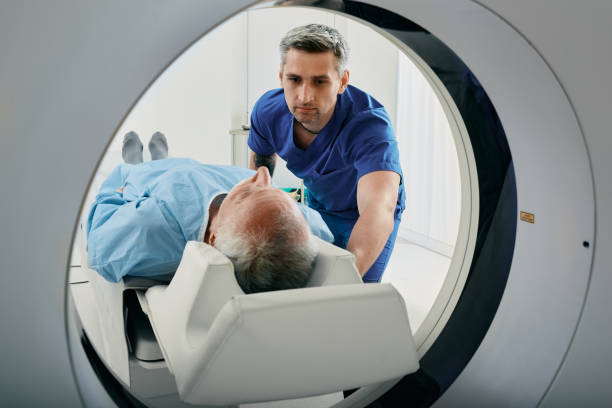
Nuclear Medicine Technologists
Nuclear medicine technologists use specialized equipment to administer radioactive drugs to patients and perform imaging tests to diagnose and treat various medical conditions.

Radiologic Technologists and Technicians
Radiologic Technologists and Technicians perform diagnostic imaging examinations using X-ray equipment and other imaging technologies to help diagnose and treat patients' medical conditions.

Magnetic Resonance Imaging Technologists
Magnetic Resonance Imaging Technologists operate MRI machines to create detailed images of the body's organs and tissues for diagnostic purposes.
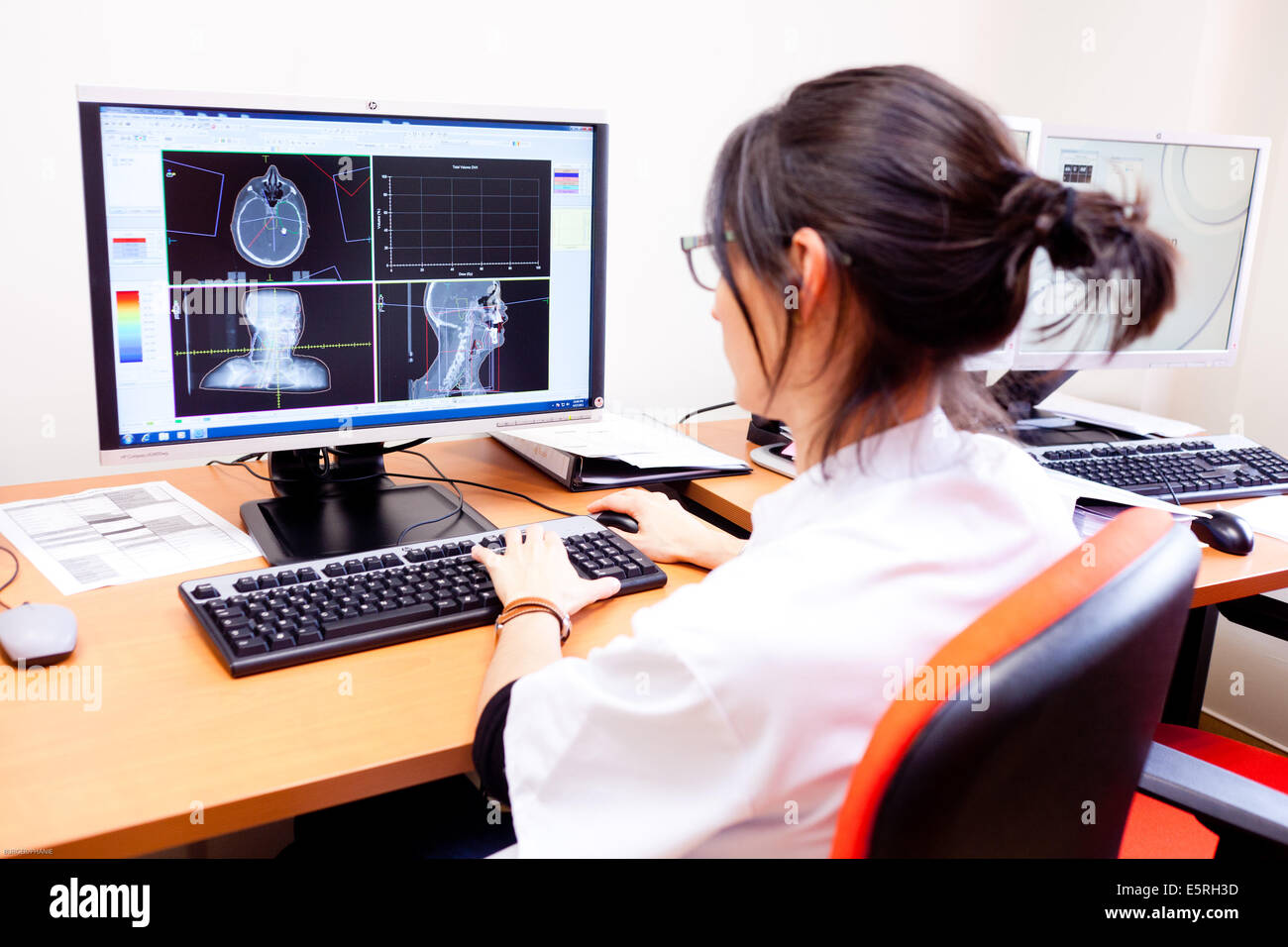
Medical Dosimetrists
Medical Dosimetrists are specialized healthcare professionals who design and optimize radiation treatment plans for patients undergoing cancer treatment.

Emergency Medical Technicians
Emergency Medical Technicians (EMTs) provide urgent medical care and transportation for individuals experiencing medical emergencies.

Paramedics
Paramedics are emergency medical professionals who provide pre-hospital care to individuals experiencing medical emergencies.

Dietetic Technicians
Dietetic technicians support dietitians by planning and implementing nutrition programs and providing dietary counseling under supervision.

Pharmacy Technicians
Pharmacy technicians assist pharmacists in dispensing prescription medications and managing pharmacy operations.

Psychiatric Technicians
Psychiatric Technicians assist in the care and treatment of patients with mental illnesses and developmental disabilities.
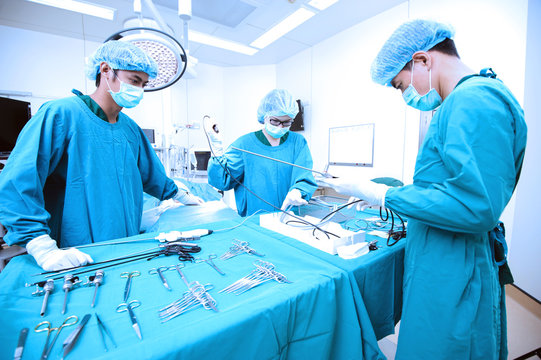
Surgical Technologists
Surgical Technologists assist in surgical operations by preparing and managing the surgical environment and providing support to surgeons and nurses.

Veterinary Technologists and Technicians
Veterinary technologists and technicians provide essential support to veterinarians in animal health care settings, performing a variety of tasks to ensure the well-being of animals.
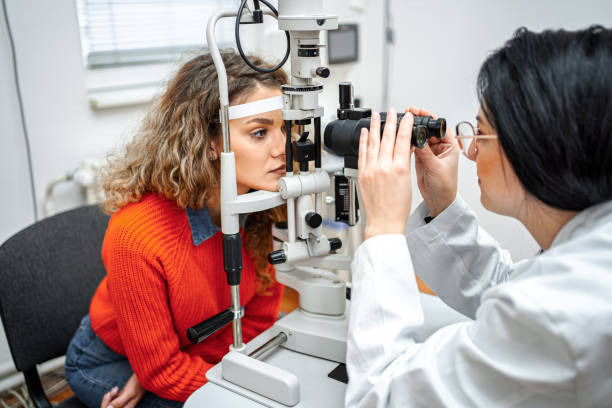
Ophthalmic Medical Technicians
Ophthalmic Medical Technicians assist ophthalmologists by performing diagnostic tests, preparing patients for examinations, and maintaining medical equipment in eye care settings.

Licensed Practical and Licensed Vocational Nurses
Licensed Practical and Licensed Vocational Nurses provide basic nursing care and support to patients under the supervision of registered nurses and doctors.

Medical Records Specialists
Medical Records Specialists manage and organize patient health information, ensuring its quality, accuracy, and security in healthcare settings.

Opticians, Dispensing
Opticians, Dispensing provide vision care by fitting and dispensing eyewear and lenses based on prescriptions from optometrists or ophthalmologists.

Orthotists and Prosthetists
Orthotists and Prosthetists design, fit, and manage orthopedic braces and prosthetic limbs for patients with mobility impairments.
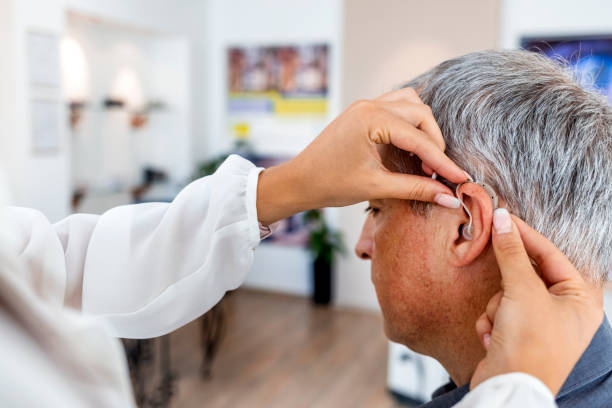
Hearing Aid Specialists
Hearing Aid Specialists are trained professionals who assist individuals in selecting, fitting, and maintaining hearing aids to improve their auditory capabilities.

Health Technologists and Technicians, All Other
Health Technologists and Technicians, All Other are healthcare professionals who perform a variety of technical tasks related to patient care in healthcare settings.

Health Information Technologists and Medical Registrars
Health Information Technologists and Medical Registrars manage and organize health information data, ensuring its quality, security, and accessibility.

Athletic Trainers
Athletic trainers are healthcare professionals who specialize in preventing, diagnosing, and treating sports-related injuries and conditions.

Genetic Counselors
Genetic counselors provide information and support to individuals and families regarding genetic disorders and inherited conditions.

Surgical Assistants
Surgical Assistants play a vital role in the operating room by assisting surgeons during procedures, ensuring efficiency and patient safety.

Healthcare Practitioners and Technical Workers, All Other
Healthcare Practitioners and Technical Workers, All Other encompass a diverse array of specialized health professionals who provide medical and therapeutic services outside the traditional roles.

Home Health and Personal Care Aides
Home Health and Personal Care Aides assist individuals with daily living activities, providing personalized care in their homes or community settings.

Nursing Assistants
Nursing assistants provide basic patient care and assist nursing staff with daily activities in healthcare settings.

Orderlies
Orderlies provide essential support in healthcare facilities by assisting patients with their daily activities and ensuring a clean, comfortable environment.

Psychiatric Aides
Psychiatric aides provide essential support to patients with mental illnesses, helping them with daily activities and ensuring their well-being in healthcare facilities.

Occupational Therapy Assistants
Occupational Therapy Assistants help patients develop, recover, and improve the skills needed for daily living and working under the supervision of occupational therapists.

Occupational Therapy Aides
Occupational Therapy Aides assist occupational therapists in providing care to patients, helping them with daily living activities and improving their physical and cognitive skills.

Physical Therapist Assistants
Physical Therapist Assistants (PTAs) work under the supervision of physical therapists to help patients recover and improve their physical abilities through therapeutic interventions.

Physical Therapist Aides
Physical therapist aides assist physical therapists in providing care to patients recovering from injuries or illnesses.

Massage Therapists
Massage therapists use touch to manipulate the muscles and soft tissues of the body to enhance a person's health and well-being.

Dental Assistants
Dental assistants support dental practitioners with patient care, office tasks, and laboratory duties, playing a crucial role in the dental healthcare team.

Medical Assistants
Medical Assistants are multi-skilled professionals who support healthcare providers in clinical and administrative tasks to ensure efficient patient care.

Medical Equipment Preparers
Medical Equipment Preparers are responsible for testing, maintaining, and sterilizing medical equipment and instruments used in healthcare settings.

Medical Transcriptionists
Medical transcriptionists convert audio recordings from healthcare professionals into written documents for patient records and legal purposes.

Pharmacy Aides
Pharmacy Aides assist pharmacists in dispensing medication and managing pharmacy operations, providing vital support in a healthcare setting.
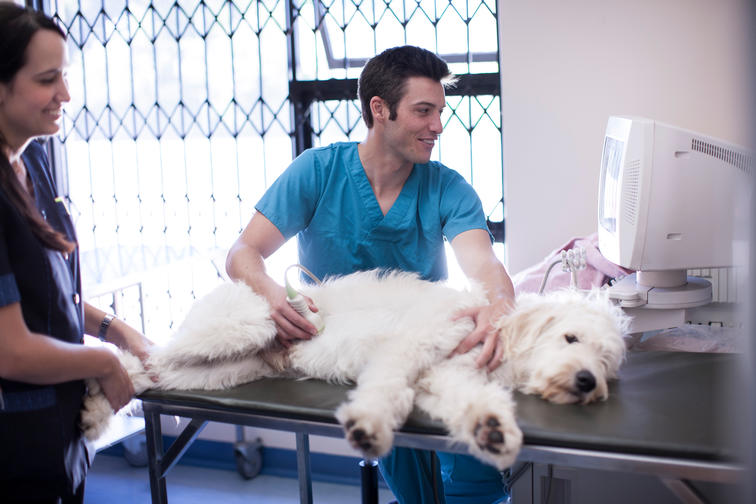
Veterinary Assistants and Laboratory Animal Caretakers
Veterinary Assistants and Laboratory Animal Caretakers support veterinarians in the healthcare of animals and ensure the well-being of laboratory animals.

Phlebotomists
Phlebotomists are trained medical professionals who specialize in drawing blood for tests, transfusions, donations, or research.

Healthcare Support Workers, All Other
Healthcare Support Workers, All Other assist in various healthcare tasks that are essential to patient care and support.
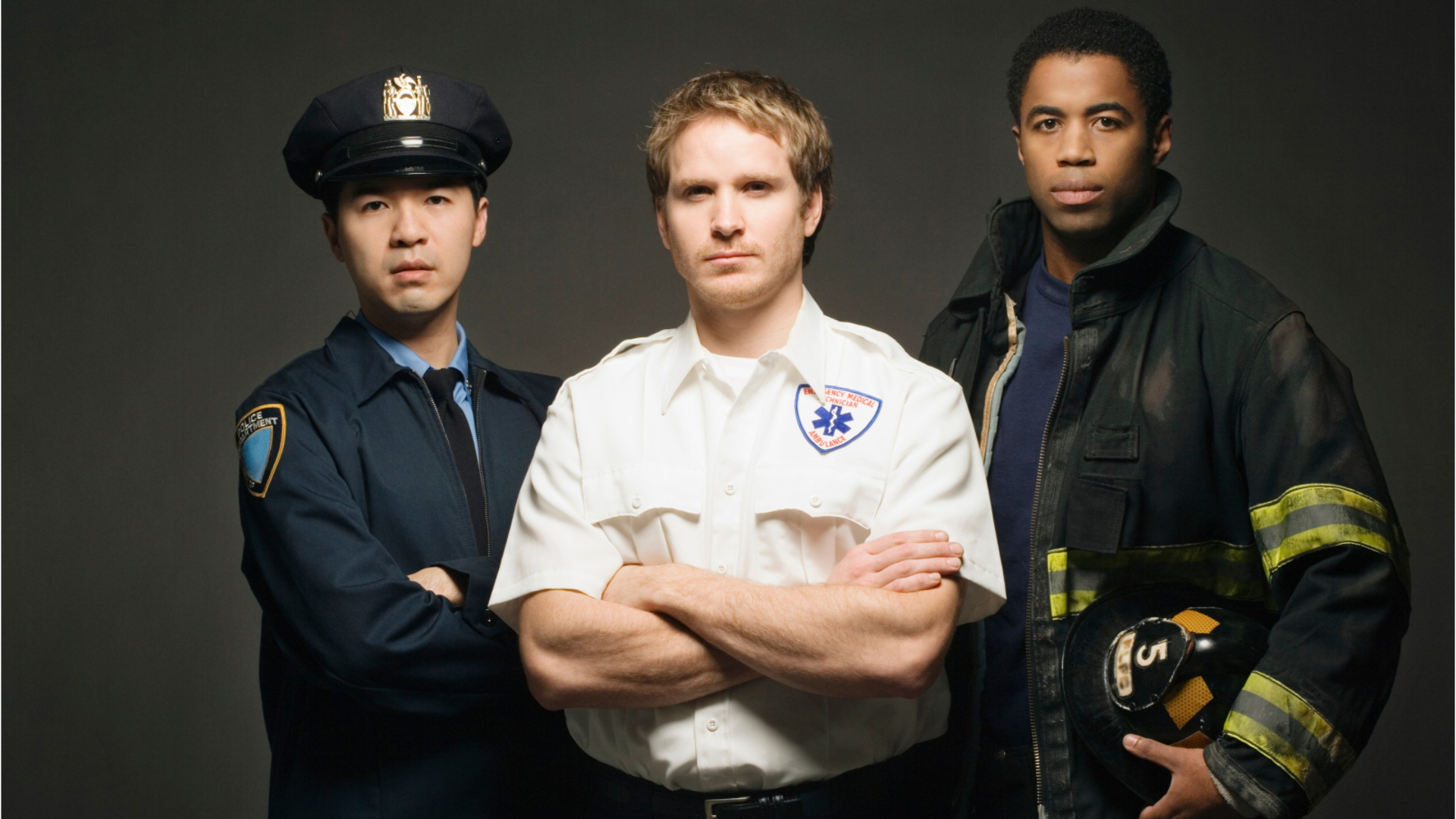
First-Line Supervisors of Correctional Officers
First-Line Supervisors of Correctional Officers oversee the daily operations of correctional facilities, ensuring that security and safety protocols are enforced.

First-Line Supervisors of Police and Detectives
First-Line Supervisors of Police and Detectives oversee and coordinate the activities of police officers and detectives, ensuring effective law enforcement operations.

First-Line Supervisors of Firefighting and Prevention Workers
First-Line Supervisors of Firefighting and Prevention Workers oversee and coordinate activities of firefighters and fire prevention workers to ensure effective emergency response and safety procedures.

First-Line Supervisors of Security Workers
First-Line Supervisors of Security Workers oversee and coordinate the activities of security personnel to ensure the safety and security of premises, property, and people.

First-Line Supervisors of Protective Service Workers, All Other
First-Line Supervisors of Protective Service Workers oversee and coordinate the activities of protective service personnel.
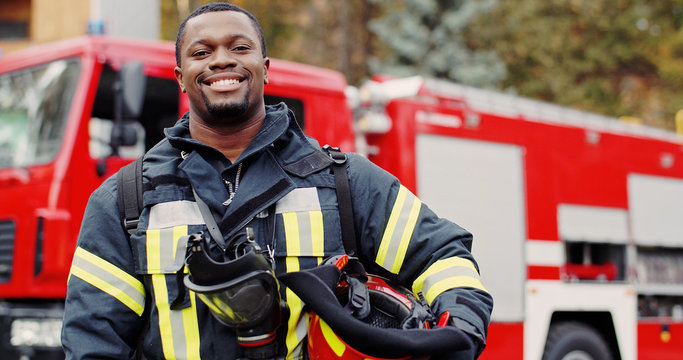
Firefighters
Firefighters are trained professionals who respond to fires, emergencies, and hazardous situations to protect life, property, and the environment.

Fire Inspectors and Investigators
Fire Inspectors and Investigators ensure compliance with fire safety regulations by inspecting buildings and investigating fires to determine their causes.
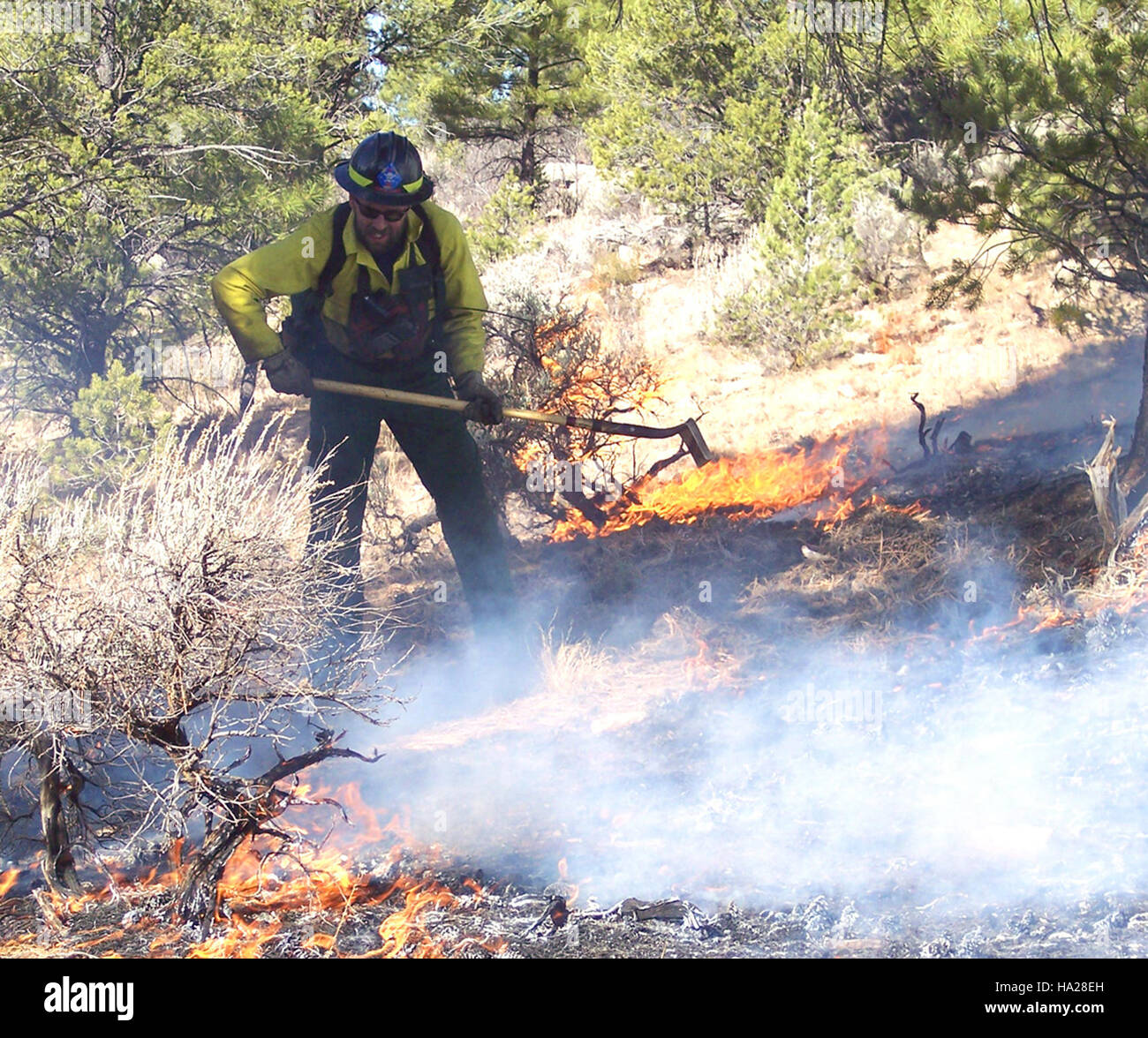
Forest Fire Inspectors and Prevention Specialists
Forest Fire Inspectors and Prevention Specialists focus on preventing and managing wildfires to protect natural resources and ensure public safety.

Bailiffs
Bailiffs are law enforcement officers responsible for the enforcement of court orders, including the collection of debts and property repossession.

Correctional Officers and Jailers
Correctional Officers and Jailers are responsible for overseeing individuals who have been arrested and are awaiting trial or who have been sentenced to serve time in jail or prison.

Detectives and Criminal Investigators
Detectives and Criminal Investigators are law enforcement professionals who investigate crimes, gather evidence, and work to solve cases.

Fish and Game Wardens
Fish and Game Wardens are law enforcement officers who oversee the protection and management of fish and wildlife resources.

Parking Enforcement Workers
Parking Enforcement Workers manage and regulate the parking of vehicles to ensure compliance with local parking laws and ordinances.

Police and Sheriff's Patrol Officers
Police and Sheriff's Patrol Officers enforce laws, maintain public order, and ensure community safety through patrols and proactive policing strategies.
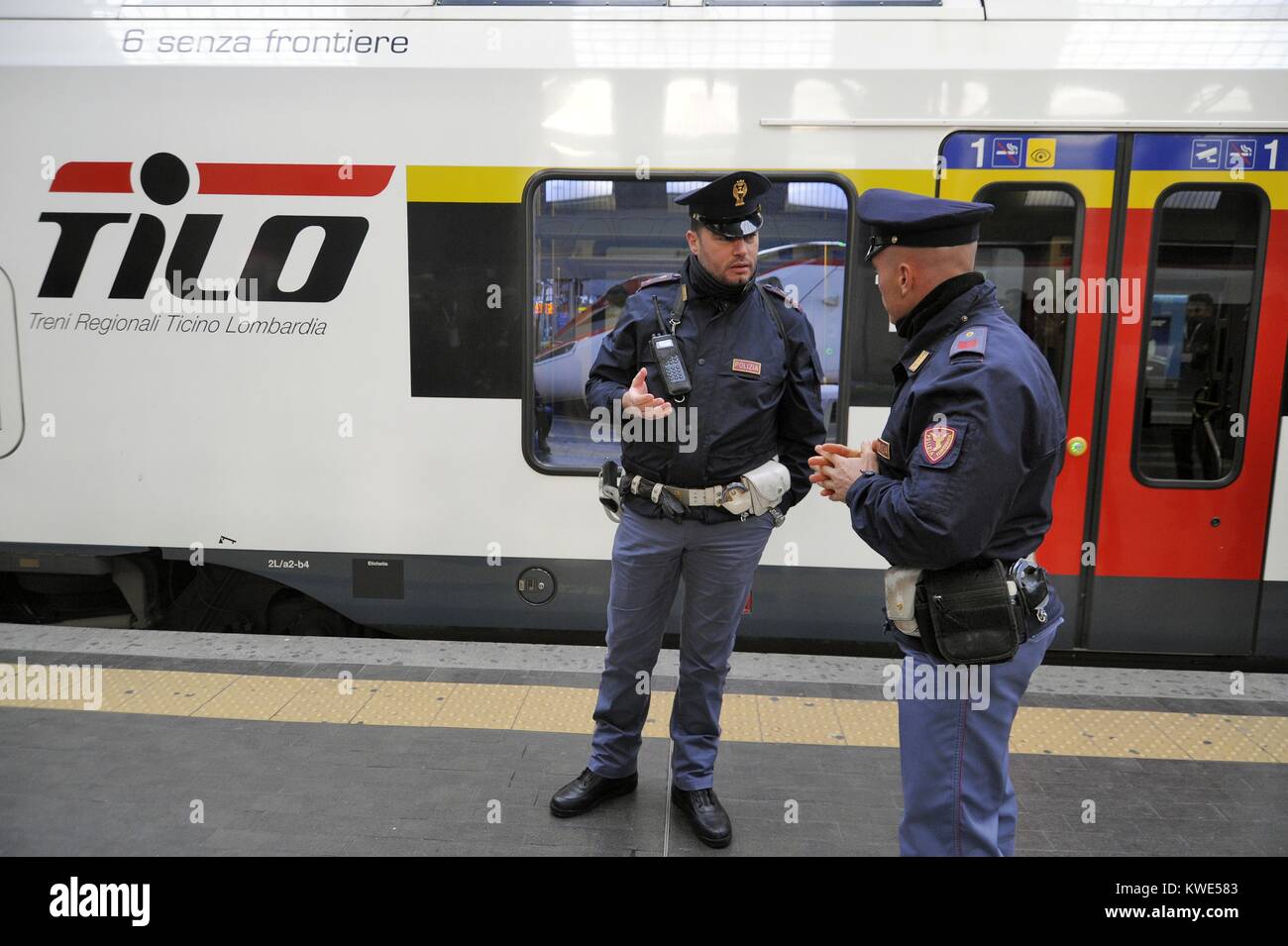
Transit and Railroad Police
Transit and Railroad Police are responsible for maintaining safety and security on public transportation systems and railroads.

Animal Control Workers
Animal Control Workers are responsible for enforcing laws and regulations related to animal welfare and controlling stray or potentially dangerous animals.

Private Detectives and Investigators
Private detectives and investigators are professionals who provide investigative services to individuals, businesses, or organizations, often handling cases like infidelity, fraud, or missing persons.

Gambling Surveillance Officers and Gambling Investigators
Gambling Surveillance Officers and Gambling Investigators ensure fair play and compliance within the gambling industry through monitoring operations and investigating suspicious activities.

Security Guards
Security guards are responsible for protecting individuals, property, and assets by maintaining a high level of security and preventing any illegal activity.

Crossing Guards and Flaggers
Crossing Guards and Flaggers are responsible for ensuring the safe movement of pedestrians and vehicles in areas where road traffic is present, especially at intersections and construction sites.
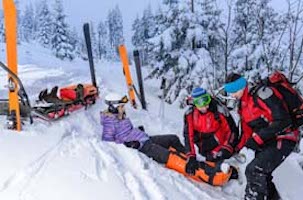
Lifeguards, Ski Patrol, and Other Recreational Protective Service Workers
Lifeguards, Ski Patrol, and Other Recreational Protective Service Workers ensure the safety and welfare of individuals participating in recreational activities, particularly in aquatic and alpine environments.
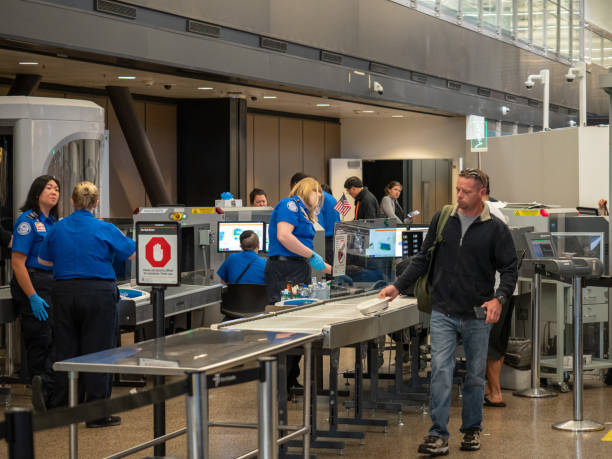
Transportation Security Screeners
Transportation Security Screeners ensure the safety and security of passengers and cargo at airports and other transportation facilities by screening bags and individuals for prohibited items.

School Bus Monitors
School Bus Monitors ensure the safety and well-being of students while they are transported to and from school.

Protective Service Workers, All Other
Protective Service Workers, All Other, provide a range of services designed to safeguard individuals and properties, often within specialized areas not covered by other specific job titles.

Chefs and Head Cooks
Chefs and head cooks are culinary professionals responsible for overseeing kitchen operations, creating menus, and ensuring the quality of food served in restaurants and other food establishments.

First-Line Supervisors of Food Preparation and Serving Workers
First-Line Supervisors of Food Preparation and Serving Workers oversee food service staff and ensure efficient operations in food preparation and customer service settings.

Cooks, Fast Food
Cooks in fast food establishments prepare and cook a variety of food items quickly and efficiently to meet customer demands.

Cooks, Institution and Cafeteria
Cooks in institutions and cafeterias prepare and serve meals for large groups of people in various settings.

Cooks, Private Household
Cooks in private households prepare and serve meals for individuals or families, tailoring their culinary creations to the specific tastes and dietary needs of their clients.

Cooks, Restaurant
Cooks in restaurants prepare and cook food for patrons, often working in fast-paced environments where quality and efficiency are essential.

Cooks, Short Order
Short order cooks prepare and cook fast meals, often in diners or cafes, according to a set menu with quick turnaround times.

Cooks, All Other
Cooks, All Other prepare and cook a wide range of foods in various settings, excluding those classified under specific categories.

Food Preparation Workers
Food Preparation Workers assist in the kitchen by preparing ingredients and ensuring that the food is ready for cooking and serving.

Bartenders
Bartenders mix, serve, and create alcoholic and non-alcoholic beverages for customers in bars, restaurants, and other establishments.

Fast Food and Counter Workers
Fast Food and Counter Workers provide customer service and prepare food at quick-service restaurants, ensuring efficiency and satisfaction in a fast-paced environment.

Waiters and Waitresses
Waiters and waitresses provide customer service in restaurants, cafes, and other dining establishments by taking orders, serving food and drinks, and ensuring a pleasant dining experience.

Food Servers, Nonrestaurant
Food Servers, Nonrestaurant are professionals who serve food and beverages in various nontraditional settings, such as catering events, hospitals, or private functions.
.jpg)
Dining Room and Cafeteria Attendants and Bartender Helpers
Dining Room and Cafeteria Attendants and Bartender Helpers assist customers in dining facilities by ensuring a clean, organized, and welcoming environment.
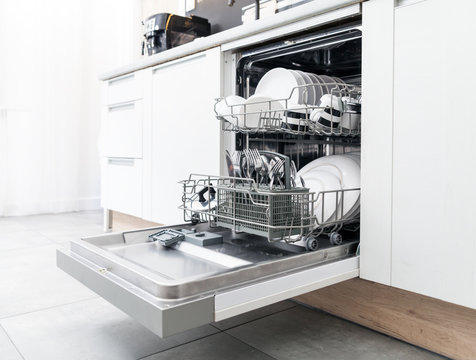
Dishwashers
Dishwashers play a crucial role in food service environments, ensuring cleanliness of dishes and kitchen utensils to maintain hygiene standards.

Hosts and Hostesses, Restaurant, Lounge, and Coffee Shop
Hosts and hostesses manage the dining experience by greeting guests, taking reservations, and coordinating seating arrangements in restaurants, lounges, and coffee shops.
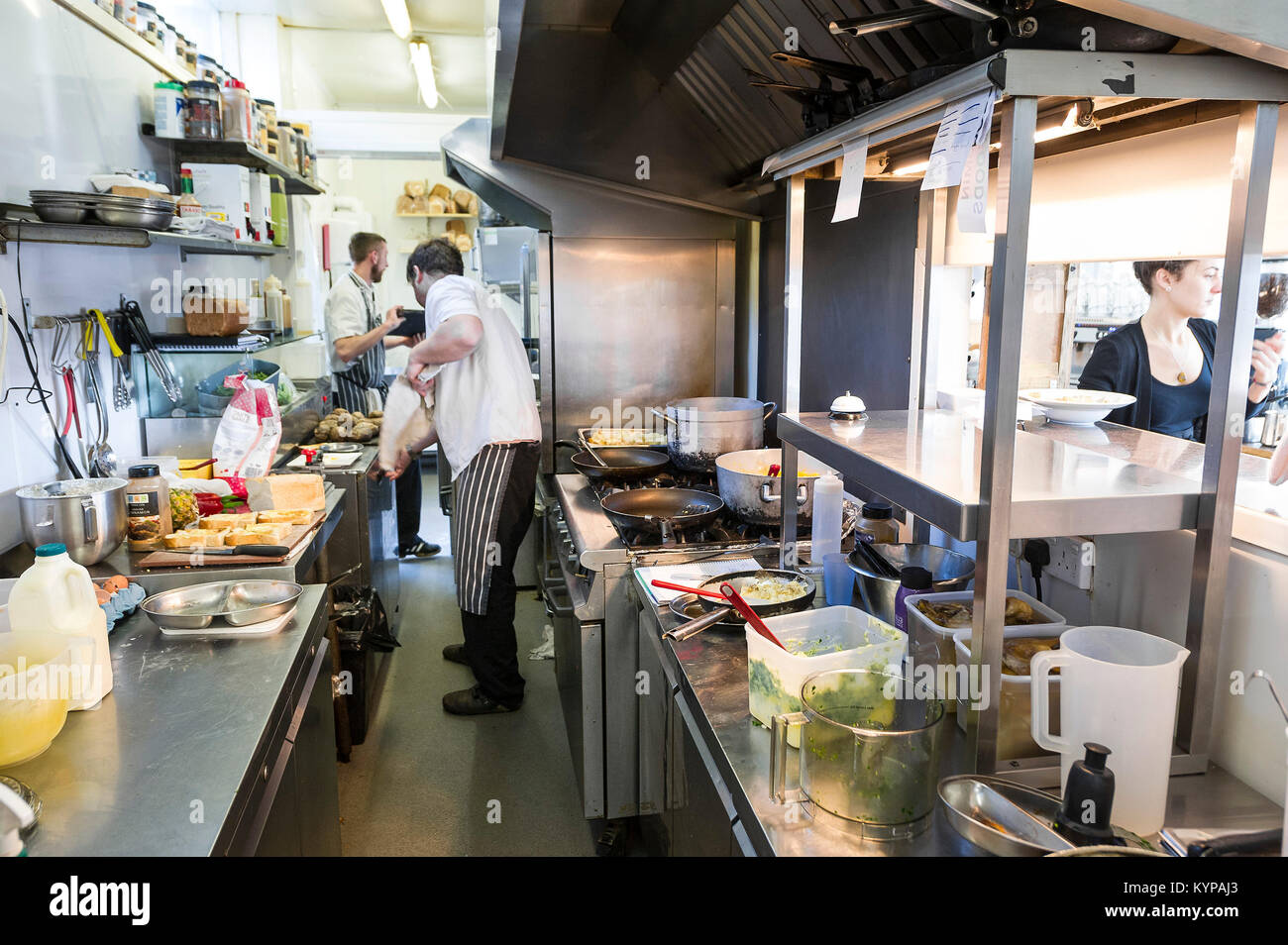
Food Preparation and Serving Related Workers, All Other
Food Preparation and Serving Related Workers, All Other are responsible for preparing and serving food in various settings, ensuring that meals meet quality and safety standards.

First-Line Supervisors of Housekeeping and Janitorial Workers
First-Line Supervisors of Housekeeping and Janitorial Workers oversee the cleaning staff in various settings, ensuring that cleanliness and safety standards are met.

First-Line Supervisors of Landscaping, Lawn Service, and Groundskeeping Workers
First-Line Supervisors of Landscaping, Lawn Service, and Groundskeeping Workers oversee and coordinate the activities of landscaping teams who maintain outdoor spaces.

Janitors and Cleaners, Except Maids and Housekeeping Cleaners
Janitors and cleaners are responsible for maintaining cleanliness and order in various facilities, ensuring safe and sanitary environments for occupants.

Maids and Housekeeping Cleaners
Maids and Housekeeping Cleaners are responsible for maintaining cleanliness and orderliness in private homes, hotels, and other establishments by performing various cleaning tasks.

Building Cleaning Workers, All Other
Building Cleaning Workers, All Other are responsible for maintaining cleanliness and sanitation in various types of buildings, ensuring a safe and healthy environment for occupants and visitors.

Pest Control Workers
Pest control workers help manage and eliminate unwanted pests in residential and commercial properties, ensuring a safe and healthy environment.

Landscaping and Groundskeeping Workers
Landscaping and Groundskeeping Workers manage and maintain the outdoor spaces of residential and commercial properties.
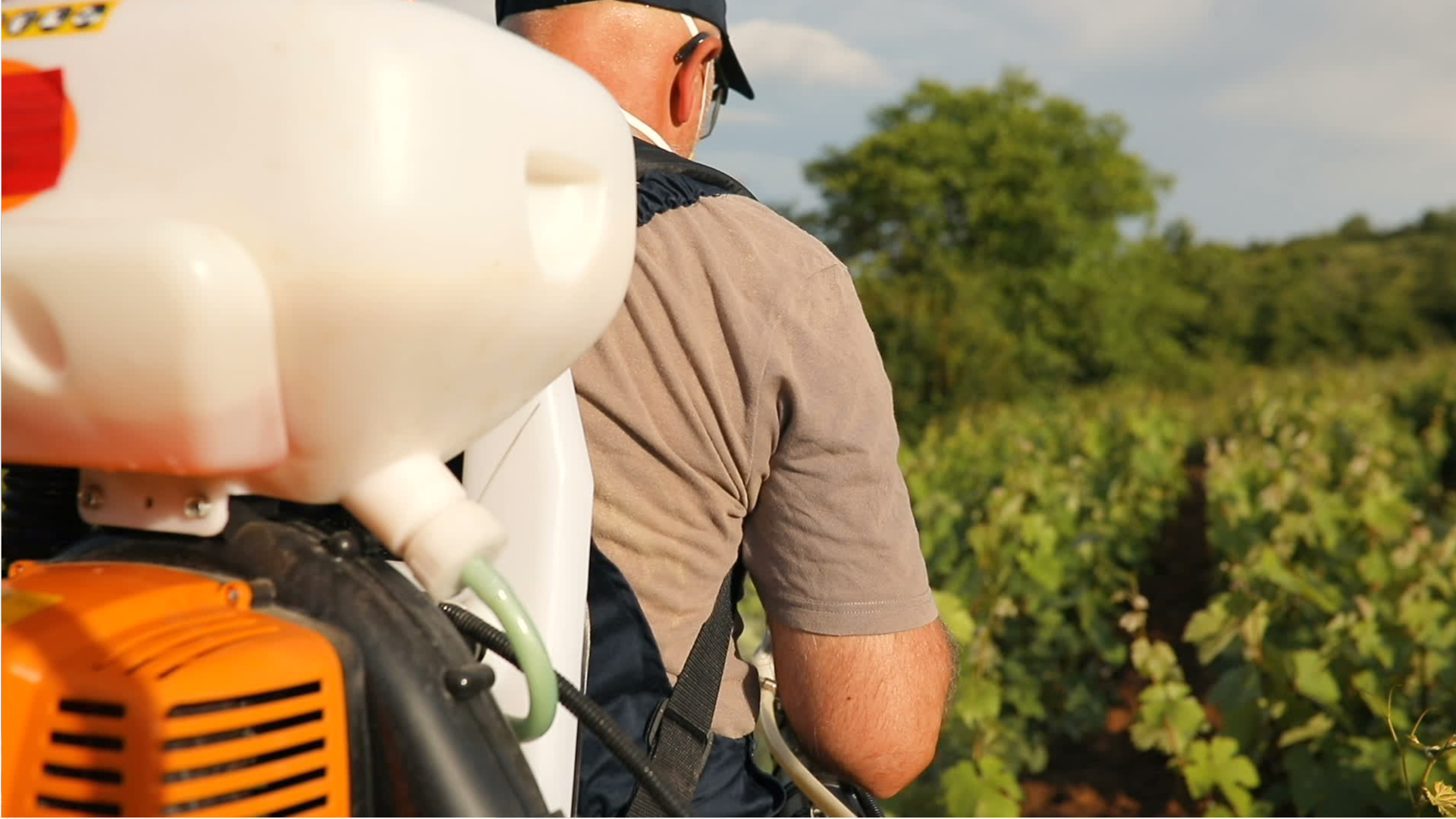
Pesticide Handlers, Sprayers, and Applicators, Vegetation
Pesticide Handlers, Sprayers, and Applicators manage the application of pesticides to control weeds, insects, and other pests affecting crops and vegetation.

Tree Trimmers and Pruners
Tree Trimmers and Pruners specialize in maintaining trees and shrubs by trimming and pruning them to promote healthy growth, enhance aesthetics, and ensure safety.

Grounds Maintenance Workers, All Other
Grounds Maintenance Workers, All Other are responsible for maintaining the landscape, gardens, and outdoor areas of various properties.

First-Line Supervisors of Gambling Services Workers
First-Line Supervisors of Gambling Services Workers oversee the activities of gambling employees, ensuring compliance with gaming regulations while providing quality service to customers.

First-Line Supervisors of Entertainment and Recreation Workers, Except Gambling Services
First-Line Supervisors of Entertainment and Recreation Workers oversee and coordinate the activities of workers in the entertainment and recreation industry, ensuring that services are delivered efficiently and effectively.

First-Line Supervisors of Personal Service Workers
First-Line Supervisors of Personal Service Workers oversee and manage the daily operations of workers who provide personal services to clients, such as hairdressers, childcare workers, and fitness trainers.

Animal Trainers
Animal trainers work to teach animals specific behaviors and commands for various purposes, including obedience, entertainment, and assistance.
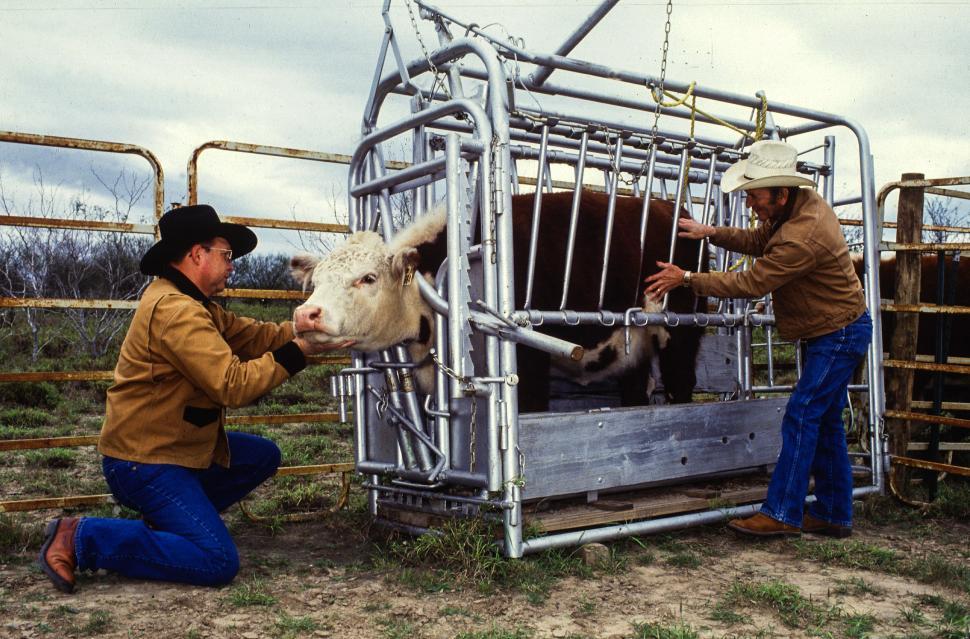
Animal Caretakers
Animal caretakers are professionals dedicated to the care and well-being of various animals, ensuring their physical, emotional, and social needs are met.

Gambling Dealers
Gambling dealers are professionals who oversee and facilitate gaming activities at casinos and other gambling venues.

Gambling and Sports Book Writers and Runners
Gambling and Sports Book Writers and Runners are responsible for creating and managing betting tickets, odds, and customer interactions in sports betting environments.

Gambling Service Workers, All Other
Gambling Service Workers, All Other provide essential support and customer service in various gambling establishments, ensuring a smooth gaming experience for patrons.

Motion Picture Projectionists
Motion Picture Projectionists are responsible for operating and maintaining projection equipment used to show films in theaters.

Ushers, Lobby Attendants, and Ticket Takers
Ushers, Lobby Attendants, and Ticket Takers play a crucial role in ensuring a pleasant and organized experience for patrons attending events or performances.

Amusement and Recreation Attendants
Amusement and Recreation Attendants help operate and oversee rides, games, and activities in amusement parks, recreational facilities, and other entertainment venues.

Costume Attendants
Costume attendants support theatrical productions by managing, maintaining, and organizing costumes for performances.

Locker Room, Coatroom, and Dressing Room Attendants
Locker Room, Coatroom, and Dressing Room Attendants manage the storage of personal belongings in various facilities, ensuring guests have a secure and pleasant experience.

Entertainment Attendants and Related Workers, All Other
Entertainment Attendants and Related Workers, All Other are responsible for various support roles in entertainment venues, providing key services to enhance the customer experience.
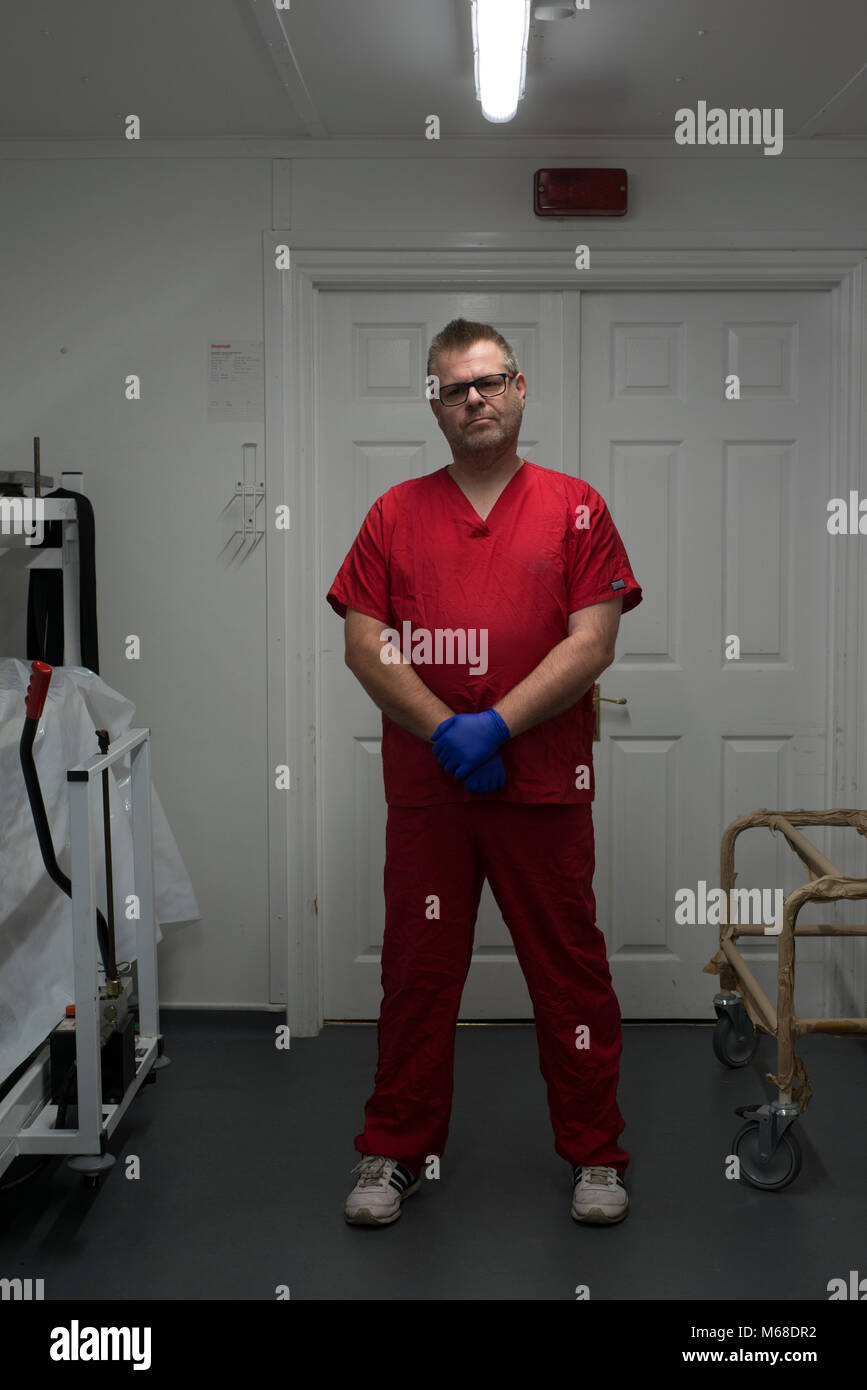
Embalmers
Embalmers are professionals who prepare deceased bodies for burial or cremation, often preserving them for viewing at memorial services.

Crematory Operators
Crematory operators are responsible for the efficient and respectful handling of cremation services, ensuring the safe operation of cremation equipment and facilities.

Funeral Attendants
Funeral attendants support the organization and management of funeral services, providing comfort and assistance to grieving families.

Morticians, Undertakers, and Funeral Arrangers
Morticians, Undertakers, and Funeral Arrangers are professionals who assist families in planning and conducting funeral services for the deceased.

Barbers
Barbers provide hair cutting, styling, shaving, and grooming services, primarily for male clients.

Hairdressers, Hairstylists, and Cosmetologists
Hairdressers, hairstylists, and cosmetologists are professionals who specialize in cutting, styling, and treating hair, as well as providing beauty services to enhance clients' appearance.

Makeup Artists, Theatrical and Performance
Makeup Artists in theatrical and performance settings create the visual appearance of actors and performers, enhancing their features to align with the character's requirements.

Manicurists and Pedicurists
Manicurists and Pedicurists specialize in cosmetic nail care and foot care, providing services like manicures, pedicures, and nail enhancements.
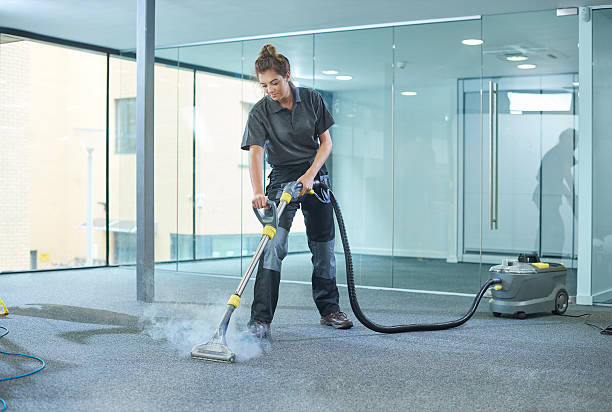
Shampooers
Shampooers are professionals who cleanse clients' hair using various products and techniques to prepare them for hairstyling services.

Skincare Specialists
Skincare specialists analyze skin conditions and provide treatments and recommendations to enhance the skin's appearance and health.

Baggage Porters and Bellhops
Baggage porters and bellhops assist travelers by transporting luggage and providing various hotel services, ensuring a smooth and pleasant experience for guests.

Concierges
Concierges provide personalized services to guests in hotels, resorts, or other establishments, ensuring a memorable stay by assisting with various needs and requests.

Tour and Travel Guides
Tour and travel guides help travelers navigate locations, providing insights, information, and assistance during their excursions.

Childcare Workers
Childcare workers support the development and well-being of children by providing care, supervision, and educational activities.

Exercise Trainers and Group Fitness Instructors
Exercise trainers and group fitness instructors lead fitness classes and personal training sessions, guiding participants through exercises and fitness routines.

Recreation Workers
Recreation Workers plan, organize, and lead recreational activities and programs for people of all ages.

Residential Advisors
Residential Advisors (RAs) are student leaders who support peers in residence halls by fostering a positive living environment and providing resources.

Personal Care and Service Workers, All Other
Personal Care and Service Workers, All Other, provide a variety of supportive services to individuals in need of assistance with personal care and daily living activities.

First-Line Supervisors of Retail Sales Workers
First-Line Supervisors of Retail Sales Workers oversee and coordinate the daily activities of retail sales staff to ensure effective customer service and operational success.

First-Line Supervisors of Non-Retail Sales Workers
First-Line Supervisors of Non-Retail Sales Workers oversee and coordinate the activities of sales teams to maximize productivity and sales performance.

Cashiers
Cashiers are responsible for processing transactions at retail stores, restaurants, and other service establishments, ensuring an efficient and accurate checkout experience for customers.

Gambling Change Persons and Booth Cashiers
Gambling Change Persons and Booth Cashiers are responsible for handling cash transactions and providing monetary exchanges for customers in gambling establishments like casinos.

Counter and Rental Clerks
Counter and Rental Clerks facilitate transactions and assist customers in renting and purchasing equipment or services, ensuring a smooth and pleasant customer experience.

Parts Salespersons
Parts salespersons sell automotive and other machinery parts to customers, providing expert advice on product selection and ensuring customer satisfaction.

Retail Salespersons
Retail salespersons guide customers through their shopping experience, providing product knowledge and assisting with purchases.

Advertising Sales Agents
Advertising sales agents sell advertising space or time to businesses and individuals, helping them promote their products and services.

Insurance Sales Agents
Insurance Sales Agents help clients choose insurance policies that best fit their needs by assessing risk and offering tailored coverage options.

Securities, Commodities, and Financial Services Sales Agents
Securities, Commodities, and Financial Services Sales Agents facilitate the buying and selling of securities, commodities, and financial products for individuals and businesses.

Travel Agents
Travel agents assist clients in planning and booking travel arrangements, including transportation, accommodations, and activities.

Sales Representatives of Services, Except Advertising, Insurance, Financial Services, and Travel
Sales Representatives of Services, Except Advertising, Insurance, Financial Services, and Travel specialize in selling services to businesses and organizations across various industries.

Sales Representatives, Wholesale and Manufacturing, Technical and Scientific Products
Sales Representatives for wholesale and manufacturing, particularly in technical and scientific products, are responsible for selling and promoting complex products to businesses and institutions.

Sales Representatives, Wholesale and Manufacturing, Except Technical and Scientific Products
Sales Representatives in wholesale and manufacturing manage relationships with clients and are responsible for selling goods and services to other businesses.

Demonstrators and Product Promoters
Demonstrators and product promoters showcase products to potential customers and persuade them to purchase or engage with the product.

Real Estate Brokers
Real estate brokers facilitate the buying, selling, and leasing of properties, acting as intermediaries between buyers and sellers.

Real Estate Sales Agents
Real Estate Sales Agents help clients buy, sell, and rent properties, acting as intermediaries in real estate transactions.

Sales Engineers
Sales Engineers combine technical knowledge with sales skills to sell complex scientific and technological products or services.

Telemarketers
Telemarketers are professionals who conduct direct marketing campaigns primarily over the phone to sell products or services.

Door-to-Door Sales Workers, News and Street Vendors, and Related Workers
Door-to-Door Sales Workers, News and Street Vendors are responsible for selling goods directly to customers at their homes or on the streets.

Sales and Related Workers, All Other
Sales and Related Workers, All Other encompass a diverse range of professionals who work in various sales roles not specifically categorized in other standard categories.

First-Line Supervisors of Office and Administrative Support Workers
First-Line Supervisors of Office and Administrative Support Workers oversee and coordinate the administrative support activities of their team, ensuring efficiency and productivity within the office.

Switchboard Operators, Including Answering Service
Switchboard operators manage telephone communication systems, connecting calls and providing customer service support.
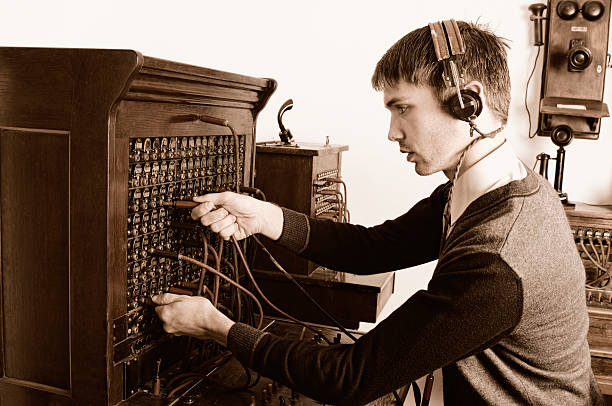
Telephone Operators
Telephone operators facilitate phone calls and manage communication systems within businesses or organizations.
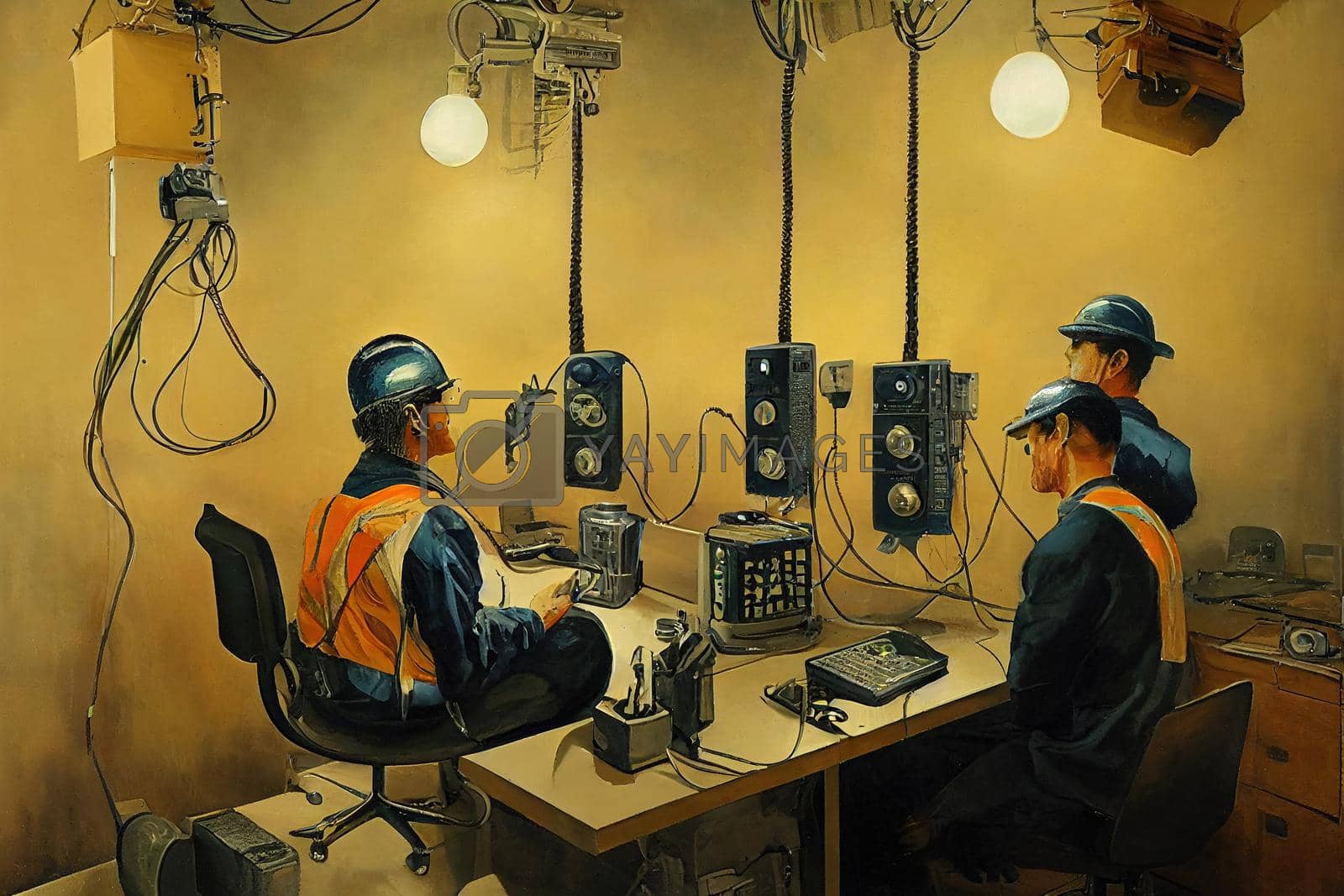
Communications Equipment Operators, All Other
Communications Equipment Operators, All Other, are responsible for the operation and monitoring of various telecommunications equipment to facilitate effective communication across different platforms.

Bill and Account Collectors
Bill and Account Collectors are responsible for pursuing payments on debts owed to businesses and individuals.

Billing and Posting Clerks
Billing and Posting Clerks handle billing processes and maintain financial records for organizations.

Bookkeeping, Accounting, and Auditing Clerks
Bookkeeping, Accounting, and Auditing Clerks are responsible for maintaining financial records, ensuring accuracy, and assisting in the preparation of financial reports.

Gambling Cage Workers
Gambling Cage Workers manage the cash transactions and transactions related to gaming activities in casinos.

Payroll and Timekeeping Clerks
Payroll and timekeeping clerks are responsible for managing employee compensation records and ensuring accurate calculation of wages.

Procurement Clerks
Procurement clerks manage the purchasing process of goods and services for an organization, ensuring that the supply chain runs efficiently and effectively.

Tellers
Tellers are banking professionals who handle routine financial transactions and provide excellent customer service at banks and credit unions.

Financial Clerks, All Other
Financial Clerks, All Other perform a variety of administrative and clerical tasks in support of financial operations in various organizations.
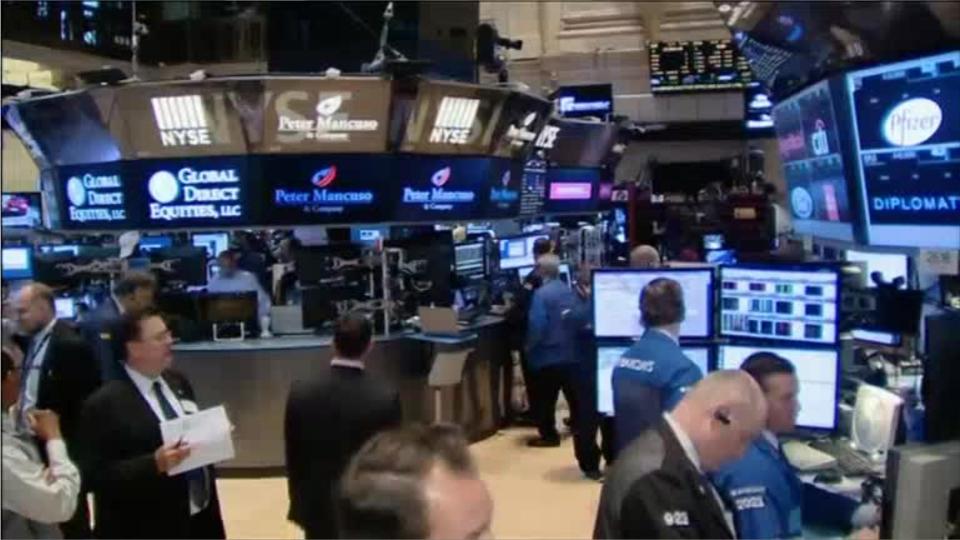
Brokerage Clerks
Brokerage Clerks assist brokers and traders by performing clerical duties, including processing transactions and handling customer inquiries.

Correspondence Clerks
Correspondence Clerks are responsible for managing and processing incoming and outgoing communications in various formats, ensuring timely and accurate correspondence within an organization.

Court, Municipal, and License Clerks
Court, Municipal, and License Clerks manage and maintain various court records and municipal licenses, ensuring that legal documents are accurately filed and accessible to the public.

Credit Authorizers, Checkers, and Clerks
Credit Authorizers, Checkers, and Clerks evaluate and authorize credit for customers and assess the financial records of individuals and businesses.

Customer Service Representatives
Customer Service Representatives engage with customers to address inquiries, resolve issues, and provide support, ensuring a positive customer experience.

Eligibility Interviewers, Government Programs
Eligibility Interviewers for government programs are responsible for assessing and determining individuals' eligibility for various social services and assistance programs.

File Clerks
File Clerks are responsible for organizing and maintaining files and records in an office environment.

Hotel, Motel, and Resort Desk Clerks
Hotel, Motel, and Resort Desk Clerks are responsible for managing the front desk operations of lodging establishments, assisting guests with check-in, check-out, and various inquiries to ensure a pleasant stay.

Interviewers, Except Eligibility and Loan
Interviewers, Except Eligibility and Loan, are responsible for conducting interviews with individuals to gather information for various purposes, such as research, surveys, or assessments.

Library Assistants, Clerical
Library Assistants, Clerical support the operations of libraries by managing administrative tasks and assisting patrons.

Loan Interviewers and Clerks
Loan Interviewers and Clerks are responsible for managing the loan application process by collecting financial information from applicants and determining their eligibility for loans.

New Accounts Clerks
New Accounts Clerks assist customers in opening new accounts and provide support for account-related inquiries.

Order Clerks
Order clerks manage customer orders and ensure that products are processed and delivered efficiently.

Human Resources Assistants, Except Payroll and Timekeeping
Human Resources Assistants support various HR functions, handling administrative tasks and facilitating communication between management and employees.

Receptionists and Information Clerks
Receptionists and Information Clerks are the face of an organization, managing front desk operations and providing information to clients and visitors.
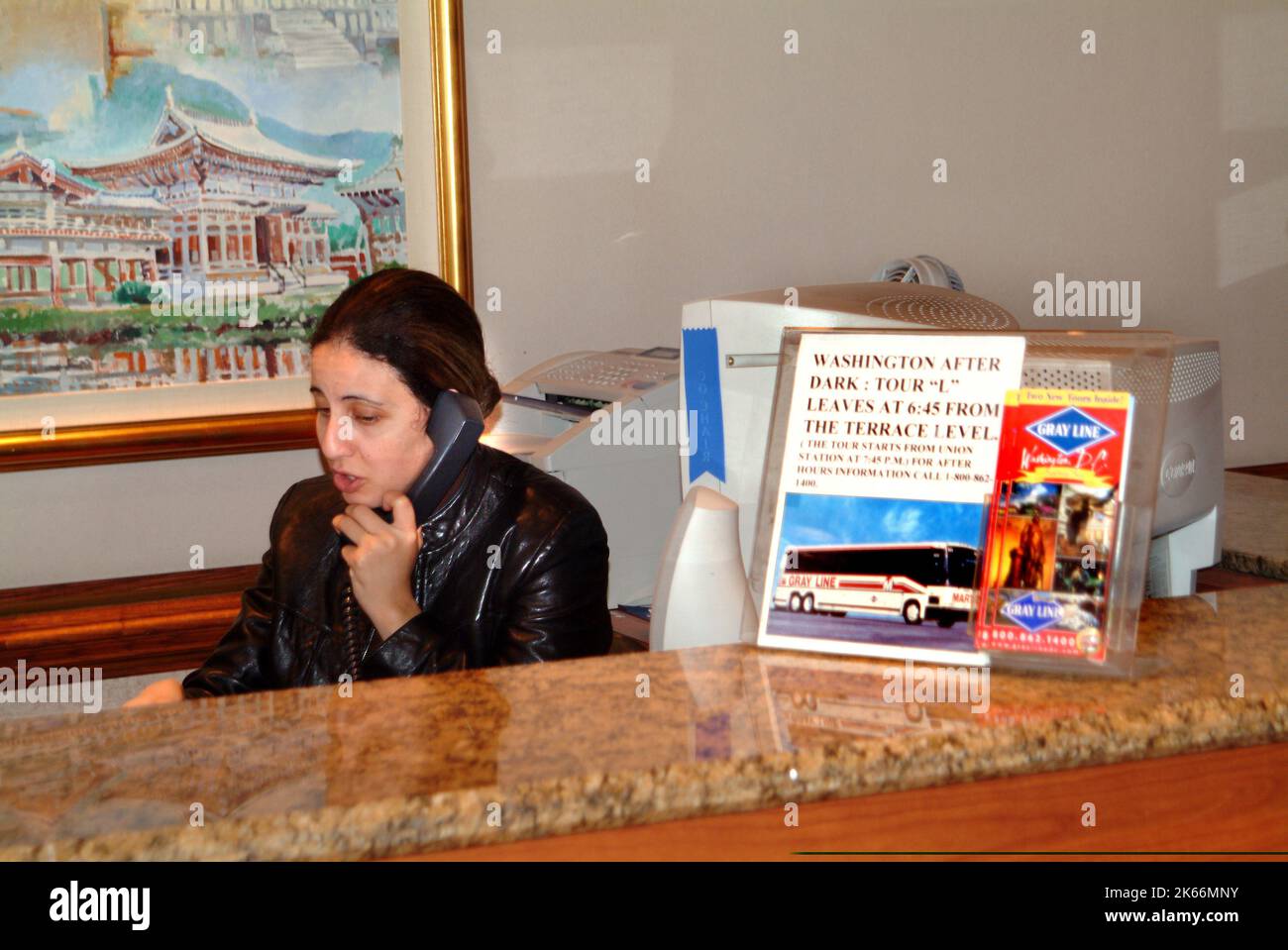
Reservation and Transportation Ticket Agents and Travel Clerks
Reservation and Transportation Ticket Agents and Travel Clerks assist customers in booking travel arrangements and provide information about travel services, destinations, and fares.

Information and Record Clerks, All Other
Information and Record Clerks, All Other are responsible for managing and maintaining a variety of records and information, ensuring that data is accurate, organized, and accessible.

Cargo and Freight Agents
Cargo and freight agents manage the transportation of goods for businesses and individuals, ensuring timely and accurate delivery.

Couriers and Messengers
Couriers and messengers transport packages and documents on foot, by bicycle, motorcycle, or vehicle to help facilitate business operations and personal communications.

Public Safety Telecommunicators
Public Safety Telecommunicators are essential first responders who manage emergency calls and coordinate dispatching services to ensure the safety of the public.

Dispatchers, Except Police, Fire, and Ambulance
Dispatchers, except police, fire, and ambulance, coordinate and manage the logistical operations of transportation and delivery services to ensure timely and efficient service.

Meter Readers, Utilities
Meter Readers, Utilities are professionals responsible for collecting data on utility consumption from residential and commercial meters.
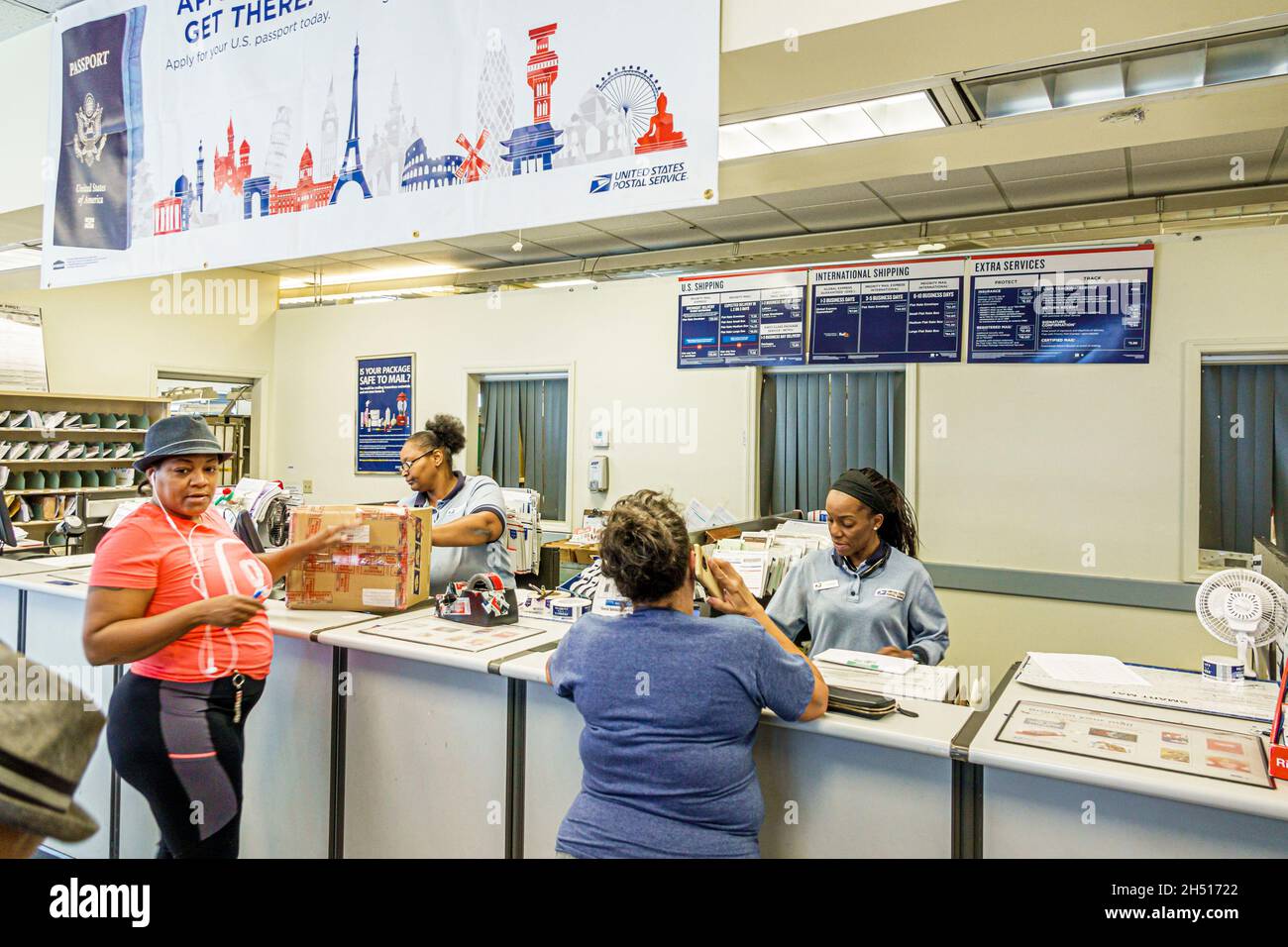
Postal Service Clerks
Postal Service Clerks handle various duties related to mail processing and customer service within postal facilities.

Postal Service Mail Carriers
Postal Service Mail Carriers are responsible for delivering letters, packages, and other mail items to homes and businesses in a designated area.

Postal Service Mail Sorters, Processors, and Processing Machine Operators
Postal Service Mail Sorters, Processors, and Processing Machine Operators manage the sorting and processing of mail to ensure efficient and timely delivery.
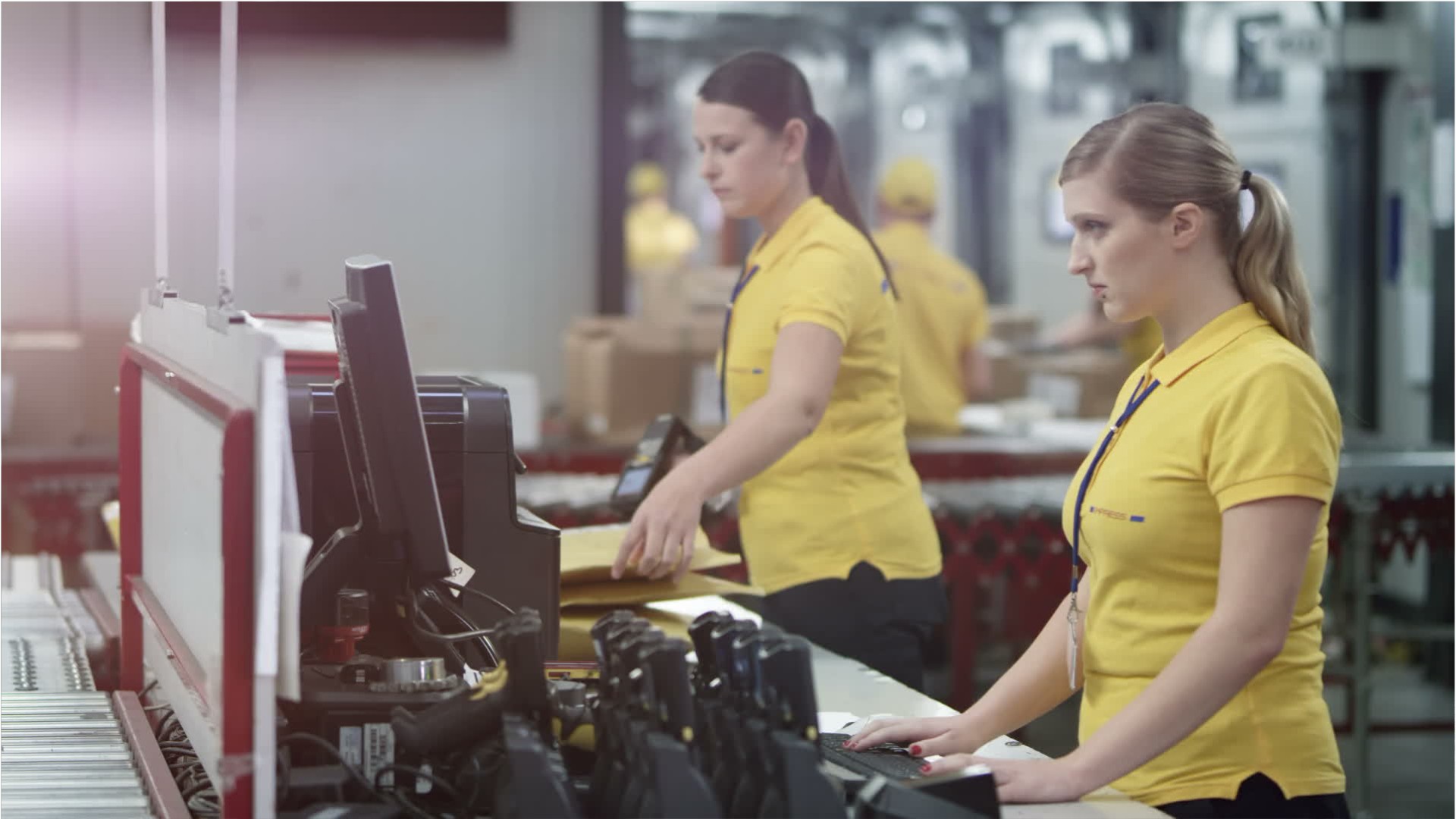
Production, Planning, and Expediting Clerks
Production, Planning, and Expediting Clerks coordinate the workflow of goods and services in manufacturing environments to ensure that production schedules are met efficiently.

Shipping, Receiving, and Inventory Clerks
Shipping, Receiving, and Inventory Clerks manage the flow of goods in and out of a warehouse or storage facility, ensuring proper tracking and organization of inventory.

Weighers, Measurers, Checkers, and Samplers, Recordkeeping
Weighers, Measurers, Checkers, and Samplers are responsible for determining the weight, size, or quantity of materials and products to ensure quality control in various industries.

Executive Secretaries and Executive Administrative Assistants
Executive Secretaries and Executive Administrative Assistants provide high-level administrative support to executives, ensuring efficient office operations.

Legal Secretaries and Administrative Assistants
Legal Secretaries and Administrative Assistants support legal professionals by managing administrative tasks and maintaining the smooth operation of legal offices.

Medical Secretaries and Administrative Assistants
Medical Secretaries and Administrative Assistants support healthcare professionals by managing administrative tasks and ensuring the smooth operation of medical offices and clinics.

Secretaries and Administrative Assistants, Except Legal, Medical, and Executive
Secretaries and Administrative Assistants provide essential support in the organization and execution of administrative tasks within various office environments.

Data Entry Keyers
Data Entry Keyers are responsible for inputting and managing data accurately into computer systems for various organizations.

Word Processors and Typists
Word processors and typists specialize in creating, formatting, and editing textual documents using computers and word processing software.

Desktop Publishers
Desktop Publishers create visual layouts for print and digital media using specialized software.

Insurance Claims and Policy Processing Clerks
Insurance Claims and Policy Processing Clerks manage and process insurance claims and policy documents, ensuring accurate and timely handling of insurance transactions.
.jpg)
Mail Clerks and Mail Machine Operators, Except Postal Service
Mail Clerks and Mail Machine Operators, Except Postal Service, handle, sort, and process mail and packages for businesses and organizations, ensuring efficient delivery and management of correspondence and shipments.

Office Clerks, General
Office Clerks, General perform a variety of administrative tasks to support the efficient operation of an office.

Office Machine Operators, Except Computer
Office Machine Operators, Except Computer, are responsible for operating and managing various office machines to ensure efficient workflow in an office environment.

Proofreaders and Copy Markers
Proofreaders and copy markers ensure that written content is accurate, clear, and free of errors before it is published or printed.

Statistical Assistants
Statistical Assistants support statisticians and researchers by compiling, analyzing, and interpreting data to facilitate decision-making processes.

Office and Administrative Support Workers, All Other
Office and Administrative Support Workers, All Other, provide essential administrative assistance, ensuring smooth operation and support in various organizational functions.

First-Line Supervisors of Farming, Fishing, and Forestry Workers
First-Line Supervisors of Farming, Fishing, and Forestry Workers oversee and coordinate the activities of workers engaged in agricultural, fishing, and forestry operations.

Agricultural Inspectors
Agricultural Inspectors ensure compliance with regulations governing the safety and quality of agricultural products.

Animal Breeders
Animal breeders specialize in the mating and selection of animals to produce specific desired traits in offspring, contributing to the improvement of animal breeds.

Graders and Sorters, Agricultural Products
Graders and sorters of agricultural products inspect and classify fruits, vegetables, and other crops to ensure quality and compliance with industry standards.
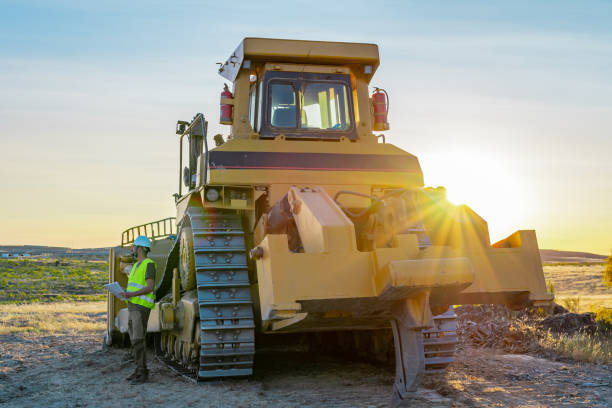
Agricultural Equipment Operators
Agricultural Equipment Operators are skilled workers who operate machinery used in farming and agricultural production.

Farmworkers and Laborers, Crop, Nursery, and Greenhouse
Farmworkers and laborers in crop, nursery, and greenhouse settings cultivate plants and assist with agricultural production.
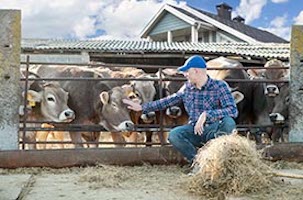
Farmworkers, Farm, Ranch, and Aquacultural Animals
Farmworkers, Farm, Ranch, and Aquacultural Animals are essential laborers who manage and care for crops, livestock, and marine species, ensuring efficient production and sustainability in agriculture and aquaculture.
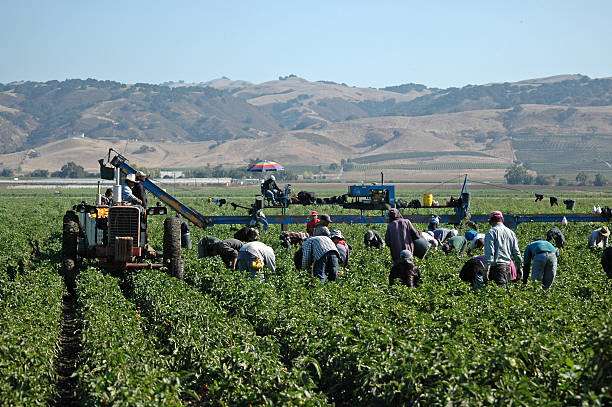
Agricultural Workers, All Other
Agricultural Workers, All Other are involved in various tasks related to the cultivation and harvesting of crops that do not fall under specific categories defined by traditional agricultural job titles.

Forest and Conservation Workers
Forest and Conservation Workers manage, preserve, and restore forests and other natural resources, ensuring environmental health and sustainability.
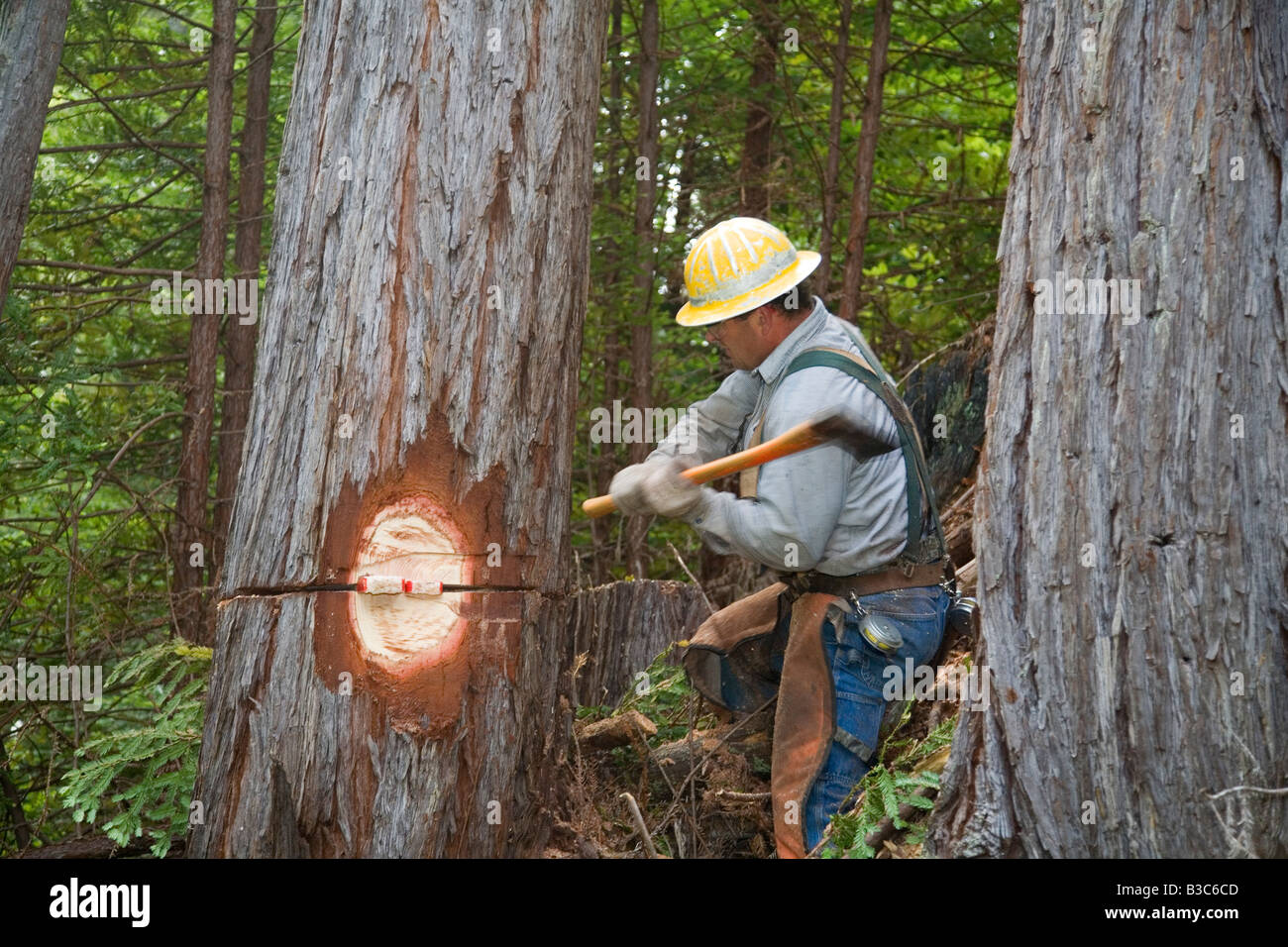
Fallers
Fallers are specialized workers who fell and cut down trees in forested areas for various purposes, including timber production and land clearing.
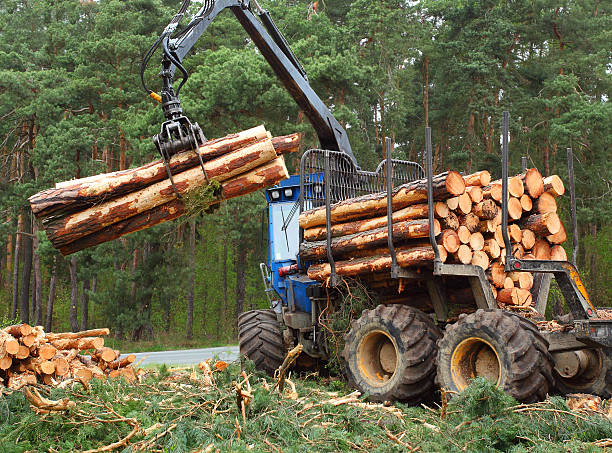
Logging Equipment Operators
Logging Equipment Operators are skilled professionals responsible for operating heavy machinery used in the harvesting and processing of timber.
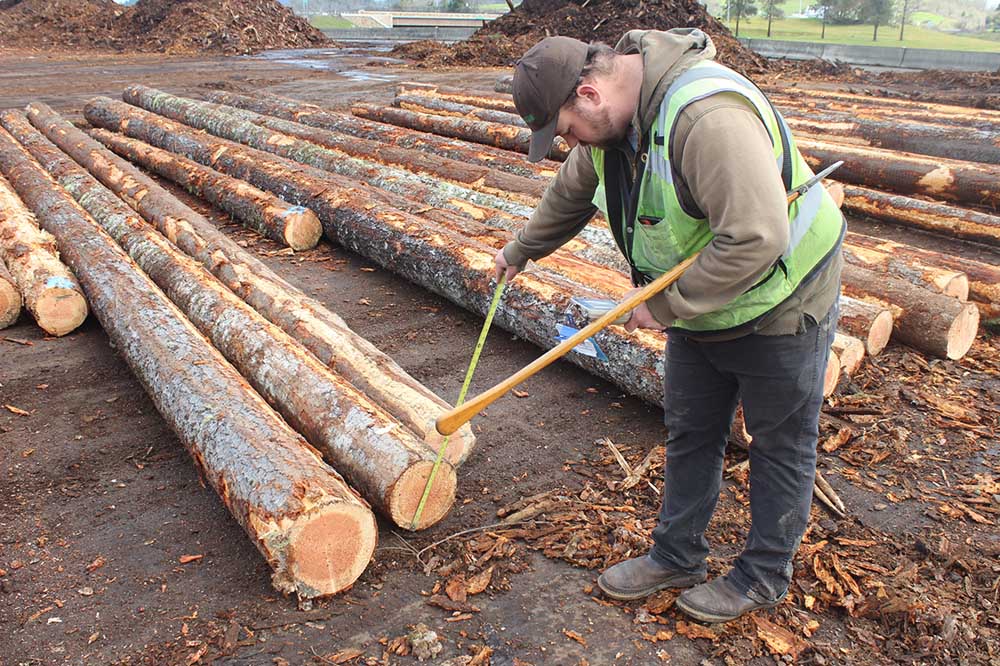
Log Graders and Scalers
Log Graders and Scalers assess the quality and size of timber, determining its value and ensuring compliance with industry standards.

Logging Workers, All Other
Logging workers, all other, perform various tasks in timber harvesting and wood processing, contributing to the forestry industry.

First-Line Supervisors of Construction Trades and Extraction Workers
First-Line Supervisors of Construction Trades and Extraction Workers oversee and coordinate the activities of construction or extraction workers on job sites to ensure projects proceed smoothly and efficiently.

Boilermakers
Boilermakers are skilled tradespeople who fabricate, assemble, and repair metal structures and vessels, often used in various industries such as construction, manufacturing, and energy.
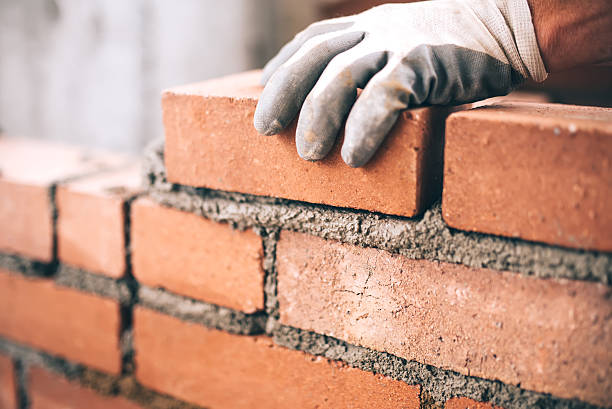
Brickmasons and Blockmasons
Brickmasons and Blockmasons construct and repair walls and other structures using bricks, concrete blocks, and other materials.
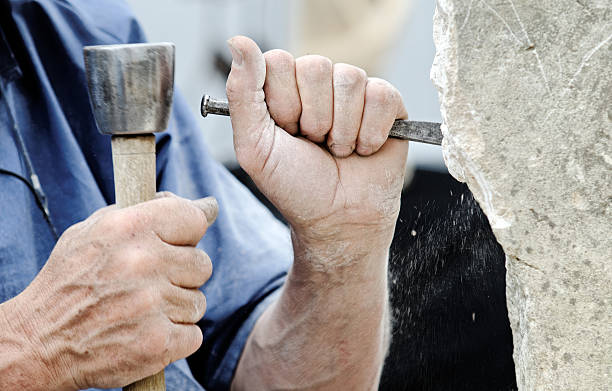
Stonemasons
Stonemasons are skilled artisans who work with stone to create structures, sculptures, and various forms of stonework.

Carpenters
Carpenters are skilled tradespeople who work with wood and other materials to construct, install, and repair structures and fixtures.

Carpet Installers
Carpet installers lay down carpet in homes and businesses, ensuring a smooth and professional finish.

Floor Layers, Except Carpet, Wood, and Hard Tiles
Floor layers install, repair, and maintain various types of flooring surfaces, excluding carpet, wood, and hard tiles.

Floor Sanders and Finishers
Floor Sanders and Finishers are skilled tradespeople who prepare, sand, and finish wooden floors, ensuring they are visually appealing and durable for public and private spaces.

Tile and Stone Setters
Tile and stone setters are skilled tradespeople who install and repair tiles and stones in various settings, including floors, walls, and countertops.
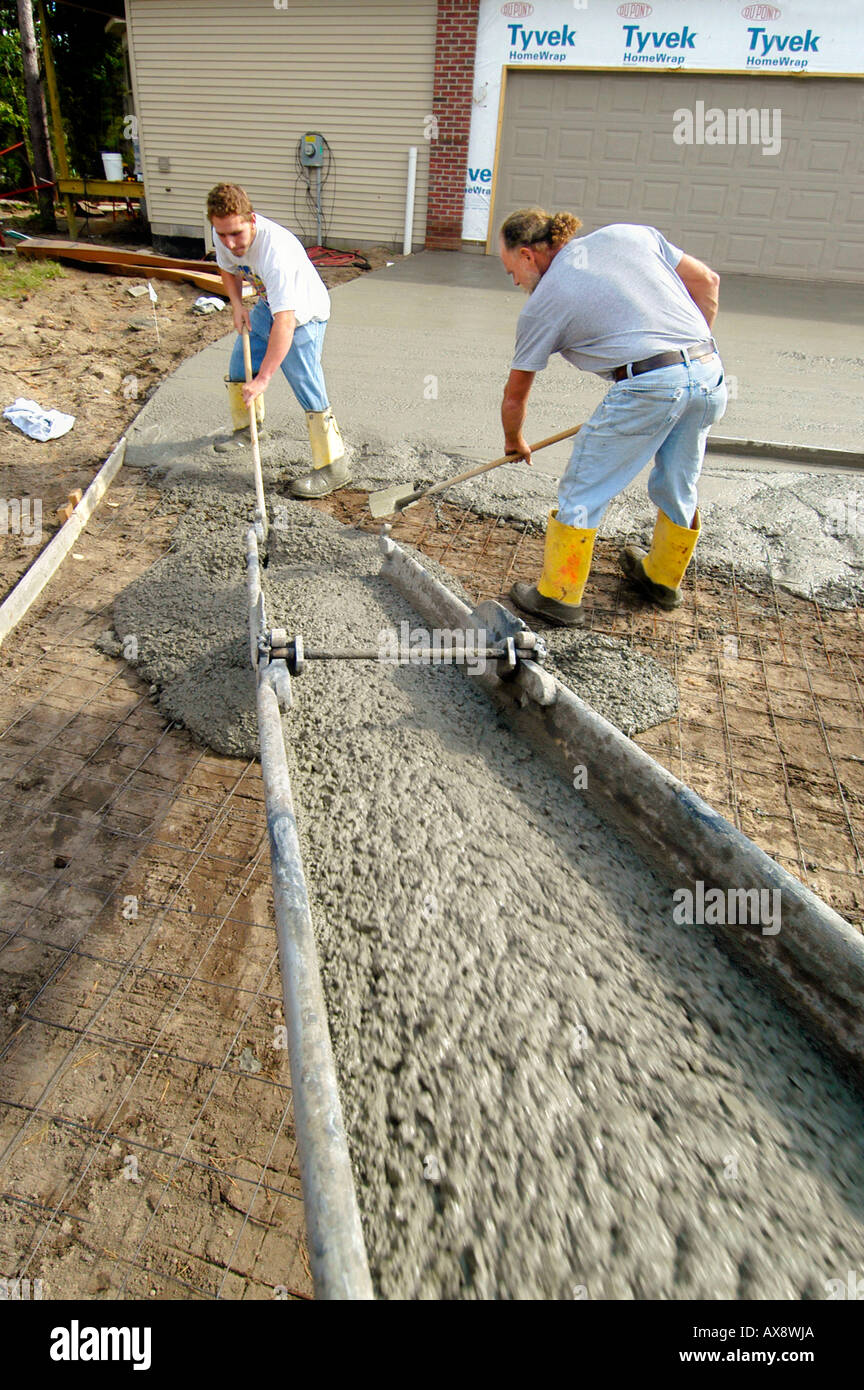
Cement Masons and Concrete Finishers
Cement Masons and Concrete Finishers are skilled tradespeople who work with concrete to create and finish surfaces such as floors, sidewalks, and walls.

Terrazzo Workers and Finishers
Terrazzo Workers and Finishers create and finish decorative flooring and surfaces using a mixture of marble, quartz, granite, glass, and other materials.

Construction Laborers
Construction laborers perform a variety of physical tasks to help build, demolish, and maintain structures.
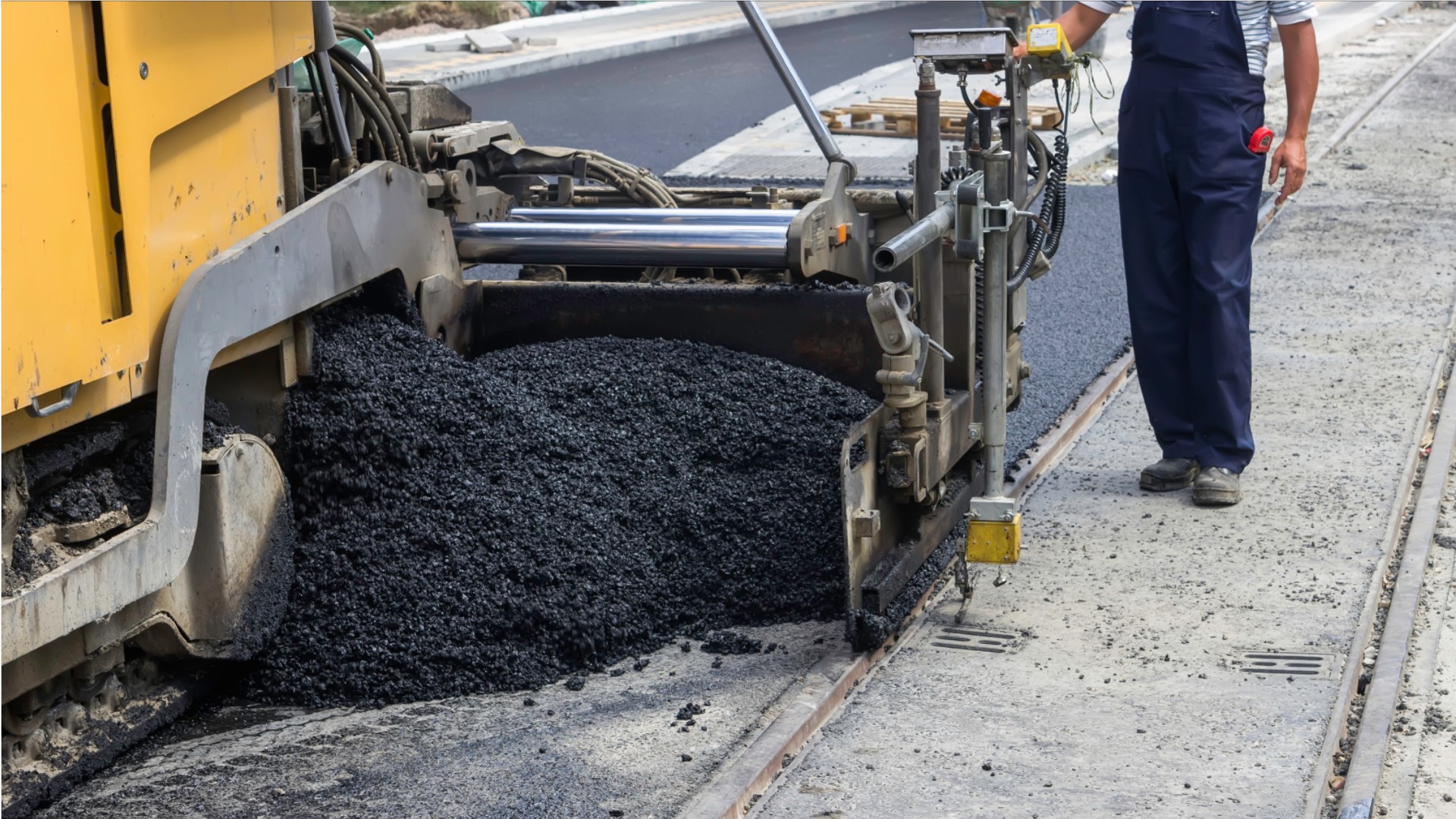
Paving, Surfacing, and Tamping Equipment Operators
Paving, Surfacing, and Tamping Equipment Operators are skilled workers who operate specialized machinery to lay asphalt and concrete surfaces and ensure they are properly compacted and finished.
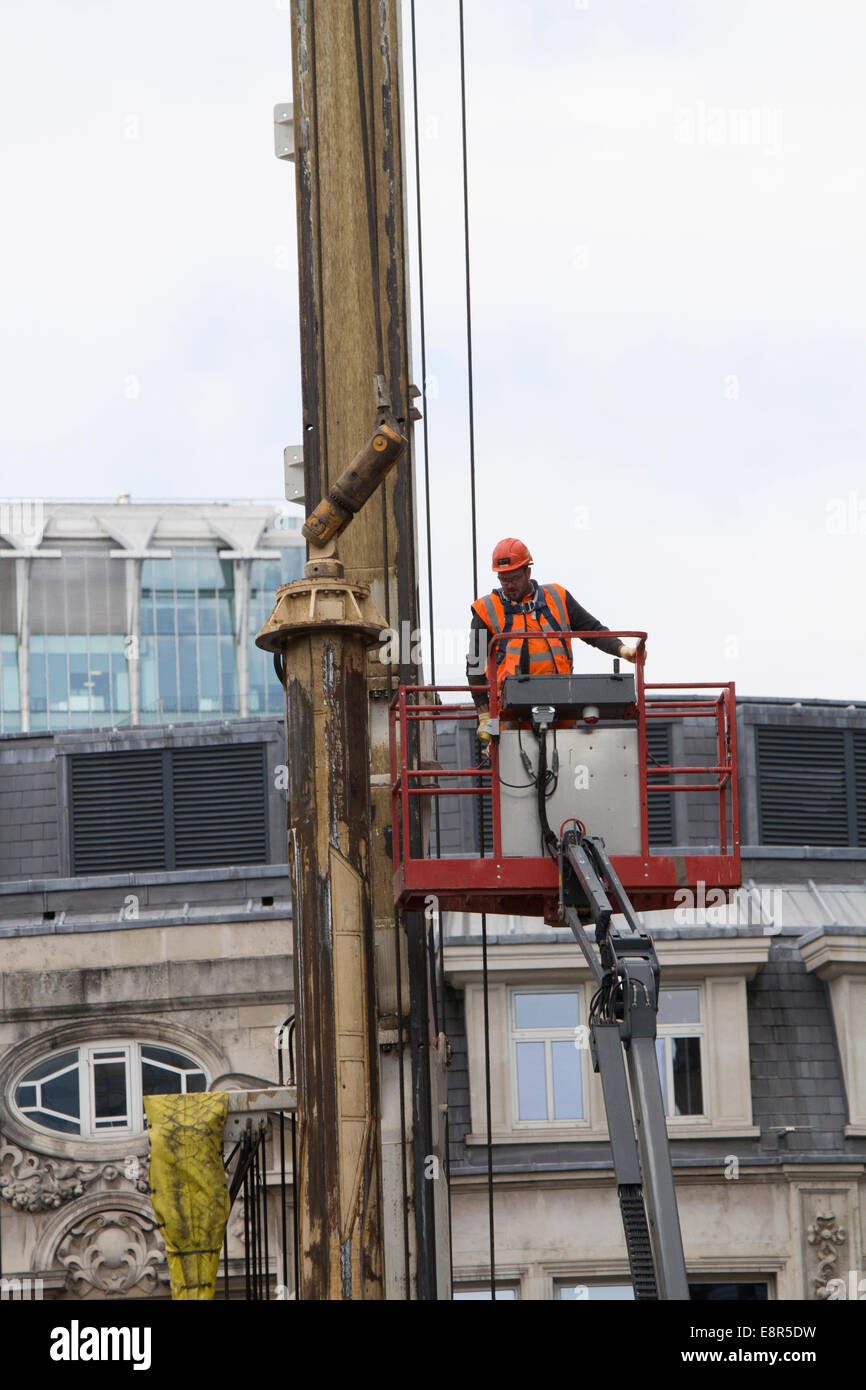
Pile Driver Operators
Pile Driver Operators are specialized construction workers who operate machinery to drive piles into the ground to provide foundation support for buildings and other structures.

Operating Engineers and Other Construction Equipment Operators
Operating Engineers and Other Construction Equipment Operators manage and control machinery used in construction and mining, ensuring that projects are executed safely and efficiently.
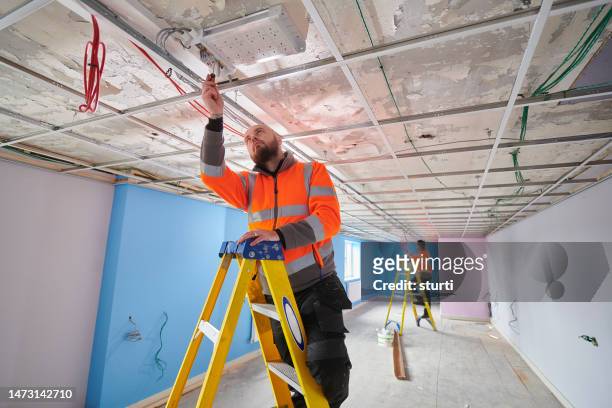
Drywall and Ceiling Tile Installers
Drywall and Ceiling Tile Installers are skilled tradespeople who install wallboard and ceiling tiles to create sturdy, finished interiors in residential and commercial buildings.
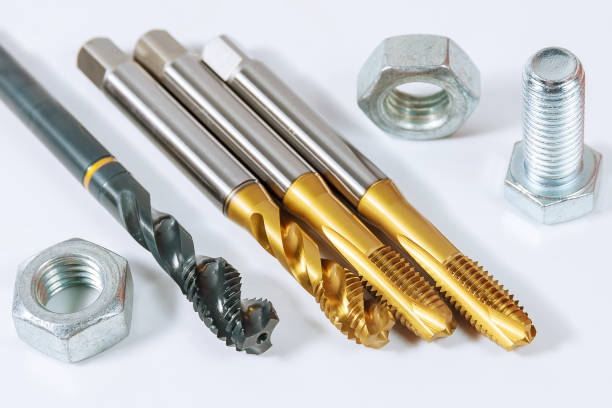
Tapers
Tapers are skilled tradespeople who specialize in applying tape and finishing materials to drywall surfaces to create a smooth, polished finish.

Electricians
Electricians are skilled tradespeople who install, maintain, and repair electrical systems in residential, commercial, and industrial settings.

Glaziers
Glaziers are skilled professionals who install and repair glass in various structures, including windows, doors, and facades.

Insulation Workers, Floor, Ceiling, and Wall
Insulation workers install and replace insulation materials in buildings to enhance energy efficiency and maintain temperature control.

Insulation Workers, Mechanical
Insulation workers install and maintain insulation in mechanical systems to improve energy efficiency and reduce noise in buildings.

Painters, Construction and Maintenance
Painters, Construction and Maintenance are skilled professionals responsible for applying paint, varnish, and other finishes to buildings and structures to enhance their appearance and protect surfaces.

Paperhangers
Paperhangers are skilled tradespeople who specialize in applying wallpaper to interior walls and ceilings, transforming spaces with a variety of designs and textures.
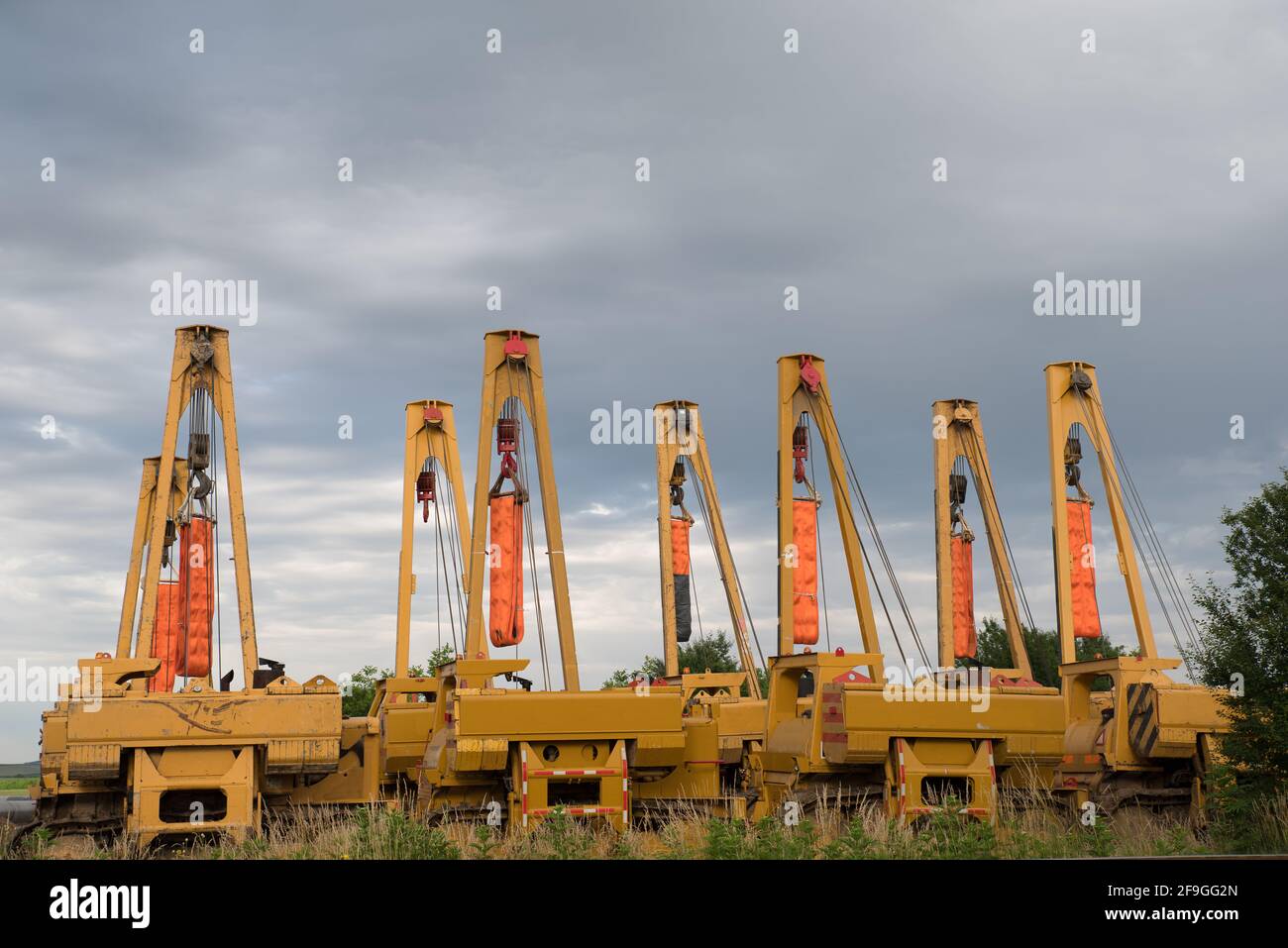
Pipelayers
Pipelayers are skilled construction workers who specialize in laying pipe systems for water, sewage, and gas distribution.

Plumbers, Pipefitters, and Steamfitters
Plumbers, Pipefitters, and Steamfitters install and repair piping systems in various settings to ensure the delivery of gas, water, and other fluids.

Plasterers and Stucco Masons
Plasterers and stucco masons apply plaster, stucco, and other materials to surfaces for functional and decorative purposes.
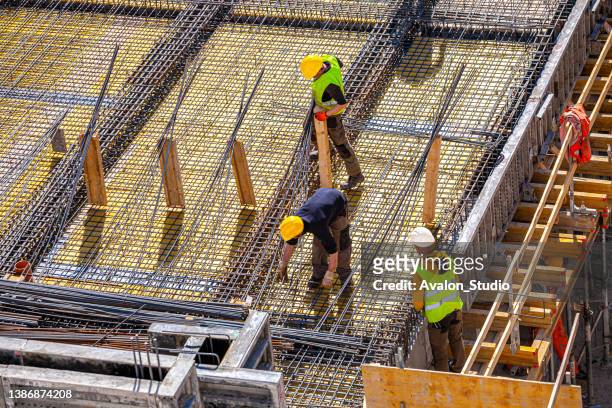
Reinforcing Iron and Rebar Workers
Reinforcing iron and rebar workers install and secure steel reinforcements for concrete structures to enhance strength and durability.

Roofers
Roofers are skilled tradespeople who specialize in the construction, installation, maintenance, and repair of roofs and roofing systems.
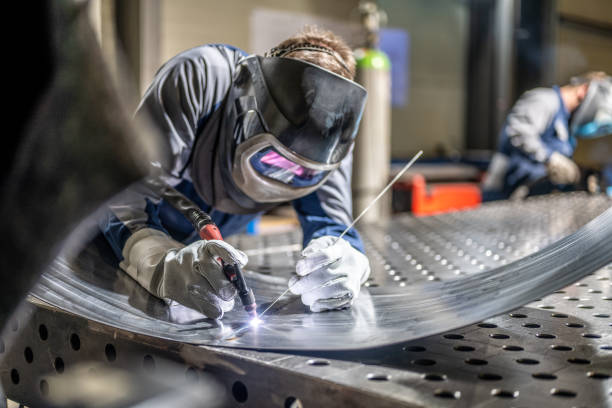
Sheet Metal Workers
Sheet metal workers fabricate and install products made from thin metal sheets, playing a crucial role in construction and manufacturing.

Structural Iron and Steel Workers
Structural Iron and Steel Workers assemble, erect, and connect steel frameworks and iron structures to support buildings and other constructions.

Solar Photovoltaic Installers
Solar Photovoltaic Installers are professionals who assemble, install, and maintain solar panels on rooftops or other structures to harness solar energy.
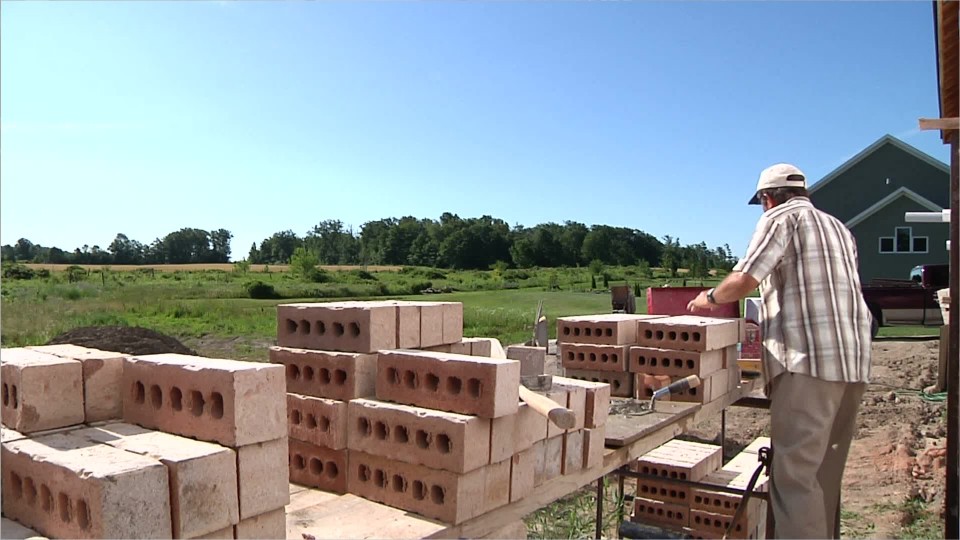
Helpers--Brickmasons, Blockmasons, Stonemasons, and Tile and Marble Setters
Helpers assist skilled masons in constructing and finishing structures using bricks, blocks, stones, tiles, and marbles.

Helpers--Carpenters
Helpers for carpenters assist with various tasks involved in the construction and installation of wooden structures.

Helpers--Electricians
Helpers—Electricians assist licensed electricians in installing, maintaining, and repairing electrical systems and equipment.

Helpers--Painters, Paperhangers, Plasterers, and Stucco Masons
Helpers in the painting and plastering trades assist skilled craftsmen in the application of finishes and materials to structures.

Helpers--Pipelayers, Plumbers, Pipefitters, and Steamfitters
Helpers in the plumbing and piping industry support skilled workers in installing and repairing piping systems and fixtures.

Helpers--Roofers
Helpers--Roofers assist roofers in their duties, providing support in the installation, repair, or maintenance of roofs.

Helpers, Construction Trades, All Other
Helpers in construction trades assist skilled workers in various tasks related to building, repairing, and maintaining structures and facilities.

Construction and Building Inspectors
Construction and Building Inspectors ensure that construction projects comply with zoning regulations, building codes, and safety standards.
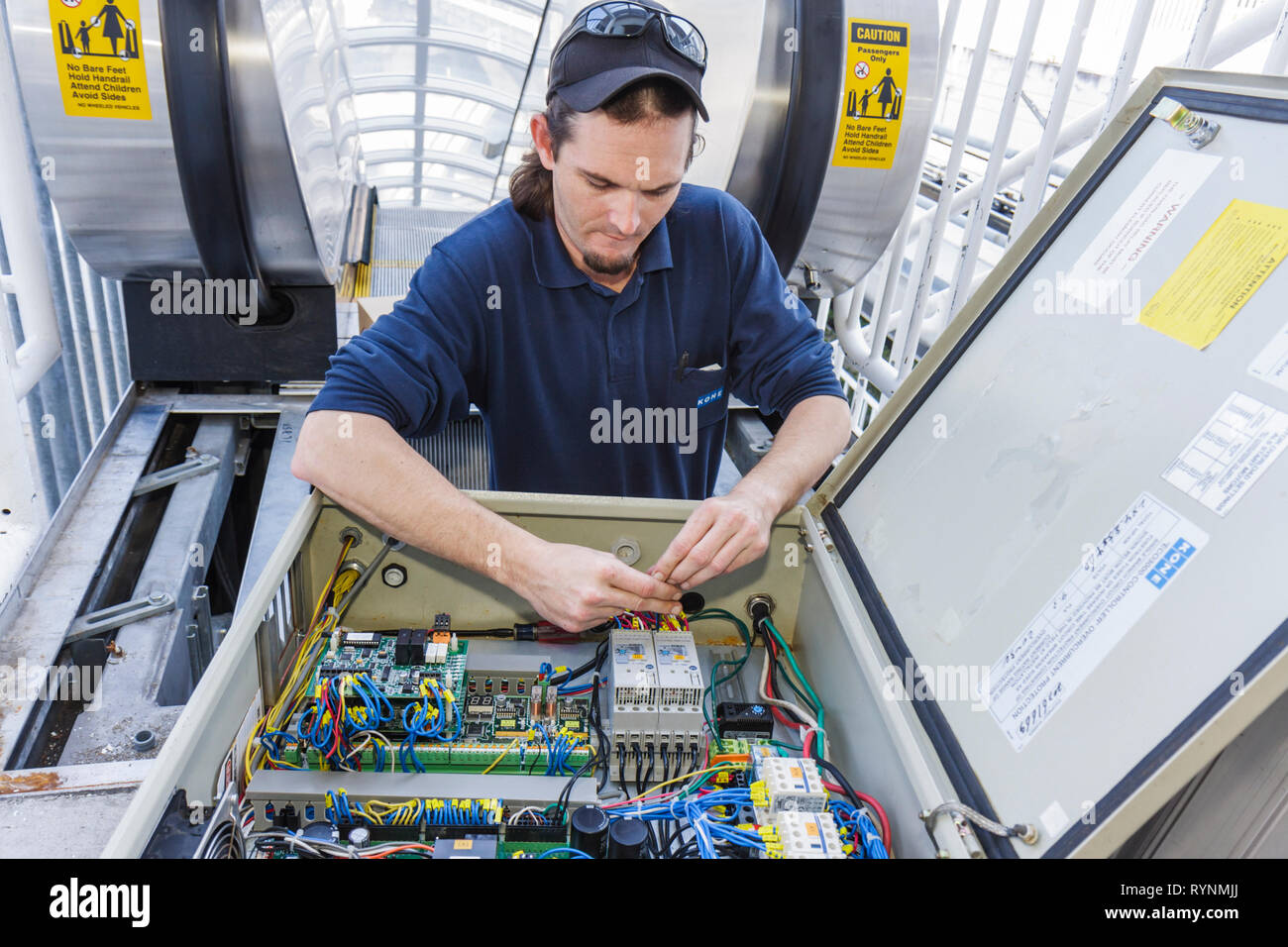
Elevator and Escalator Installers and Repairers
Elevator and Escalator Installers and Repairers design, install, maintain, and repair elevators, escalators, and similar equipment, ensuring safety and efficiency in vertical transportation.

Fence Erectors
Fence erectors are skilled tradespeople responsible for constructing and installing fences for residential, commercial, and industrial properties.
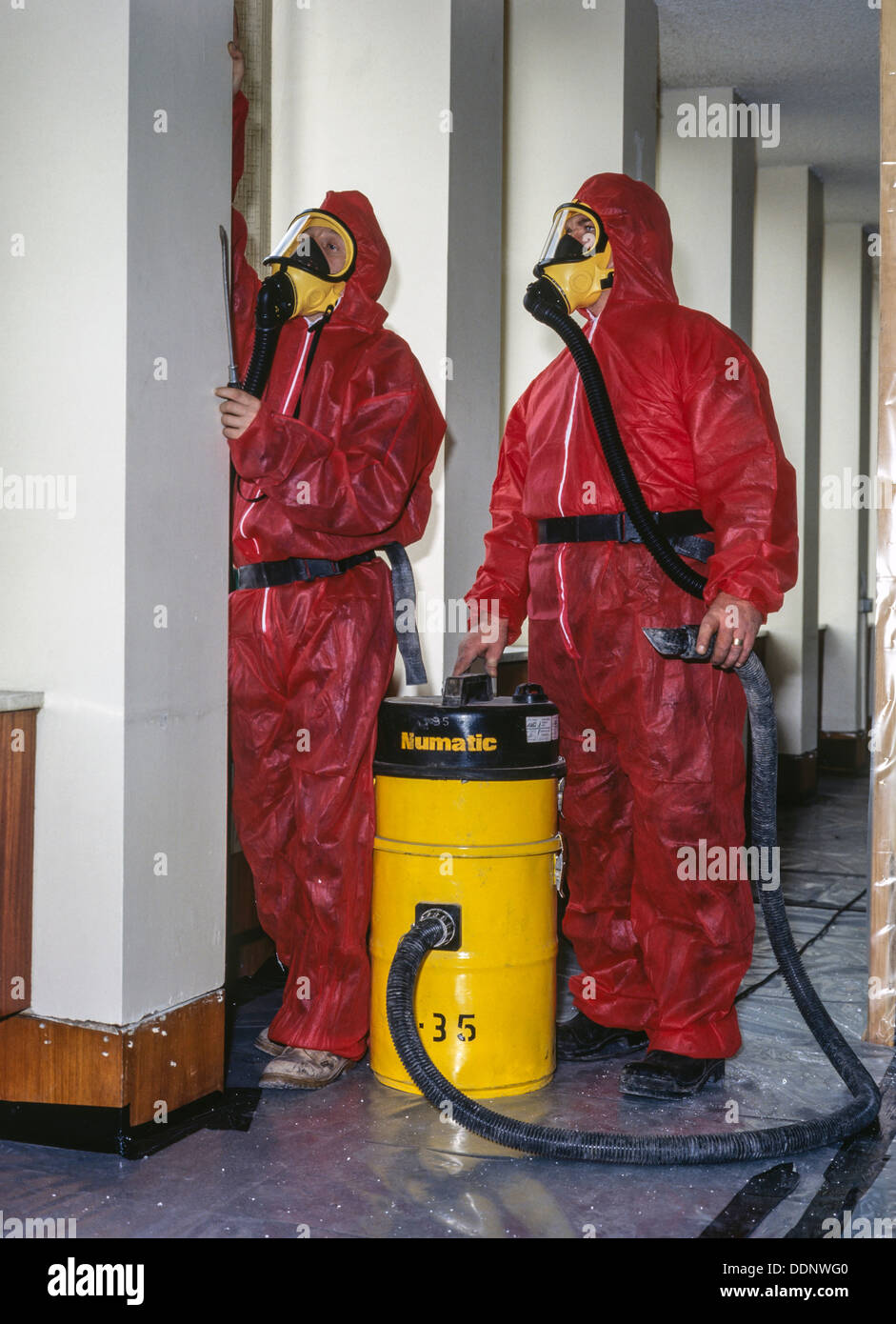
Hazardous Materials Removal Workers
Hazardous Materials Removal Workers safely eliminate hazardous substances from various environments, ensuring public safety and environmental protection.
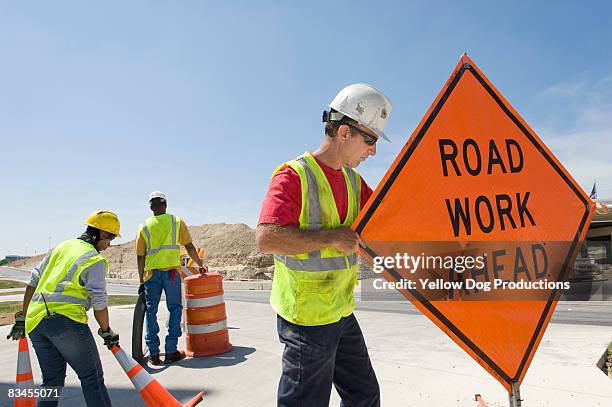
Highway Maintenance Workers
Highway Maintenance Workers are responsible for the upkeep and repair of highways, roads, and bridges to ensure safe and efficient transportation.
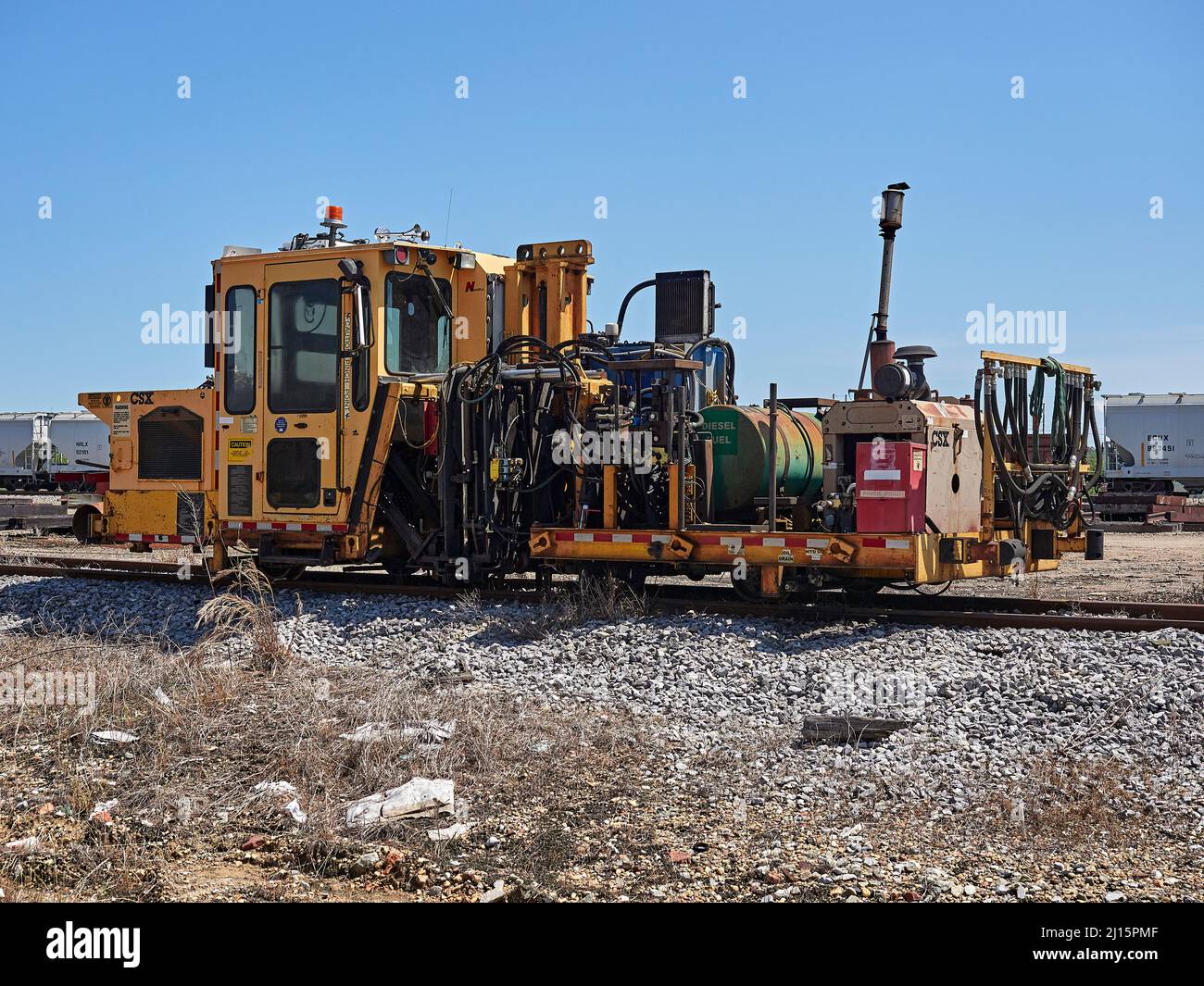
Rail-Track Laying and Maintenance Equipment Operators
Rail-Track Laying and Maintenance Equipment Operators are responsible for operating machinery that installs, maintains, and repairs railroad tracks and related infrastructure.

Septic Tank Servicers and Sewer Pipe Cleaners
Septic Tank Servicers and Sewer Pipe Cleaners are responsible for the maintenance, cleaning, and repair of septic systems and sewer lines, ensuring proper wastewater management.

Miscellaneous Construction and Related Workers
Miscellaneous Construction and Related Workers perform a variety of tasks that support the building, maintenance, and repair of structures.

Derrick Operators, Oil and Gas
Derrick operators are responsible for managing the drilling rig and ensuring the safe and efficient operation of drilling equipment in the oil and gas industry.

Rotary Drill Operators, Oil and Gas
Rotary drill operators in the oil and gas industry operate drilling equipment to extract natural resources from underground reservoirs.

Service Unit Operators, Oil and Gas
Service Unit Operators in the oil and gas industry are responsible for managing equipment operations critical to the extraction and production of oil and gas resources.

Excavating and Loading Machine and Dragline Operators, Surface Mining
Excavating and Loading Machine and Dragline Operators in surface mining are responsible for operating heavy machinery to extract and load raw materials from the earth.
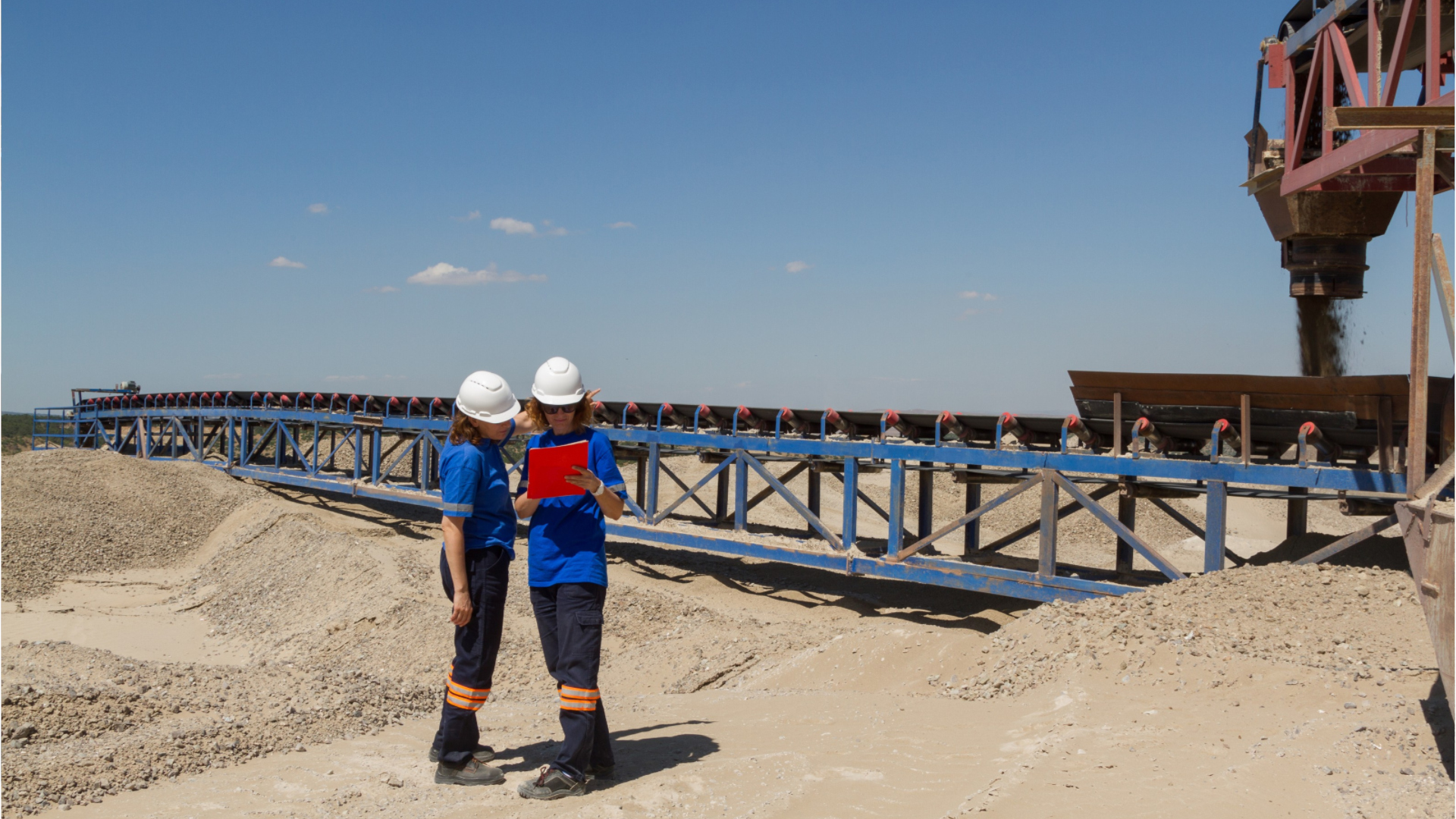
Earth Drillers, Except Oil and Gas
Earth drillers, except oil and gas, operate drilling machines to create holes in the earth surface for various purposes, including construction, mining, and geological exploration.

Explosives Workers, Ordnance Handling Experts, and Blasters
Explosives Workers, Ordnance Handling Experts, and Blasters are specialized professionals responsible for the safe handling, transportation, and use of explosives and ordnance in various industries.

Continuous Mining Machine Operators
Continuous Mining Machine Operators are responsible for operating machinery used in underground mining to extract coal or other minerals continuously.

Roof Bolters, Mining
Roof bolters in mining are responsible for securing roof support in underground mines to ensure safety and stability.

Loading and Moving Machine Operators, Underground Mining
Loading and Moving Machine Operators in underground mining are responsible for operating machinery that loads and moves materials like coal, ores, or other geological materials from underground locations.
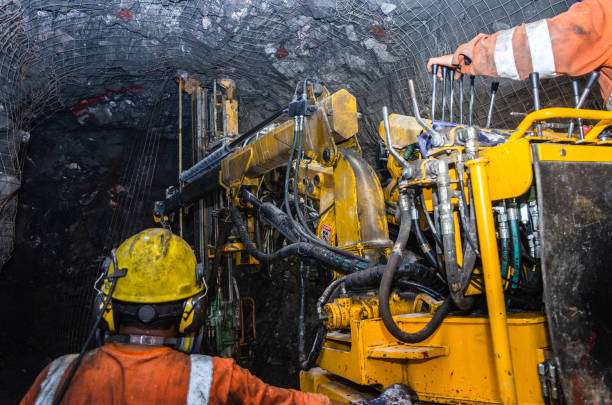
Underground Mining Machine Operators, All Other
Underground Mining Machine Operators oversee the operation of machinery used for tunneling and extracting minerals from below the earth's surface.
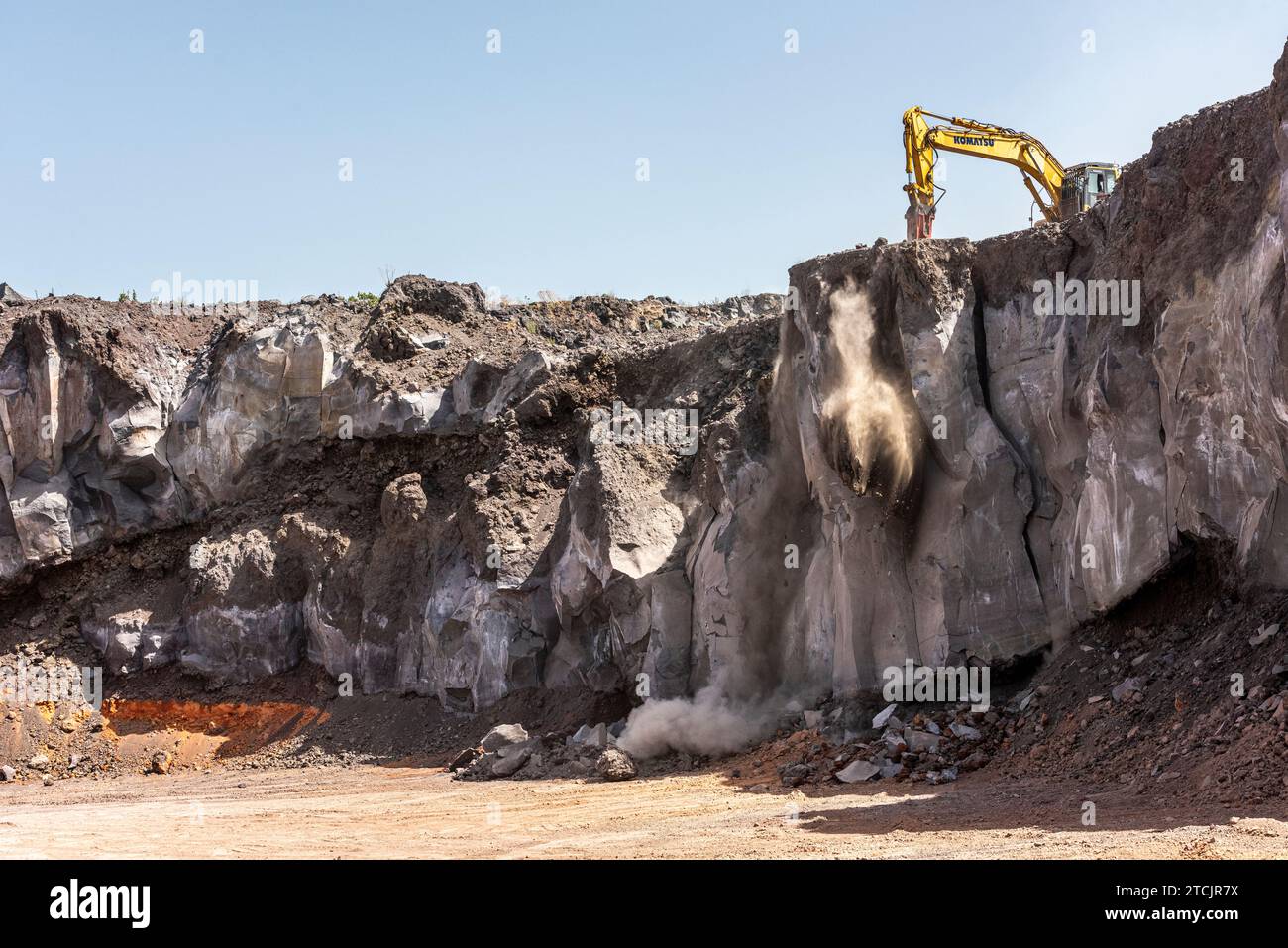
Rock Splitters, Quarry
Rock splitters, quarry are skilled laborers who use various tools and techniques to break down large rocks into smaller, manageable pieces for construction and other purposes.

Roustabouts, Oil and Gas
Roustabouts are entry-level workers in the oil and gas industry responsible for performing various manual tasks on drilling rigs, production platforms, and other locations related to oil and gas extraction.

Helpers--Extraction Workers
Helpers--Extraction Workers assist extraction workers in mining, drilling, and other extraction operations, performing various tasks to ensure smooth workflow and safety.

Extraction Workers, All Other
Extraction workers, all other, are involved in the process of retrieving materials such as minerals, coal, oil, and gas from the earth.

First-Line Supervisors of Mechanics, Installers, and Repairers
First-Line Supervisors of Mechanics, Installers, and Repairers oversee and coordinate the work activities of mechanics and technicians, ensuring that maintenance and repair tasks are completed effectively and efficiently.
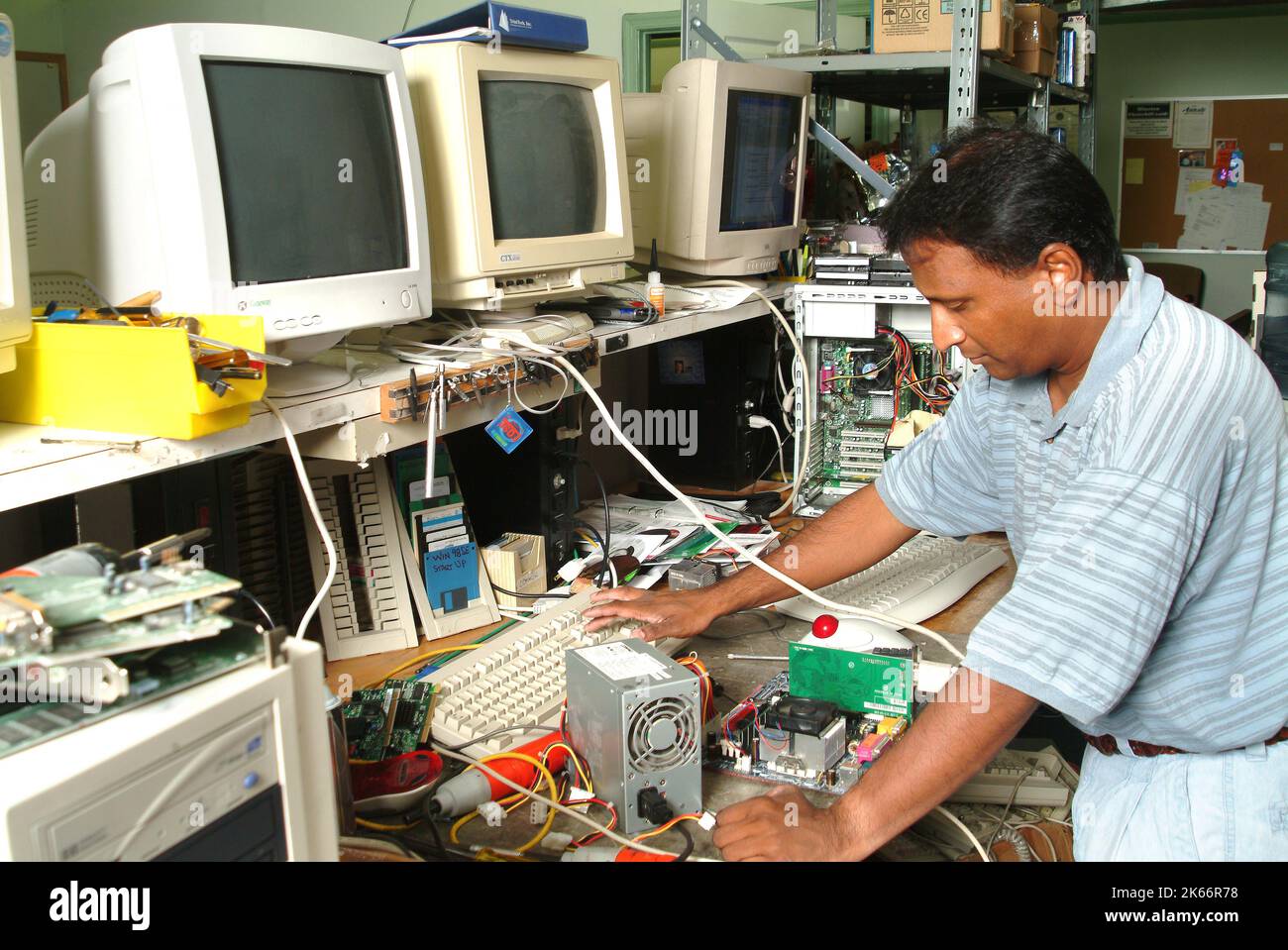
Computer, Automated Teller, and Office Machine Repairers
Computer, Automated Teller, and Office Machine Repairers maintain and repair various types of computing and office equipment, ensuring they run smoothly and efficiently.

Radio, Cellular, and Tower Equipment Installers and Repairers
Radio, Cellular, and Tower Equipment Installers and Repairers are responsible for installing and maintaining communication equipment on towers and other structures.
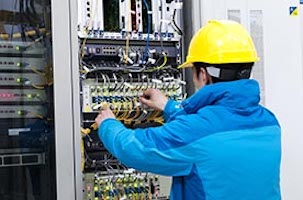
Telecommunications Equipment Installers and Repairers, Except Line Installers
Telecommunications Equipment Installers and Repairers, Except Line Installers are responsible for installing, repairing, and maintaining telecommunications equipment and systems.

Avionics Technicians
Avionics Technicians are specialized professionals who install, maintain, and repair electronic systems in aircraft.

Electric Motor, Power Tool, and Related Repairers
Electric Motor, Power Tool, and Related Repairers specialize in repairing and maintaining electric motors and power tools used in various industries.

Electrical and Electronics Installers and Repairers, Transportation Equipment
Electrical and Electronics Installers and Repairers for transportation equipment specialize in installing, maintaining, and repairing electrical systems within various types of vehicles and transportation equipment.

Electrical and Electronics Repairers, Commercial and Industrial Equipment
Electrical and Electronics Repairers in Commercial and Industrial Equipment are responsible for maintaining and repairing complex machinery and electrical systems used in various industries.

Electrical and Electronics Repairers, Powerhouse, Substation, and Relay
Electrical and Electronics Repairers specializing in powerhouse, substation, and relay systems maintain and repair electrical equipment used in power generation and distribution.
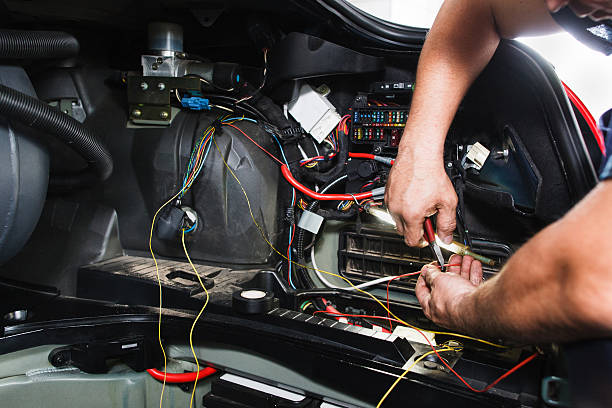
Electronic Equipment Installers and Repairers, Motor Vehicles
Electronic Equipment Installers and Repairers, Motor Vehicles specialize in installing and repairing electronic systems and components in vehicles.

Audiovisual Equipment Installers and Repairers
Audiovisual Equipment Installers and Repairers set up and maintain audio and visual technology systems used in various environments, ensuring optimal performance for events and installations.

Security and Fire Alarm Systems Installers
Security and Fire Alarm Systems Installers are responsible for designing, installing, and maintaining security and fire alarm systems to ensure the safety and security of buildings and property.
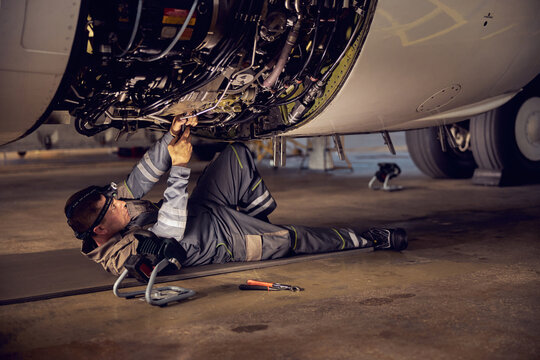
Aircraft Mechanics and Service Technicians
Aircraft Mechanics and Service Technicians are responsible for inspecting, repairing, and maintaining aircraft to ensure they are safe and compliant with aviation regulations.

Automotive Body and Related Repairers
Automotive Body and Related Repairers specialize in repairing and refinishing vehicle bodies, making them safe and aesthetically pleasing after damage from accidents or wear and tear.

Automotive Glass Installers and Repairers
Automotive Glass Installers and Repairers specialize in replacing and repairing vehicle glass, ensuring safety and structural integrity of vehicles.

Automotive Service Technicians and Mechanics
Automotive Service Technicians and Mechanics specialize in diagnosing, repairing, and maintaining vehicles to ensure they operate safely and efficiently.

Bus and Truck Mechanics and Diesel Engine Specialists
Bus and Truck Mechanics and Diesel Engine Specialists repair and maintain diesel engines and related systems in buses and trucks.
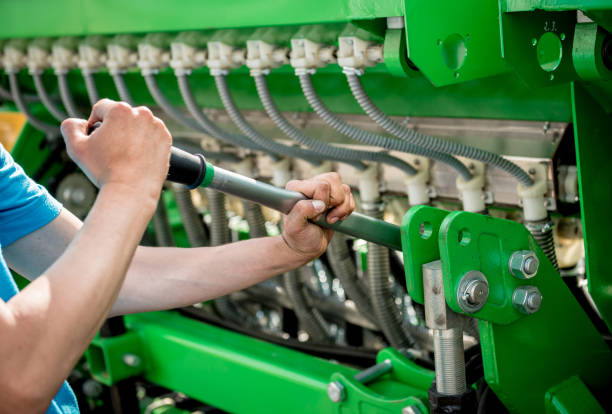
Farm Equipment Mechanics and Service Technicians
Farm Equipment Mechanics and Service Technicians specialize in repairing and maintaining agricultural machinery and equipment.

Mobile Heavy Equipment Mechanics, Except Engines
Mobile Heavy Equipment Mechanics, Except Engines are skilled technicians who repair and maintain heavy machinery used in construction, mining, and other industries, focusing specifically on the equipment's mechanical systems excluding engines.

Rail Car Repairers
Rail Car Repairers are skilled technicians responsible for inspecting, maintaining, and repairing railroad vehicles to ensure safe and efficient operations.

Motorboat Mechanics and Service Technicians
Motorboat Mechanics and Service Technicians are skilled tradespeople who maintain, repair, and service motorboats to ensure optimal performance and safety.
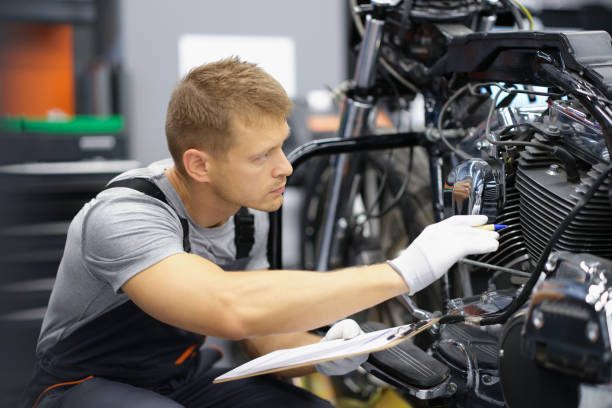
Motorcycle Mechanics
Motorcycle mechanics specialize in diagnosing, repairing, and maintaining motorcycles and other two-wheeled vehicles.

Outdoor Power Equipment and Other Small Engine Mechanics
Outdoor Power Equipment and Other Small Engine Mechanics specialize in the repair, maintenance, and servicing of smaller engines found in equipment such as lawn mowers, chainsaws, and snow throwers.

Bicycle Repairers
Bicycle repairers, also known as bike mechanics, specialize in the maintenance, repair, and assembly of bicycles to ensure they operate efficiently and safely.

Recreational Vehicle Service Technicians
Recreational Vehicle Service Technicians inspect, repair, and maintain various types of recreational vehicles, ensuring they are safe and functional for their owners.
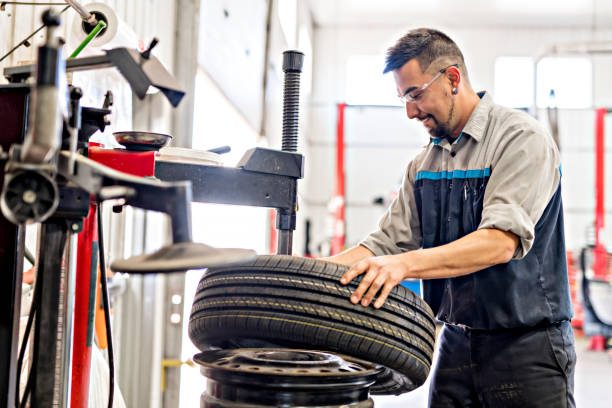
Tire Repairers and Changers
Tire Repairers and Changers are skilled technicians responsible for repairing, replacing, and maintaining tires on vehicles to ensure safe and efficient operation.

Mechanical Door Repairers
Mechanical Door Repairers specialize in the maintenance and repair of mechanical door systems, ensuring they function correctly and safely.

Control and Valve Installers and Repairers, Except Mechanical Door
Control and Valve Installers and Repairers are responsible for installing, maintaining, and repairing control valves and related equipment in various industries.

Heating, Air Conditioning, and Refrigeration Mechanics and Installers
Heating, Air Conditioning, and Refrigeration Mechanics and Installers specialize in the installation, maintenance, and repair of heating, air conditioning, and refrigeration systems.
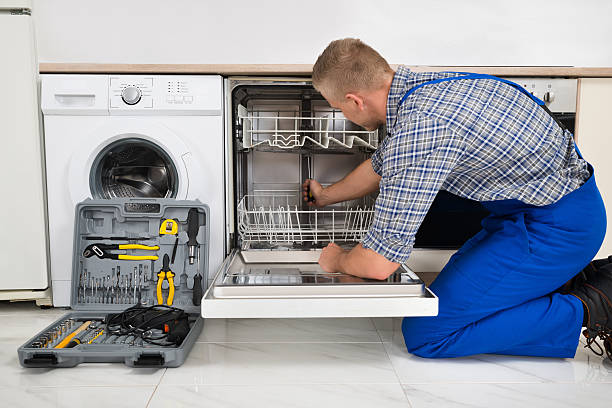
Home Appliance Repairers
Home Appliance Repairers diagnose and fix malfunctions in household appliances, ensuring that they operate efficiently and safely.
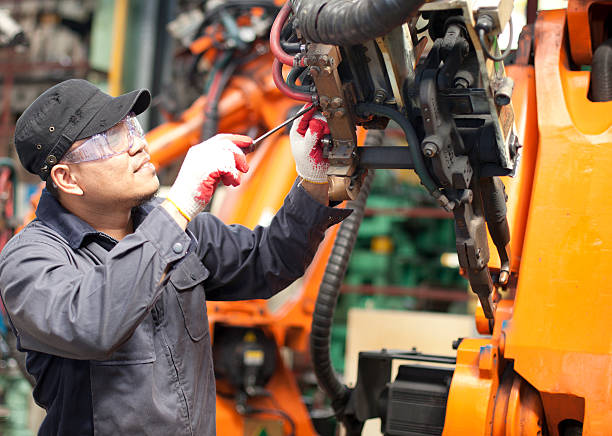
Industrial Machinery Mechanics
Industrial Machinery Mechanics maintain and repair factory equipment and other industrial machinery, ensuring operational efficiency and safety.

Maintenance Workers, Machinery
Maintenance workers for machinery ensure that industrial and mechanical equipment operates efficiently through regular inspections, repairs, and preventive maintenance.
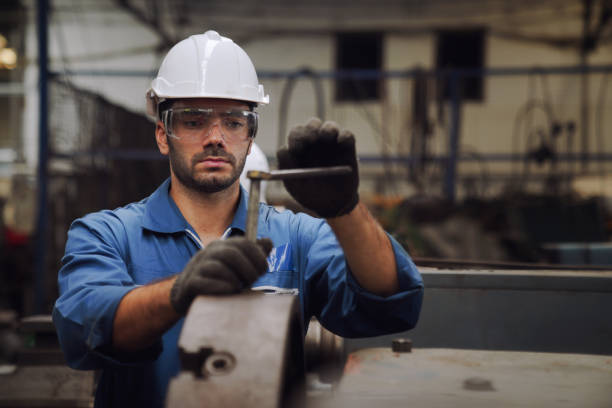
Millwrights
Millwrights install, maintain, and repair industrial machinery and equipment.
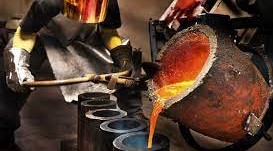
Refractory Materials Repairers, Except Brickmasons
Refractory Materials Repairers, Except Brickmasons specialize in constructing and repairing heat-resistant materials used in industrial settings.
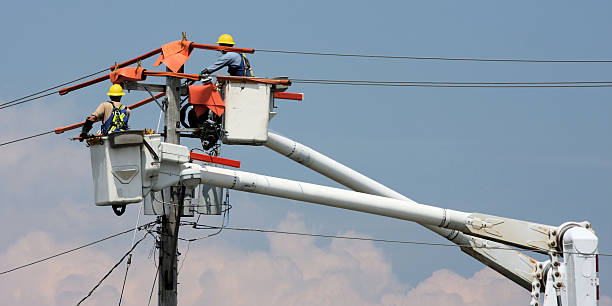
Electrical Power-Line Installers and Repairers
Electrical power-line installers and repairers are responsible for the installation, maintenance, and repair of electrical power transmission and distribution lines.

Telecommunications Line Installers and Repairers
Telecommunications Line Installers and Repairers are responsible for installing, maintaining, and repairing communication lines and equipment to ensure reliable transmission of data and signals for various telecommunication services.

Camera and Photographic Equipment Repairers
Camera and Photographic Equipment Repairers specialize in repairing and maintaining cameras and other photographic equipment to ensure optimal performance for photographers and filmmakers.

Medical Equipment Repairers
Medical Equipment Repairers ensure that medical devices and equipment are properly maintained and repaired to guarantee optimal functionality in healthcare settings.

Musical Instrument Repairers and Tuners
Musical Instrument Repairers and Tuners specialize in fixing, maintaining, and tuning a variety of musical instruments to ensure optimal sound quality and performance.

Watch and Clock Repairers
Watch and clock repairers are skilled professionals who specialize in maintaining and repairing timekeeping devices, ensuring their accuracy and functionality.
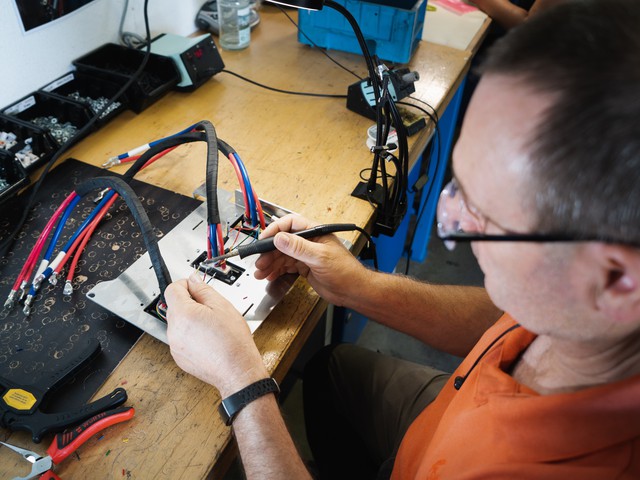
Precision Instrument and Equipment Repairers, All Other
Precision Instrument and Equipment Repairers, All Other specialize in repairing and maintaining a variety of intricate instruments and equipment used in various industries.

Maintenance and Repair Workers, General
Maintenance and repair workers are responsible for the upkeep and repair of buildings, equipment, and machinery to ensure they function effectively.

Wind Turbine Service Technicians
Wind Turbine Service Technicians are responsible for the installation, maintenance, and repair of wind turbines to ensure they operate efficiently and safely.

Coin, Vending, and Amusement Machine Servicers and Repairers
Coin, Vending, and Amusement Machine Servicers and Repairers are responsible for maintaining and repairing machines that accept coins and operate in various environments such as arcades, vending locations, and entertainment venues.

Commercial Divers
Commercial divers are skilled professionals who perform underwater tasks for various industries, including construction, inspection, maintenance, and repair.

Locksmiths and Safe Repairers
Locksmiths and Safe Repairers specialize in creating, installing, and repairing locks and security systems for residential, commercial, and industrial clients.

Manufactured Building and Mobile Home Installers
Manufactured Building and Mobile Home Installers are responsible for the placement, installation, and setup of mobile homes and prefabricated structures, ensuring they are secure and compliant with local building standards.

Riggers
Riggers are professionals responsible for the setup and maintenance of rigging equipment used in construction and entertainment industries to lift and move heavy loads safely and efficiently.
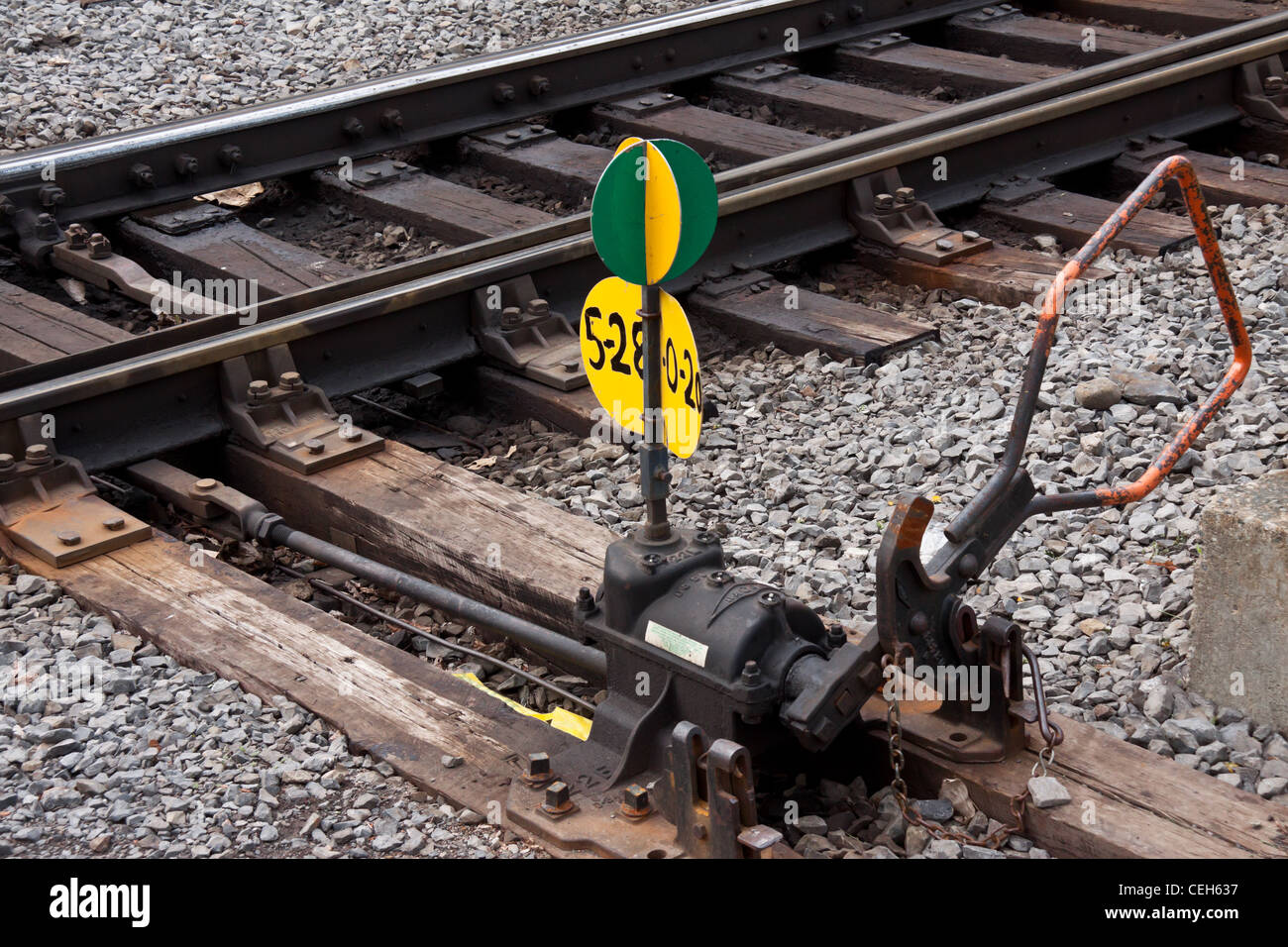
Signal and Track Switch Repairers
Signal and track switch repairers are specialized technicians responsible for maintaining and repairing the signaling and switching equipment used in railway systems.

Helpers--Installation, Maintenance, and Repair Workers
Helpers--Installation, Maintenance, and Repair Workers assist skilled tradespeople in performing various tasks related to installation, maintenance, and repair of systems and equipment.

Installation, Maintenance, and Repair Workers, All Other
Installation, Maintenance, and Repair Workers, All Other perform a variety of tasks related to fixing and maintaining equipment and systems not classified elsewhere.
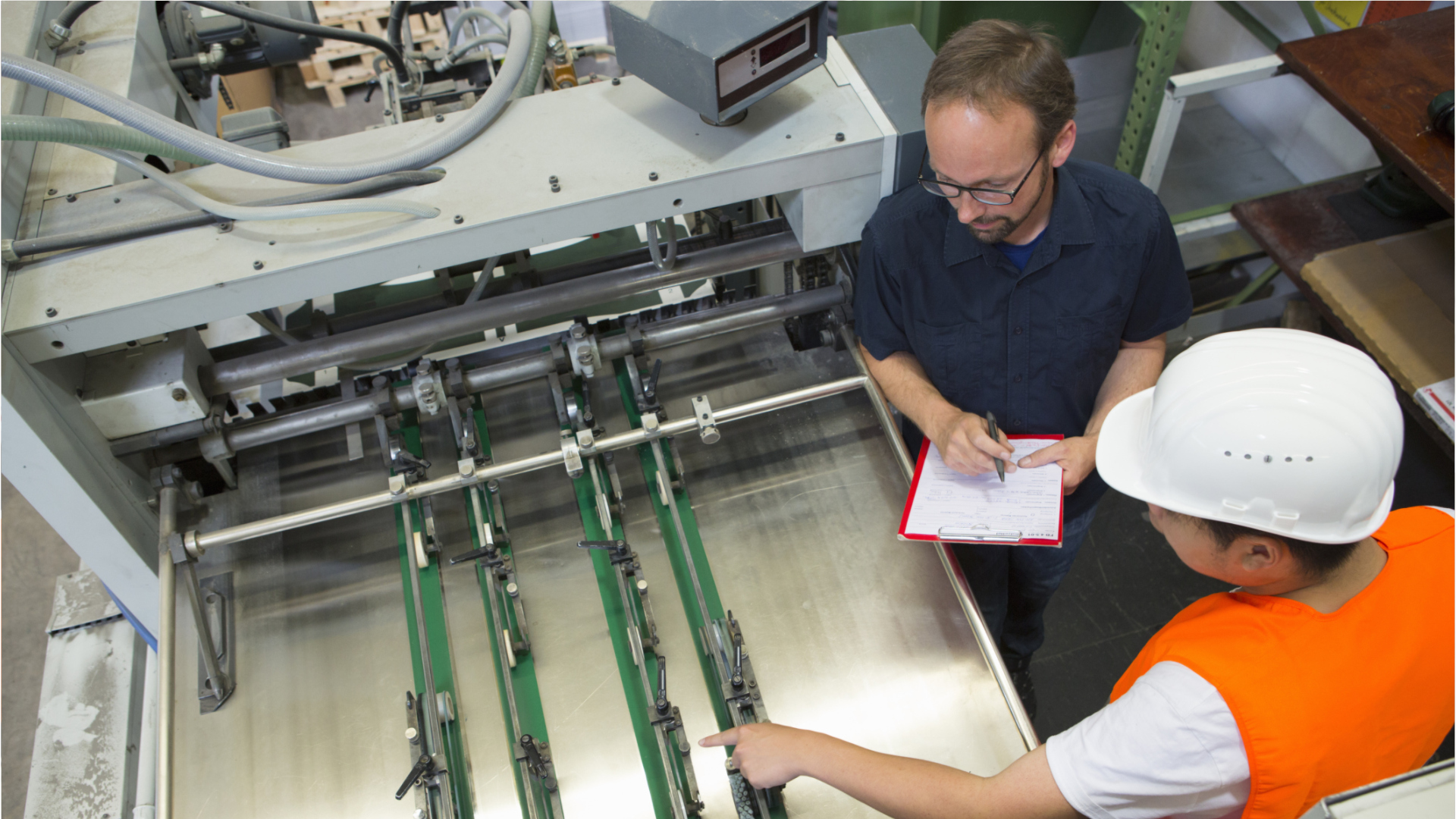
First-Line Supervisors of Production and Operating Workers
First-Line Supervisors of Production and Operating Workers oversee the daily activities of production and operating workers, ensuring that work is done efficiently and safely.

Aircraft Structure, Surfaces, Rigging, and Systems Assemblers
Aircraft Structure, Surfaces, Rigging, and Systems Assemblers build and assemble aircraft components to ensure that they function safely and efficiently.

Coil Winders, Tapers, and Finishers
Coil Winders, Tapers, and Finishers are skilled workers who create electrical coils used in motors, transformers, and other electrical devices by winding wire around a core and finishing the assembly.

Electrical, Electronic, and Electromechanical Assemblers, Except Coil Winders, Tapers, and Finishers
Electrical, Electronic, and Electromechanical Assemblers are responsible for assembling and inspecting electronic components and systems used in various devices and machinery.
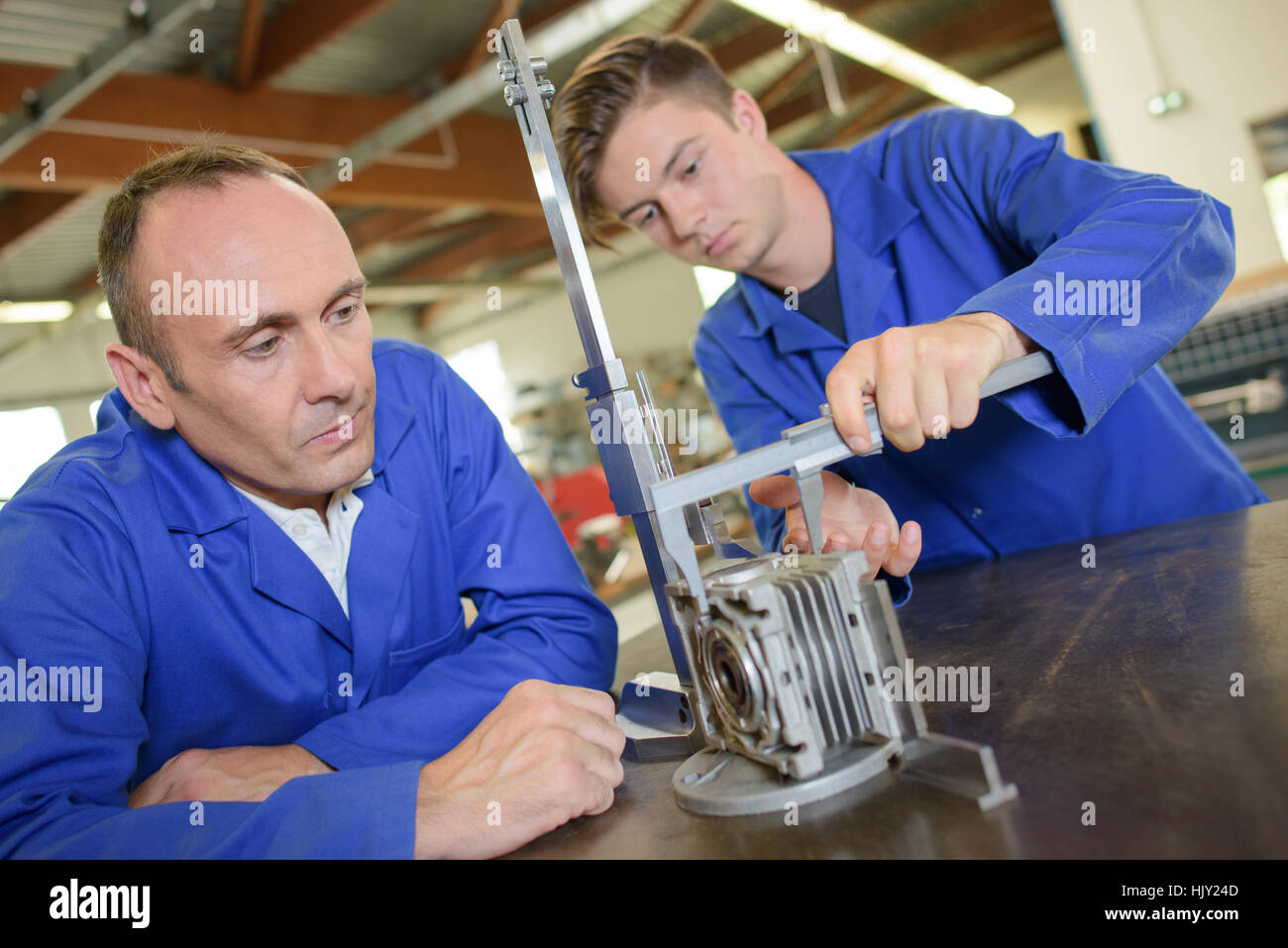
Engine and Other Machine Assemblers
Engine and Other Machine Assemblers are responsible for assembling engines and various types of machinery, ensuring they function efficiently and are properly integrated into larger systems.
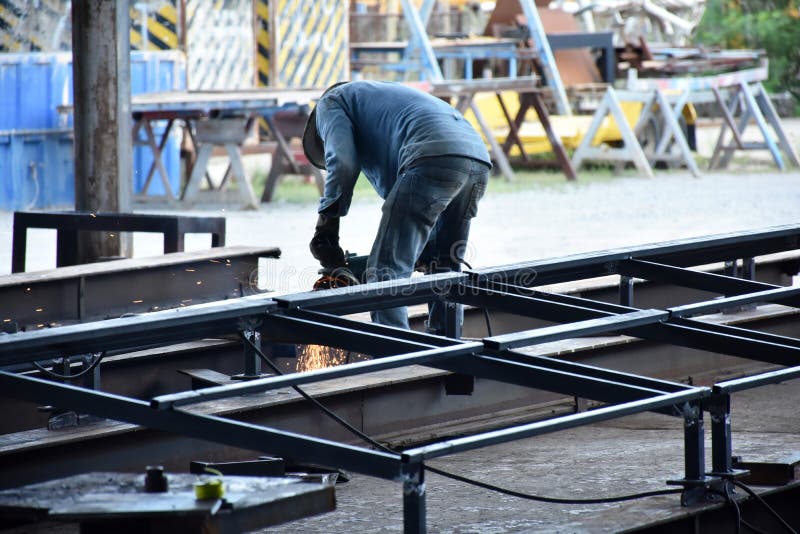
Structural Metal Fabricators and Fitters
Structural metal fabricators and fitters design and assemble metal structures, primarily for buildings and bridges, ensuring their durability and stability.
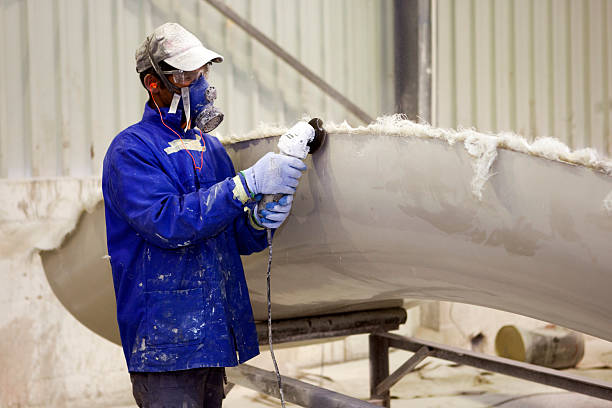
Fiberglass Laminators and Fabricators
Fiberglass Laminators and Fabricators create and assemble fiberglass components used in various industries through layering and shaping materials.

Timing Device Assemblers and Adjusters
Timing Device Assemblers and Adjusters are specialized technicians involved in the assembly, calibration, and repair of timing devices used in various fields, including watchmaking and industrial machinery.

Miscellaneous Assemblers and Fabricators
Miscellaneous Assemblers and Fabricators are responsible for assembling and fabricating a wide range of products and components, often working in manufacturing settings.

Bakers
Bakers create a wide variety of baked goods, including breads, pastries, cakes, and cookies, often working early in the morning to ensure fresh products for customers.

Butchers and Meat Cutters
Butchers and meat cutters prepare and cut various types of meat for sale in retail or wholesale establishments.
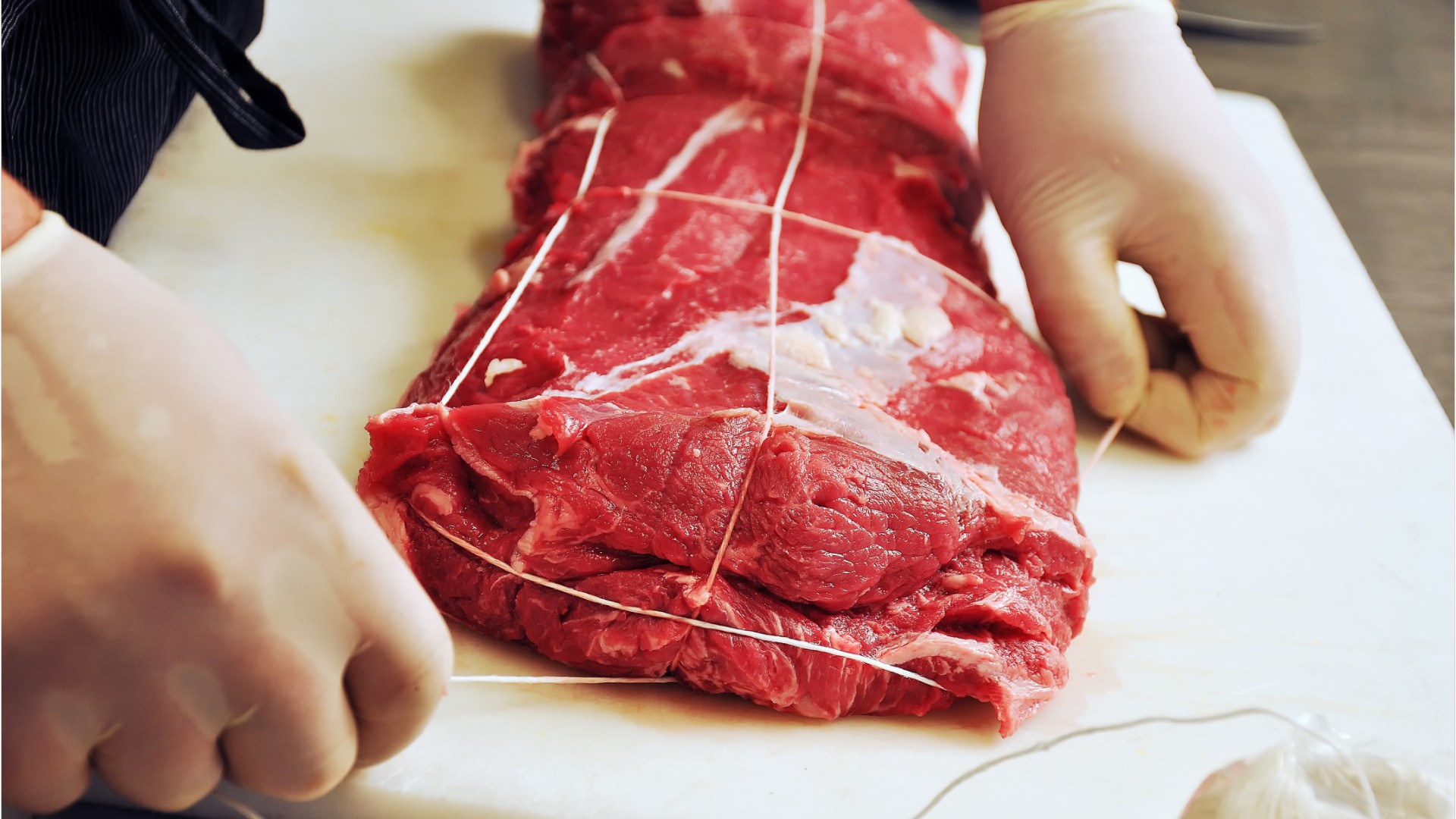
Meat, Poultry, and Fish Cutters and Trimmers
Meat, poultry, and fish cutters and trimmers are responsible for preparing and processing various types of meat and seafood for distribution and sale.
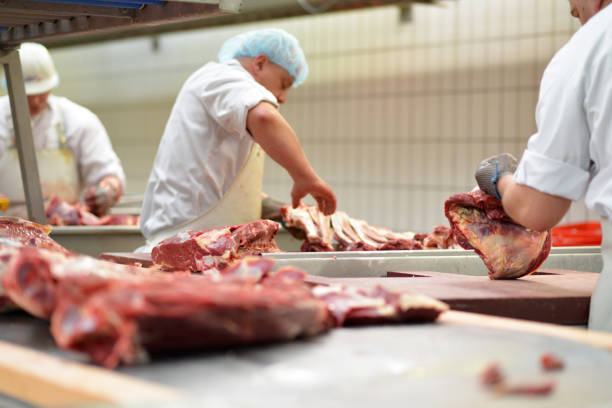
Slaughterers and Meat Packers
Slaughterers and meat packers are responsible for the preparation and processing of livestock into meat products for consumption.
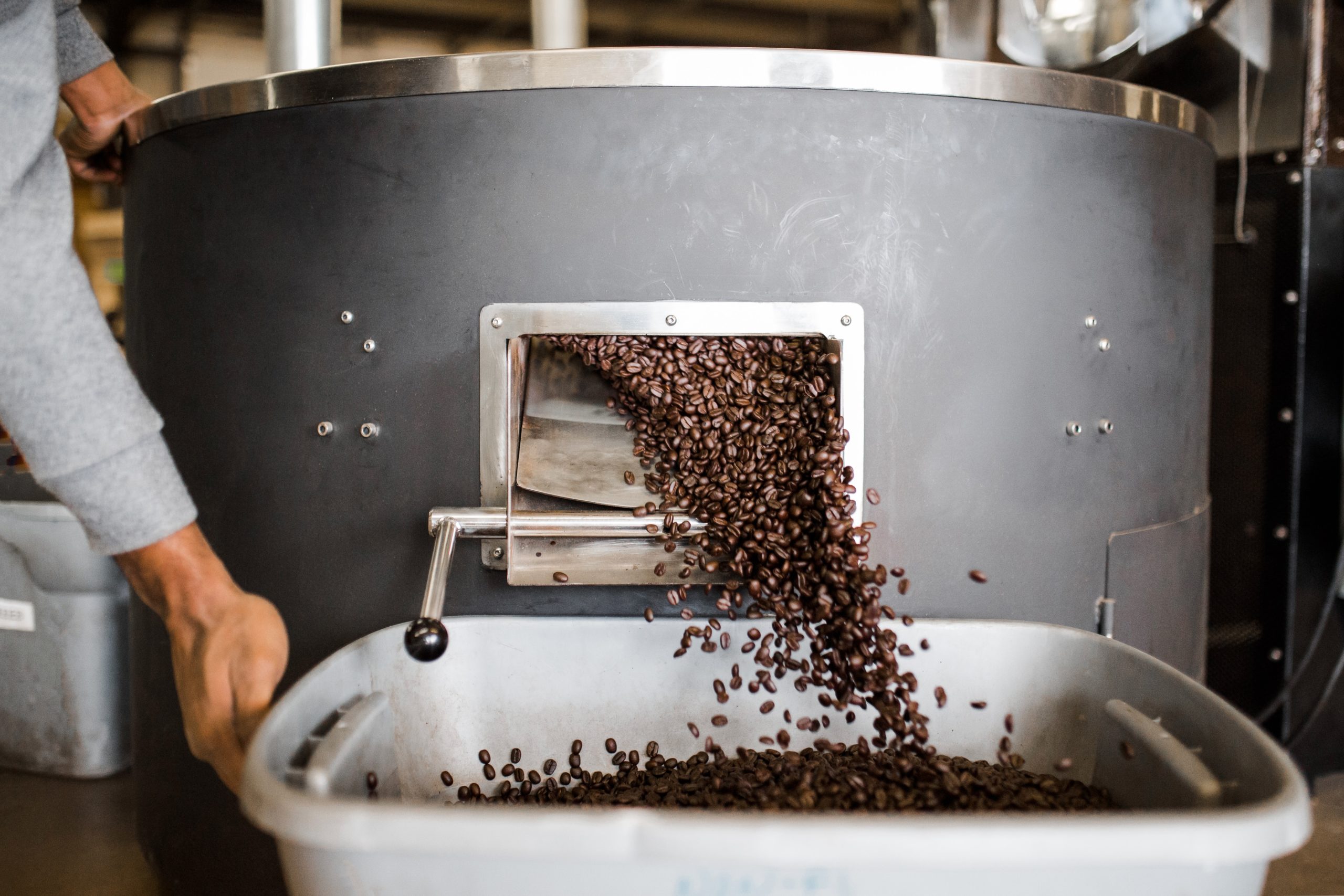
Food and Tobacco Roasting, Baking, and Drying Machine Operators and Tenders
Food and Tobacco Roasting, Baking, and Drying Machine Operators and Tenders operate and tend machines that process food and tobacco by roasting, baking, and drying.

Food Batchmakers
Food batchmakers prepare and mix large quantities of food products according to standardized recipes, ensuring quality and consistency in the final product.
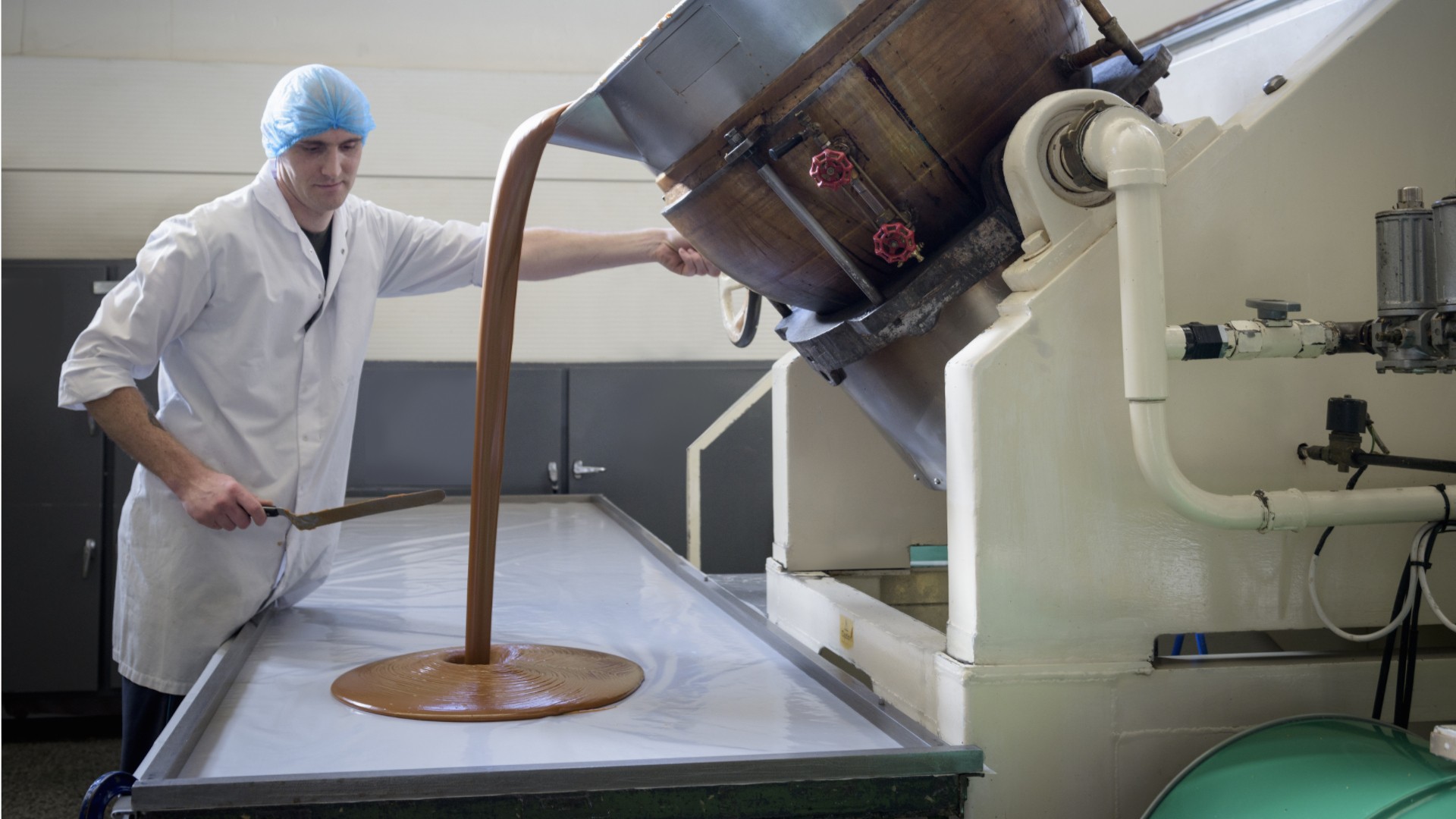
Food Cooking Machine Operators and Tenders
Food cooking machine operators and tenders are responsible for managing and operating machinery that cooks, bakes, or processes food products in industrial settings.

Food Processing Workers, All Other
Food Processing Workers, All Other are responsible for various tasks involved in the preparation and processing of food products in a variety of settings.
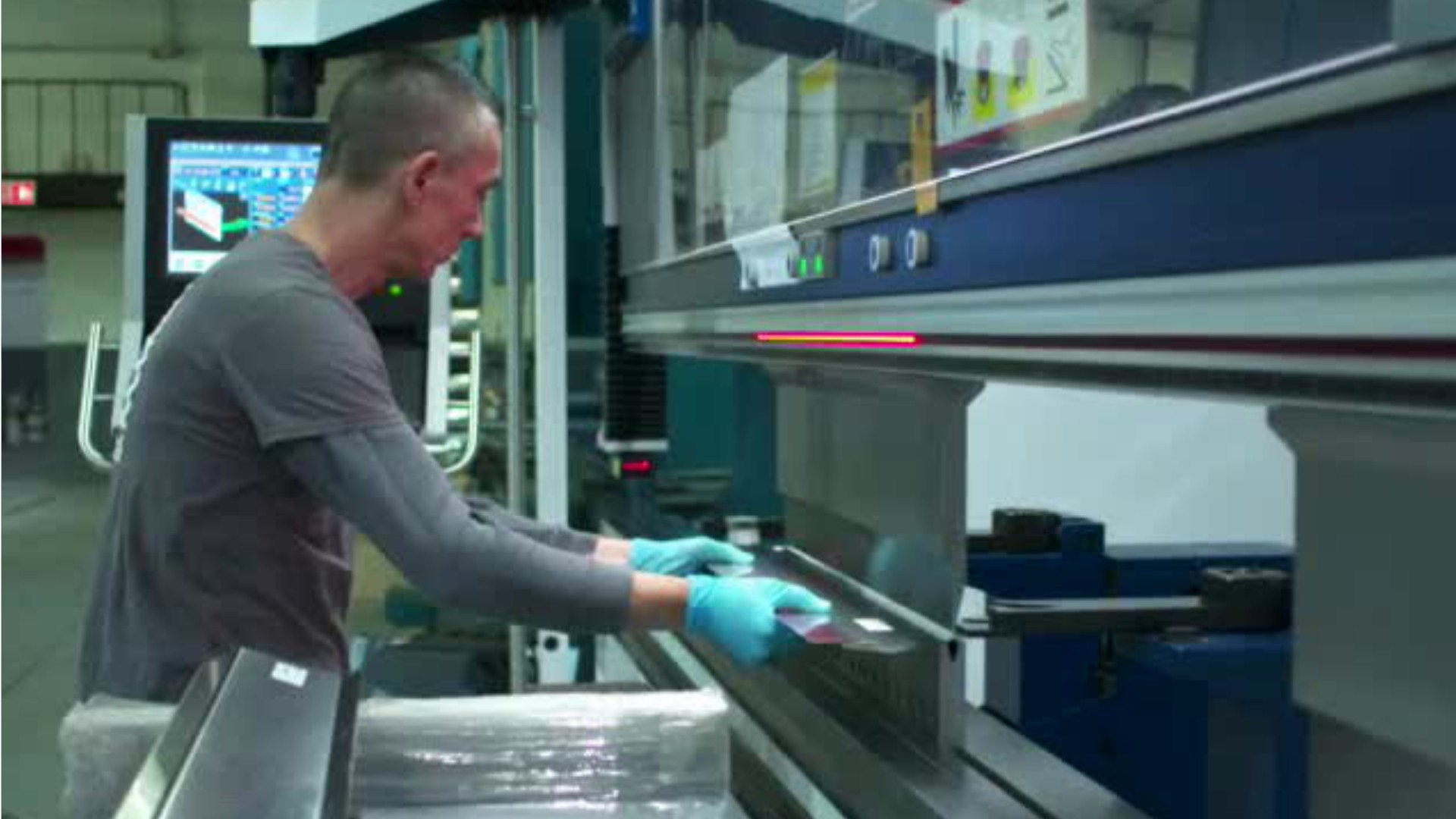
Extruding and Drawing Machine Setters, Operators, and Tenders, Metal and Plastic
Extruding and drawing machine setters, operators, and tenders are skilled professionals who set up and operate machinery that shapes metal and plastic materials into desired forms through processes like extrusion and drawing.

Forging Machine Setters, Operators, and Tenders, Metal and Plastic
Forging Machine Setters, Operators, and Tenders are responsible for setting up, operating, and tending machines that forge metal and plastic components into required shapes and structures.

Rolling Machine Setters, Operators, and Tenders, Metal and Plastic
Rolling Machine Setters, Operators, and Tenders in the metal and plastic industries are responsible for operating machines that shape and form these materials into usable products.

Cutting, Punching, and Press Machine Setters, Operators, and Tenders, Metal and Plastic
Cutting, punching, and press machine setters, operators, and tenders work with machines that cut, shape, and form materials like metal and plastic to create products and parts.

Drilling and Boring Machine Tool Setters, Operators, and Tenders, Metal and Plastic
Drilling and Boring Machine Tool Setters, Operators, and Tenders work with equipment to drill and bore holes in metal and plastic materials, ensuring precision and quality in manufacturing processes.

Grinding, Lapping, Polishing, and Buffing Machine Tool Setters, Operators, and Tenders, Metal and Plastic
Grinding, Lapping, Polishing, and Buffing Machine Tool Setters, Operators, and Tenders work with machines to shape, finish, and enhance the surface of metal and plastic products.

Lathe and Turning Machine Tool Setters, Operators, and Tenders, Metal and Plastic
Lathe and turning machine tool setters, operators, and tenders are responsible for setting up and operating machines that cut, shape, and finish metal and plastic materials.
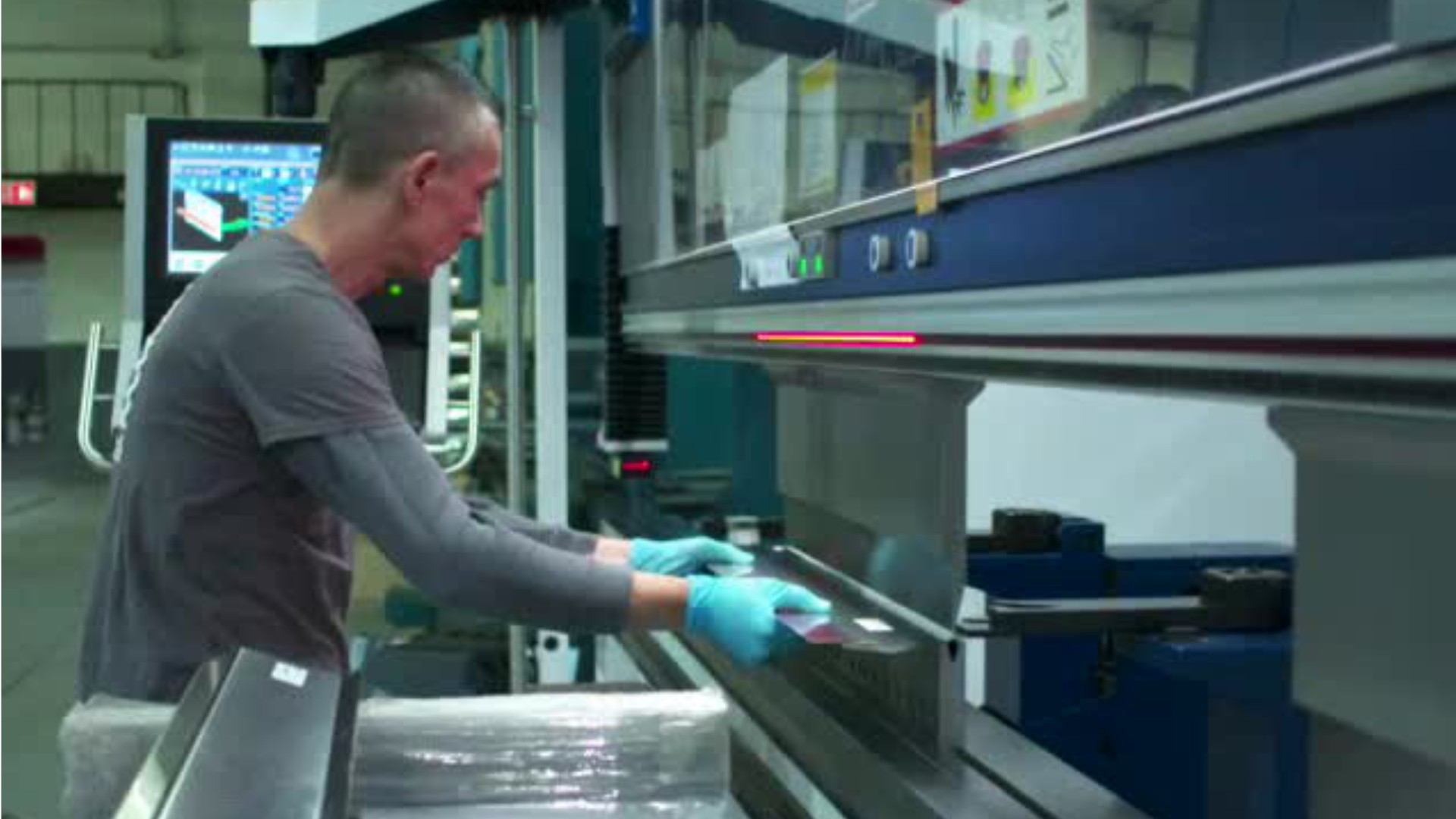
Milling and Planing Machine Setters, Operators, and Tenders, Metal and Plastic
Milling and Planing Machine Setters, Operators, and Tenders work with machine tools to shape metal and plastic materials into precise parts and components.
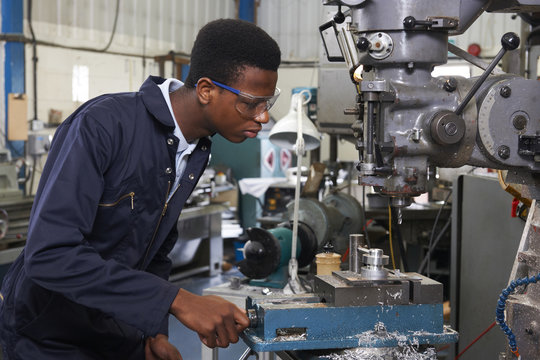
Machinists
Machinists operate and maintain machine tools to produce precision metal parts and components according to specifications.
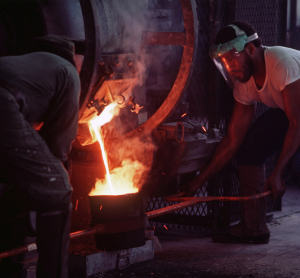
Metal-Refining Furnace Operators and Tenders
Metal-refining furnace operators and tenders oversee the operation of various types of furnaces to extract and purify metals from ores and scrap materials.
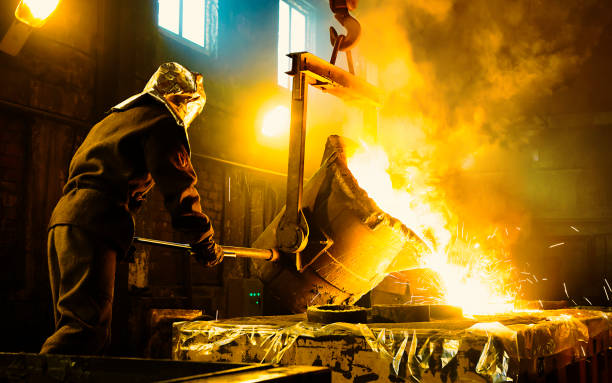
Pourers and Casters, Metal
Pourers and casters in the metal industry are responsible for shaping molten metal into desired forms through various casting processes.

Model Makers, Metal and Plastic
Model Makers, Metal and Plastic create precise models and prototypes for various industries using metal and plastic materials.
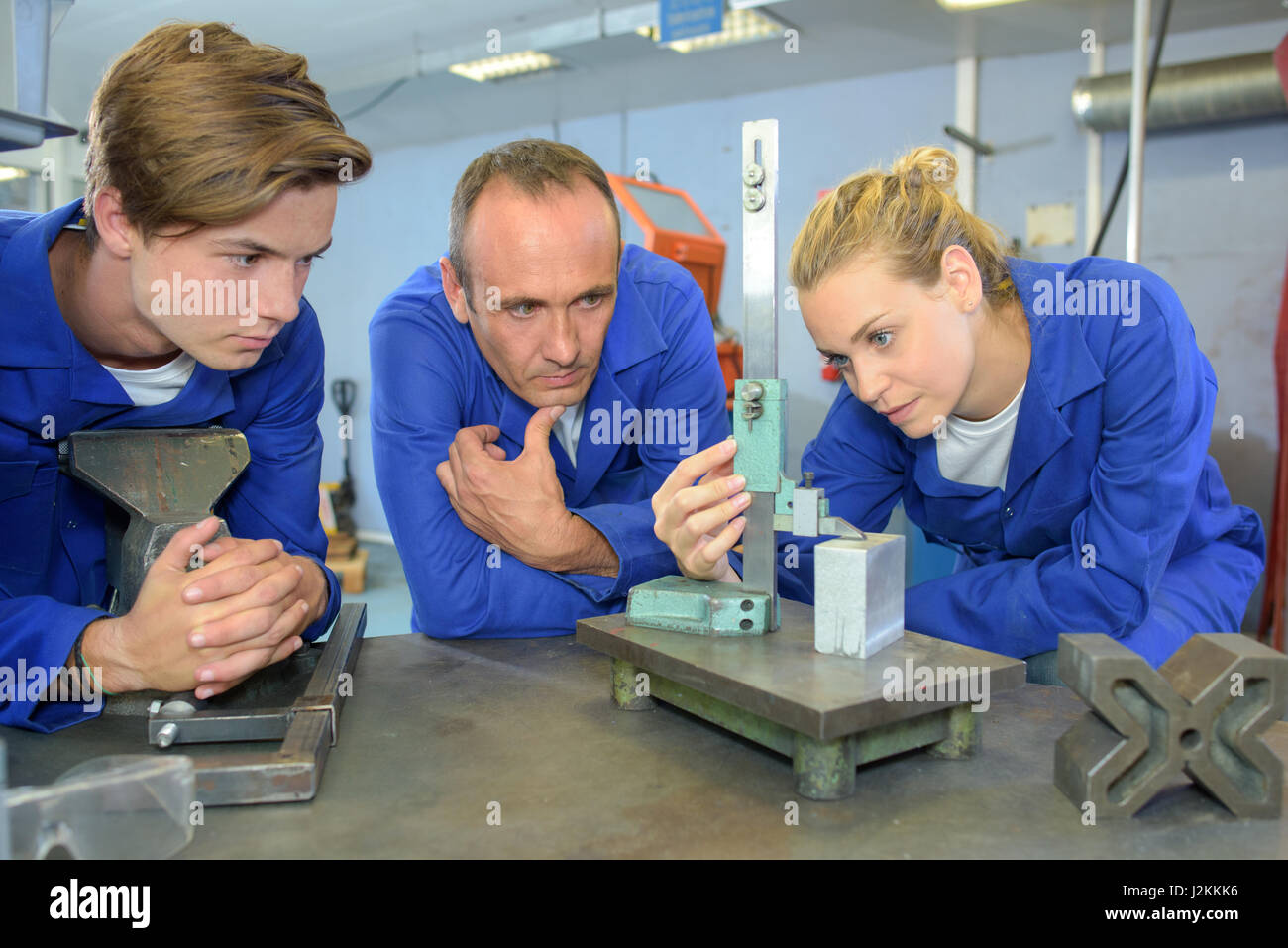
Patternmakers, Metal and Plastic
Patternmakers in metal and plastic create molds used in the manufacturing process, helping shape various products.
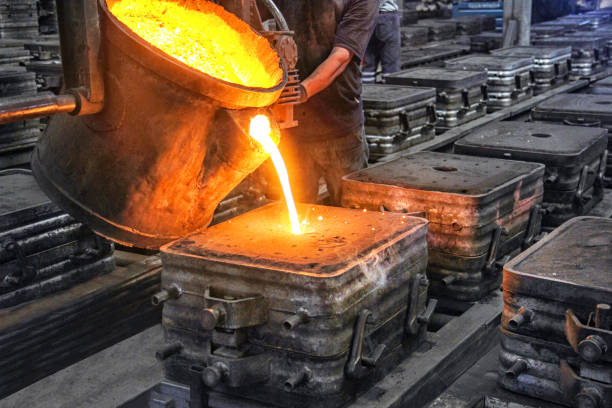
Foundry Mold and Coremakers
Foundry Mold and Coremakers create molds and cores used in metal casting processes to shape and form materials into desired objects.

Molding, Coremaking, and Casting Machine Setters, Operators, and Tenders, Metal and Plastic
Molding, Coremaking, and Casting Machine Setters, Operators, and Tenders are responsible for operating machinery that shapes metal or plastic items through various processes.

Multiple Machine Tool Setters, Operators, and Tenders, Metal and Plastic
Multiple Machine Tool Setters, Operators, and Tenders oversee and operate various types of machinery that cut, shape, and finish metal and plastic materials for manufacturing purposes.

Tool and Die Makers
Tool and Die Makers are skilled craftsmen responsible for designing, creating, and maintaining precision tools, dies, and special guiding and holding devices used in manufacturing processes.
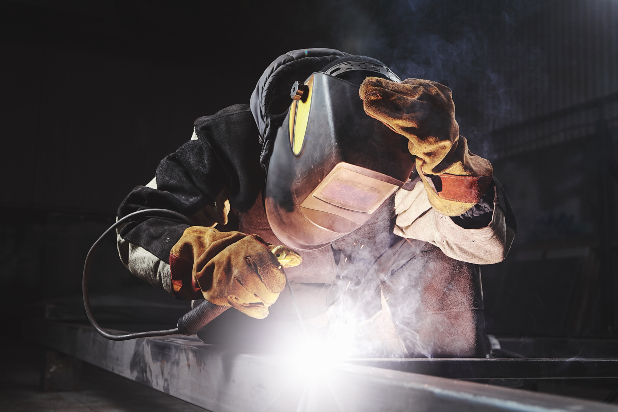
Welders, Cutters, Solderers, and Brazers
Welders, cutters, solderers, and brazers are skilled tradespeople who join metal parts together through various techniques, ensuring structural integrity and functionality in a wide range of constructions and repairs.

Welding, Soldering, and Brazing Machine Setters, Operators, and Tenders
Welding, Soldering, and Brazing Machine Setters, Operators, and Tenders are responsible for setting up and operating machines that join metal parts together through various techniques, ensuring structural integrity in a variety of applications.

Heat Treating Equipment Setters, Operators, and Tenders, Metal and Plastic
Heat Treating Equipment Setters, Operators, and Tenders control and maintain equipment that heats metals and plastics to alter their properties.

Layout Workers, Metal and Plastic
Layout Workers, Metal and Plastic are skilled tradespeople responsible for preparing and laying out materials for metal and plastic fabrication processes.

Plating Machine Setters, Operators, and Tenders, Metal and Plastic
Plating Machine Setters, Operators, and Tenders work with machines that apply metal or plastic coatings to various objects for protection and aesthetic purposes.
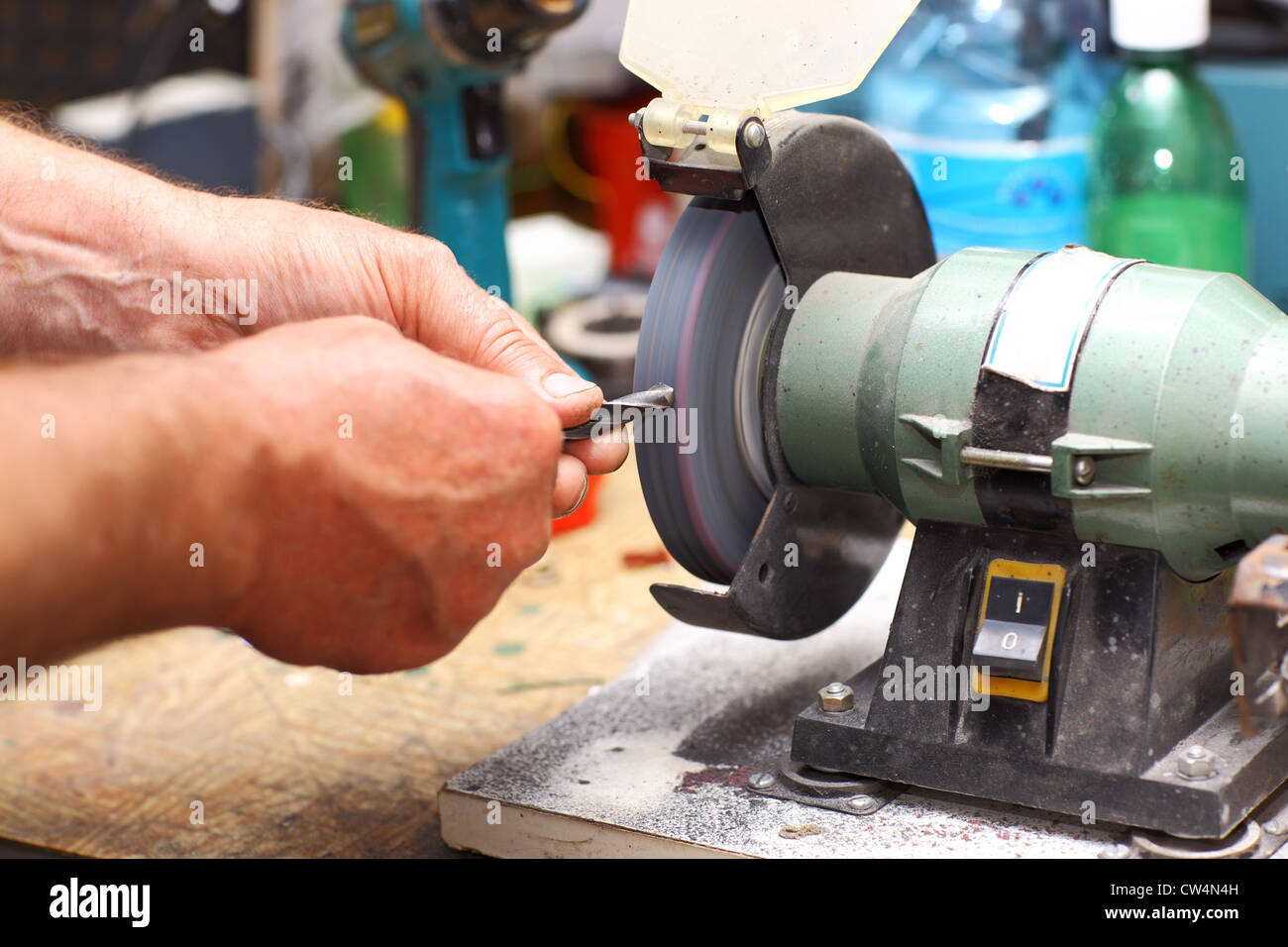
Tool Grinders, Filers, and Sharpeners
Tool Grinders, Filers, and Sharpeners specialize in sharpening tools, such as knives, chisels, and other cutting instruments, using various methods and equipment.

Metal Workers and Plastic Workers, All Other
Metal and plastic workers create and manipulate materials to fabricate a variety of products used in numerous industries.

Prepress Technicians and Workers
Prepress technicians and workers prepare and format digital files for printing, ensuring that the final product meets quality standards.
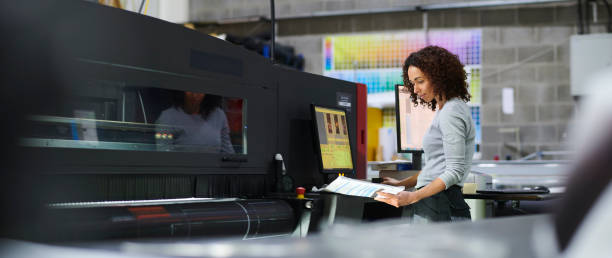
Printing Press Operators
Printing Press Operators are skilled tradespeople responsible for setting up, operating, and maintaining various types of printing presses to produce printed materials.

Print Binding and Finishing Workers
Print Binding and Finishing Workers are responsible for assembling and finishing printed materials to ensure they meet quality standards and specifications.

Laundry and Dry-Cleaning Workers
Laundry and dry-cleaning workers are responsible for cleaning clothes and other textile goods using various techniques and equipment.

Pressers, Textile, Garment, and Related Materials
Pressers in the textile and garment industry are responsible for finishing garments and other textile products by applying heat and pressure to remove wrinkles and set fabric shapes.

Sewing Machine Operators
Sewing machine operators are skilled workers who use sewing machines to stitch fabric and other materials to create clothing, upholstery, and various textile products.

Shoe and Leather Workers and Repairers
Shoe and Leather Workers and Repairers specialize in crafting, repairing, and restoring leather goods, particularly shoes, ensuring that these items are functional, comfortable, and aesthetically pleasing.

Shoe Machine Operators and Tenders
Shoe machine operators and tenders set up, operate, and maintain machines that manufacture shoes and other footwear.

Sewers, Hand
Hand sewers stitch fabric and other materials together using a needle and thread, often creating tailored garments and other textile products.

Tailors, Dressmakers, and Custom Sewers
Tailors, dressmakers, and custom sewers create, alter, and repair garments and other textile products tailored to individual client specifications.

Textile Bleaching and Dyeing Machine Operators and Tenders
Textile Bleaching and Dyeing Machine Operators and Tenders oversee the dyeing and bleaching processes in textile manufacturing, ensuring that fabrics are treated to achieve desired colors and finishes.
.jpg)
Textile Cutting Machine Setters, Operators, and Tenders
Textile Cutting Machine Setters, Operators, and Tenders specialize in operating machines that cut fabric and other materials used in textile production.

Textile Knitting and Weaving Machine Setters, Operators, and Tenders
Textile Knitting and Weaving Machine Setters, Operators, and Tenders are responsible for operating and maintaining machines that create fabric from yarn and other materials.

Textile Winding, Twisting, and Drawing Out Machine Setters, Operators, and Tenders
Textile winding, twisting, and drawing out machine setters, operators, and tenders manage the machinery that processes fibers and yarns in the textile manufacturing industry.

Extruding and Forming Machine Setters, Operators, and Tenders, Synthetic and Glass Fibers
Extruding and Forming Machine Setters, Operators, and Tenders oversee the operation and monitoring of machines that shape materials such as synthetic and glass fibers into specific forms.

Fabric and Apparel Patternmakers
Fabric and Apparel Patternmakers create templates used to cut and sew fabric pieces for clothing and other textile products.

Upholsterers
Upholsterers are skilled craftsmen who create, repair, or modify furniture, ensuring it is comfortable and aesthetically pleasing.

Textile, Apparel, and Furnishings Workers, All Other
Textile, Apparel, and Furnishings Workers, All Other are involved in various tasks related to the production and maintenance of textiles and furnishings that do not fit into traditional job categories.

Cabinetmakers and Bench Carpenters
Cabinetmakers and bench carpenters are skilled tradespeople who craft and assemble furniture, cabinetry, and other wooden structures with precision and artistry.

Furniture Finishers
Furniture Finishers prepare, apply, and finish various surfaces of wood and other materials to create a polished final product.

Model Makers, Wood
Model makers who work with wood create detailed and often scaled representations of objects or structures for design, engineering, or creative projects.

Patternmakers, Wood
Patternmakers in wood create templates and models used in the manufacturing of various wooden products.
.jpg)
Sawing Machine Setters, Operators, and Tenders, Wood
Sawing Machine Setters, Operators, and Tenders, Wood are responsible for operating and tending machines that cut wood into specified lengths and shapes.

Woodworking Machine Setters, Operators, and Tenders, Except Sawing
Woodworking machine setters, operators, and tenders handle and operate machinery that processes wood to create various products.

Woodworkers, All Other
Woodworkers, All Other creates and repairs wooden structures, furniture, and decorative items using various hand and power tools.
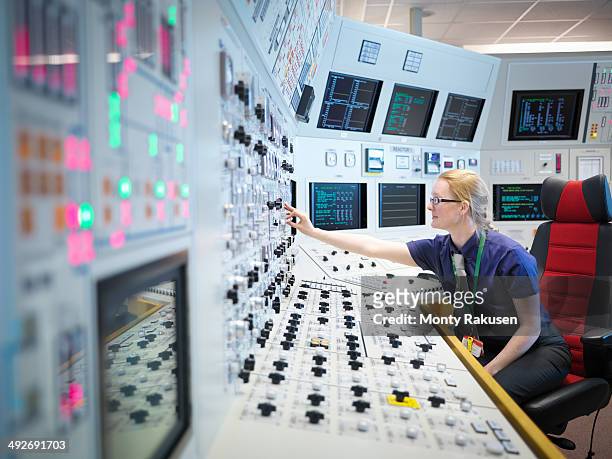
Nuclear Power Reactor Operators
Nuclear Power Reactor Operators are responsible for controlling and monitoring nuclear reactors to ensure safe and efficient power generation.

Power Distributors and Dispatchers
Power distributors and dispatchers are responsible for controlling the flow of electricity through transmission systems and ensuring that energy supply meets demand effectively.

Power Plant Operators
Power Plant Operators manage and control the systems that generate and distribute electric power.
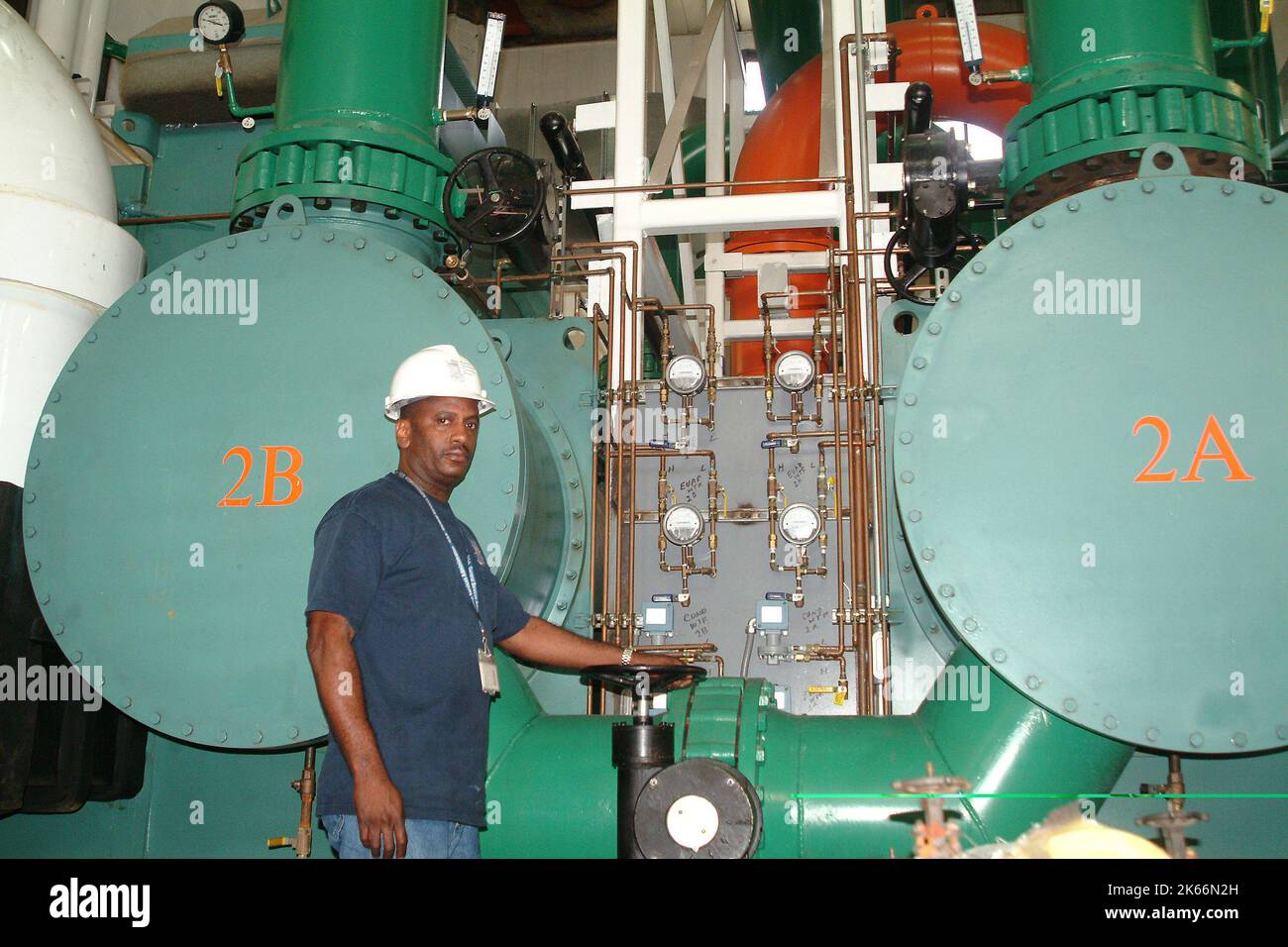
Stationary Engineers and Boiler Operators
Stationary engineers and boiler operators manage and maintain the machinery that generates and distributes heat and power in various facilities.
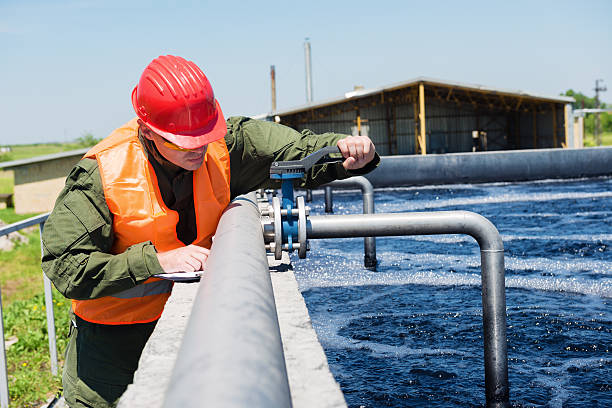
Water and Wastewater Treatment Plant and System Operators
Water and wastewater treatment plant and system operators manage the processes that ensure clean water supply and safe wastewater disposal.

Chemical Plant and System Operators
Chemical Plant and System Operators monitor and control chemical processes and equipment in industrial plants to ensure efficient production and safety.
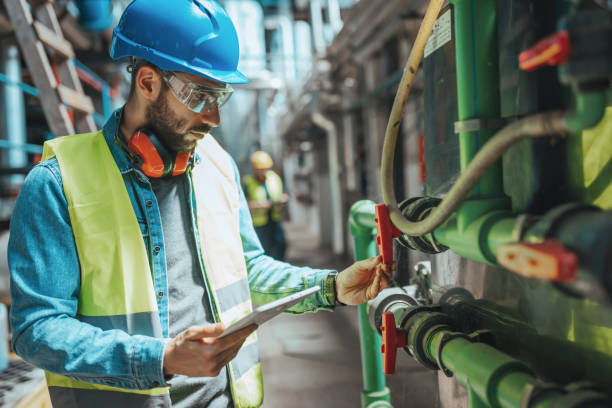
Gas Plant Operators
Gas Plant Operators are responsible for controlling and monitoring equipment used to extract and process natural gas.
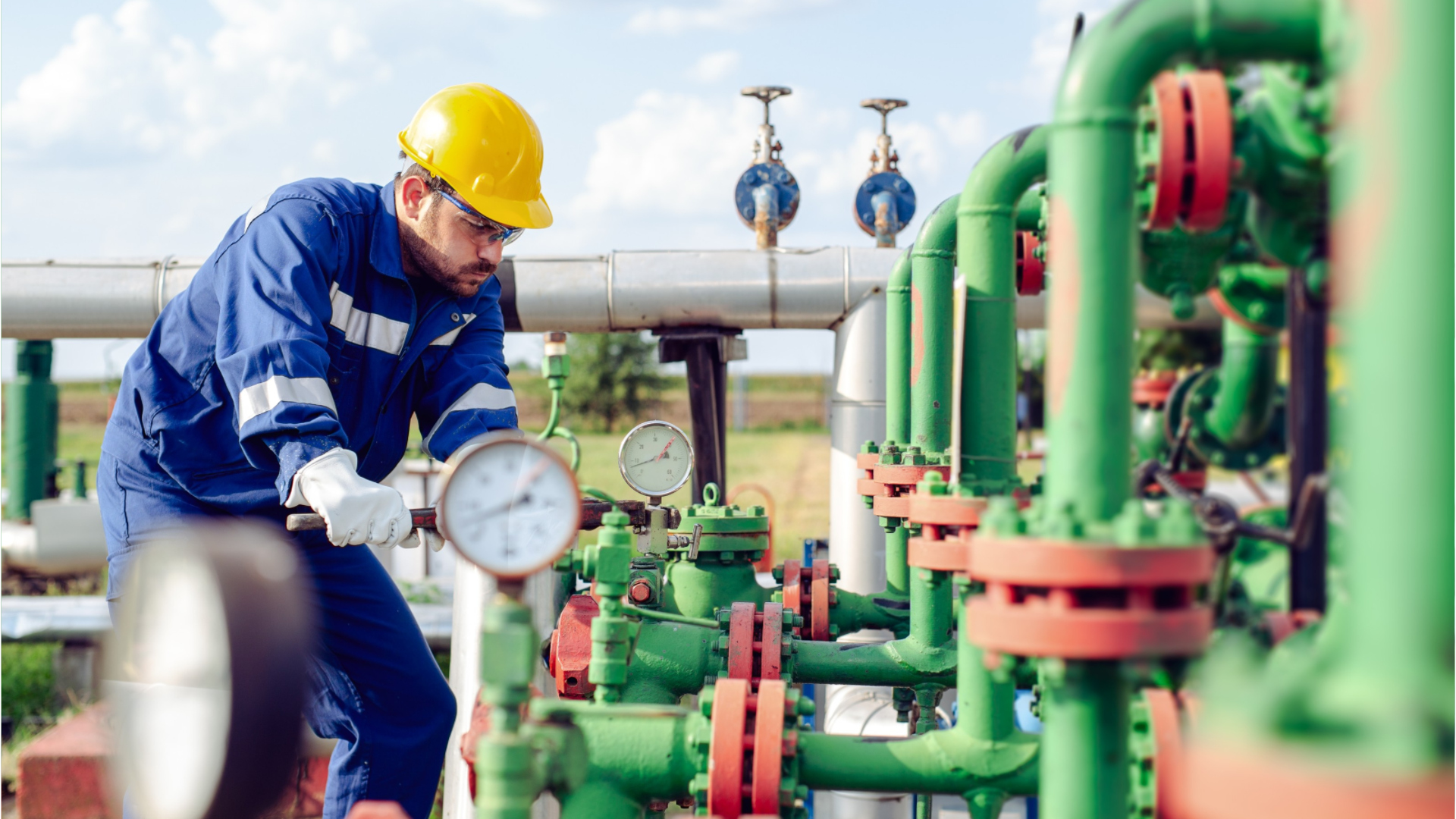
Petroleum Pump System Operators, Refinery Operators, and Gaugers
Petroleum Pump System Operators, Refinery Operators, and Gaugers are responsible for controlling and monitoring the equipment used in the production and distribution of oil and gas products.
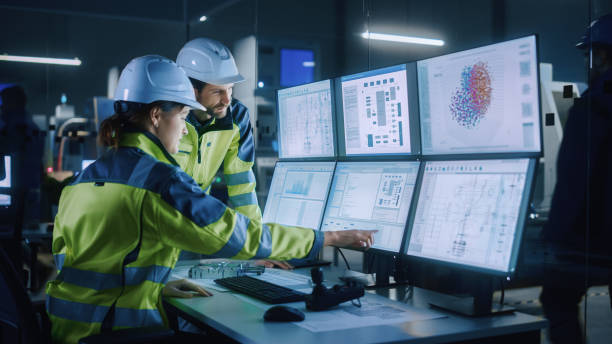
Plant and System Operators, All Other
Plant and System Operators, All Other manage operations in various facilities, ensuring that equipment and systems run smoothly and efficiently.

Chemical Equipment Operators and Tenders
Chemical Equipment Operators and Tenders operate and control equipment that processes chemicals, preparing substances for further manufacturing.
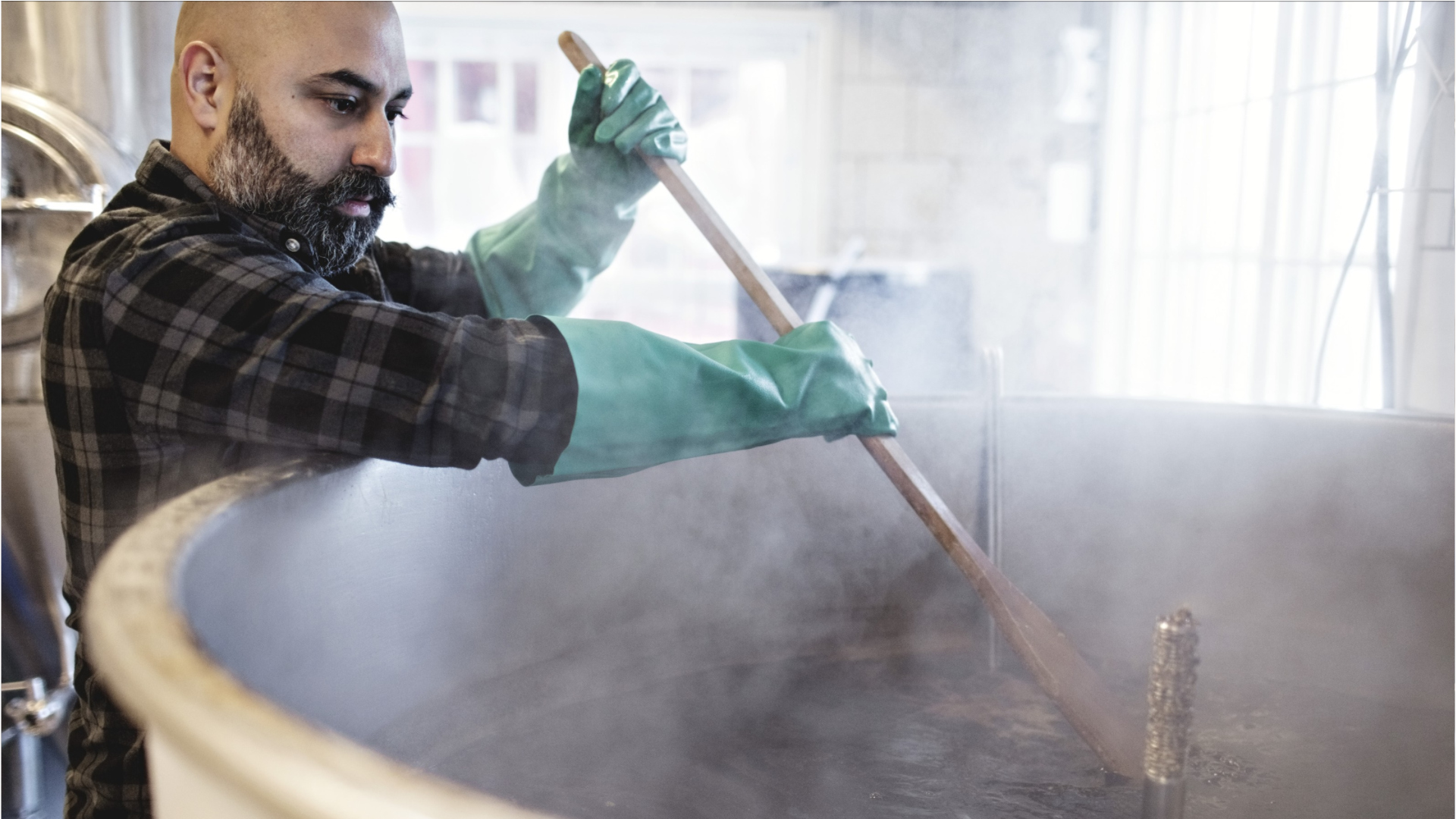
Separating, Filtering, Clarifying, Precipitating, and Still Machine Setters, Operators, and Tenders
Separating, Filtering, Clarifying, Precipitating, and Still Machine Setters, Operators, and Tenders are responsible for controlling and monitoring the machinery used to separate, filter, clarify, or precipitate substances in various industrial processes.

Crushing, Grinding, and Polishing Machine Setters, Operators, and Tenders
Crushing, Grinding, and Polishing Machine Setters, Operators, and Tenders are responsible for setting up, operating, and tending machines that crush, grind, and polish materials such as stone, glass, and metal.

Grinding and Polishing Workers, Hand
Grinding and polishing workers specialize in finishing metal and other surfaces to achieve a smooth, polished appearance using hand tools.

Mixing and Blending Machine Setters, Operators, and Tenders
Mixing and Blending Machine Setters, Operators, and Tenders are responsible for creating mixtures of various ingredients and materials according to specific formulas and guidelines.
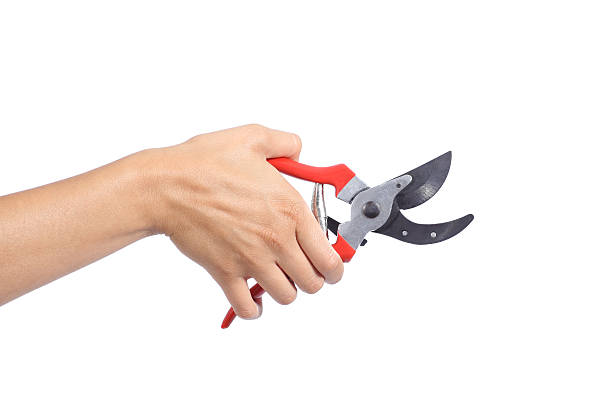
Cutters and Trimmers, Hand
Cutters and trimmers, hand, are skilled workers who use manual tools to cut and shape materials such as textiles, plastics, or wood for various purposes.

Cutting and Slicing Machine Setters, Operators, and Tenders
Cutting and Slicing Machine Setters, Operators, and Tenders are responsible for setting up and operating machines that cut and slice raw materials and products for manufacturing.

Extruding, Forming, Pressing, and Compacting Machine Setters, Operators, and Tenders
Extruding, forming, pressing, and compacting machine setters, operators, and tenders operate machinery that shapes plastic, metal, and other materials into defined forms.

Furnace, Kiln, Oven, Drier, and Kettle Operators and Tenders
Furnace, kiln, oven, drier, and kettle operators and tenders are responsible for managing and controlling the operation of equipment and processes involved in the heating or drying of materials.
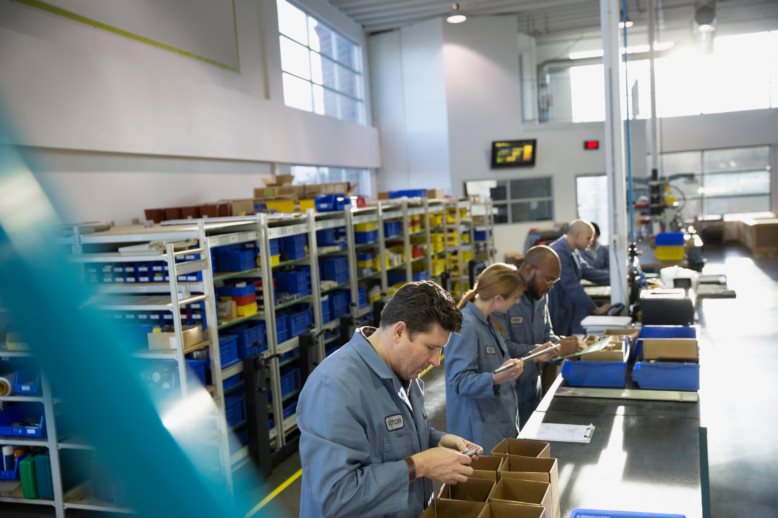
Inspectors, Testers, Sorters, Samplers, and Weighers
Inspectors, Testers, Sorters, Samplers, and Weighers ensure the quality and safety of products by examining, testing, and sampling materials and finished goods in various industries.
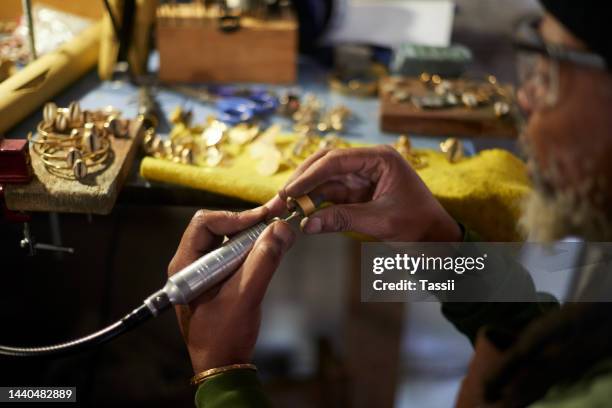
Jewelers and Precious Stone and Metal Workers
Jewelers and precious stone and metal workers design, create, and repair jewelry, as well as work with precious metals and stones.

Dental Laboratory Technicians
Dental Laboratory Technicians create and repair dental prosthetics, such as crowns, bridges, and dentures, based on prescriptions from dentists.

Medical Appliance Technicians
Medical Appliance Technicians design, fabricate, and fit medical devices and prosthetics for patients to enhance their physical abilities and improve their quality of life.

Ophthalmic Laboratory Technicians
Ophthalmic Laboratory Technicians are specialized professionals who prepare and fabricate lenses and eyeglasses according to prescriptions written by optometrists and ophthalmologists.

Packaging and Filling Machine Operators and Tenders
Packaging and Filling Machine Operators and Tenders are responsible for setting up, operating, and maintaining machinery that packs and fills products for distribution.

Painting, Coating, and Decorating Workers
Painting, Coating, and Decorating Workers apply paint, coatings, and decorative finishes to various surfaces, ensuring both aesthetic appeal and protection.

Coating, Painting, and Spraying Machine Setters, Operators, and Tenders
Coating, Painting, and Spraying Machine Setters, Operators, and Tenders operate machinery to apply coatings, paints, and finishes to a variety of surfaces.

Semiconductor Processing Technicians
Semiconductor Processing Technicians are responsible for the fabrication and testing of semiconductor devices, ensuring they meet quality and performance standards.
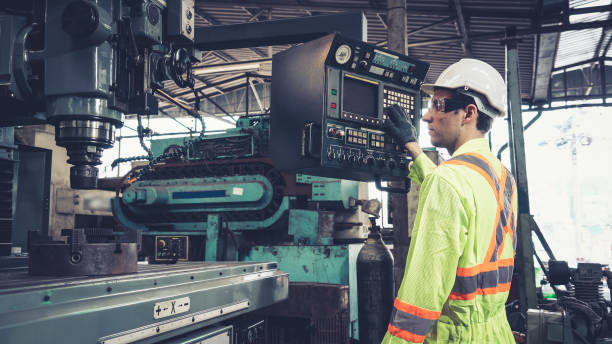
Photographic Process Workers and Processing Machine Operators
Photographic Process Workers and Processing Machine Operators are responsible for operating and maintaining machines that develop photographic materials and images.
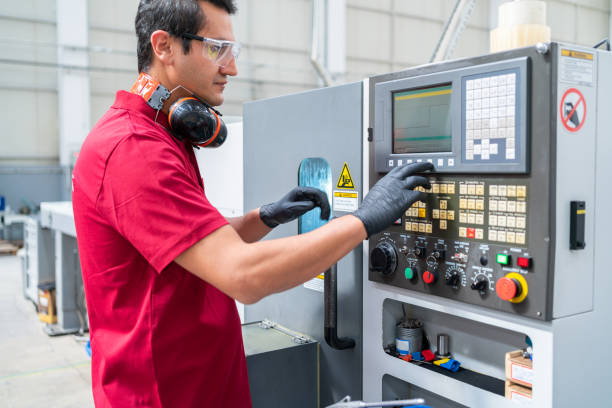
Computer Numerically Controlled Tool Operators
Computer Numerically Controlled (CNC) Tool Operators set up and operate CNC machines to manufacture precise components and products from various materials.
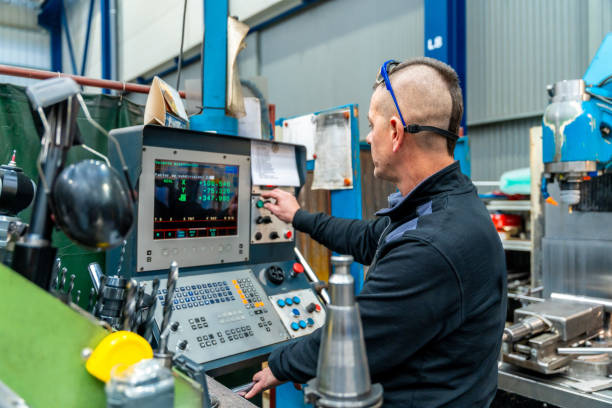
Computer Numerically Controlled Tool Programmers
Computer Numerically Controlled (CNC) Tool Programmers create and maintain programs for CNC machinery, enabling precise manufacturing and machining operations.

Adhesive Bonding Machine Operators and Tenders
Adhesive Bonding Machine Operators and Tenders are responsible for setting up and operating machines that bond materials together using adhesives.

Cleaning, Washing, and Metal Pickling Equipment Operators and Tenders
Cleaning, Washing, and Metal Pickling Equipment Operators and Tenders are responsible for operating machinery that cleans and prepares metal surfaces for further processing or painting.

Cooling and Freezing Equipment Operators and Tenders
Cooling and Freezing Equipment Operators and Tenders operate and monitor machinery that cools or freezes food and other products to preserve their freshness and quality.
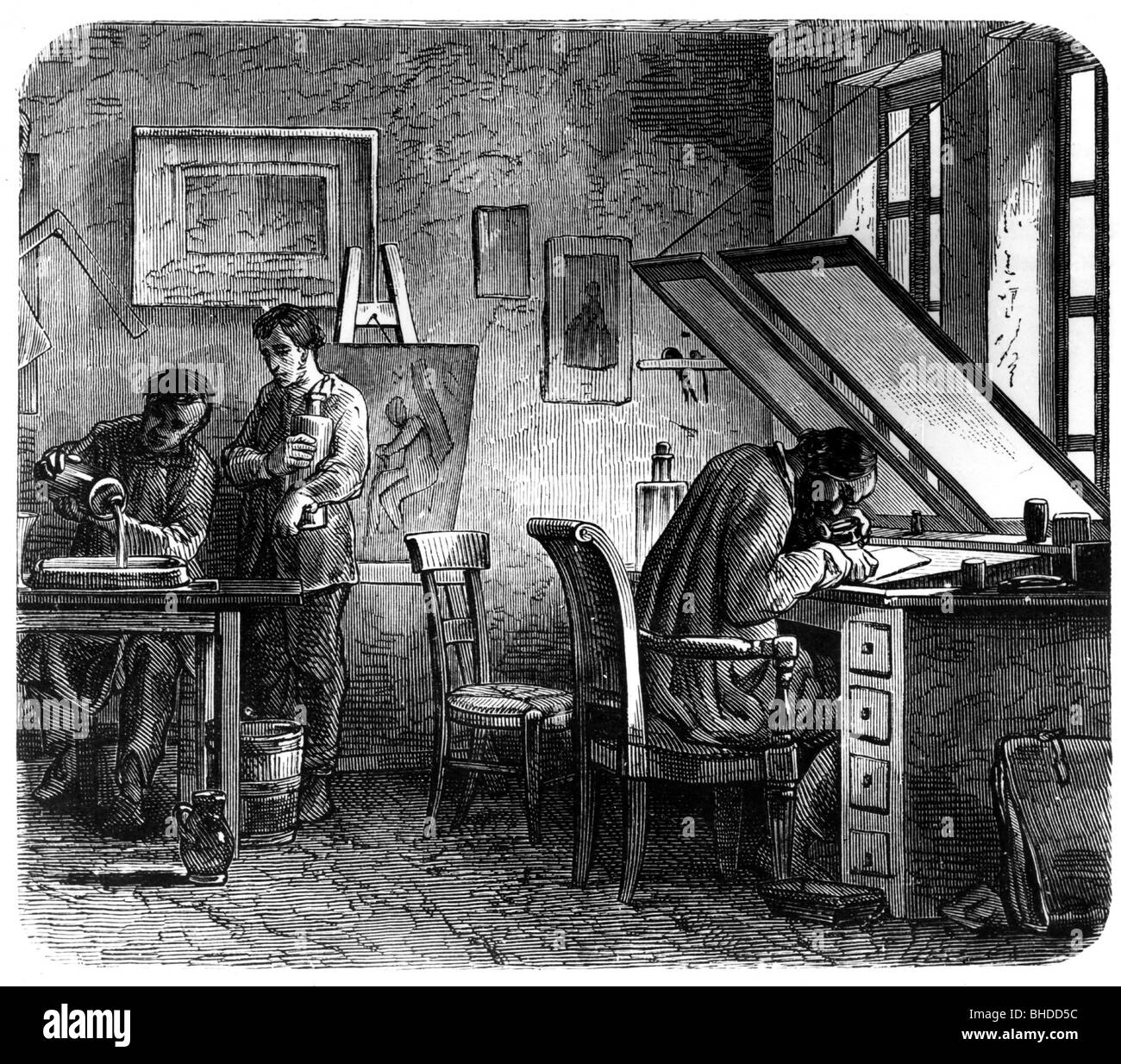
Etchers and Engravers
Etchers and engravers create detailed designs and images on various surfaces using a variety of techniques.

Molders, Shapers, and Casters, Except Metal and Plastic
Molders, shapers, and casters, except metal and plastic, create and shape materials into desired forms using various methods and tools.

Paper Goods Machine Setters, Operators, and Tenders
Paper Goods Machine Setters, Operators, and Tenders are responsible for operating and maintaining machinery that produces paper products.

Tire Builders
Tire builders manufacture tires for vehicles using a variety of materials and machines in a production environment.
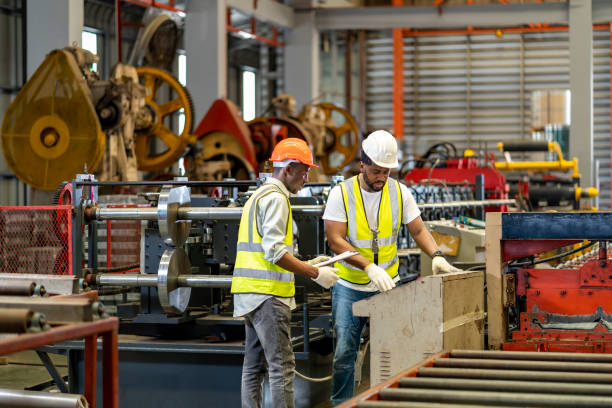
Helpers--Production Workers
Production Helpers assist in various tasks within manufacturing and production environments to support the production of goods.
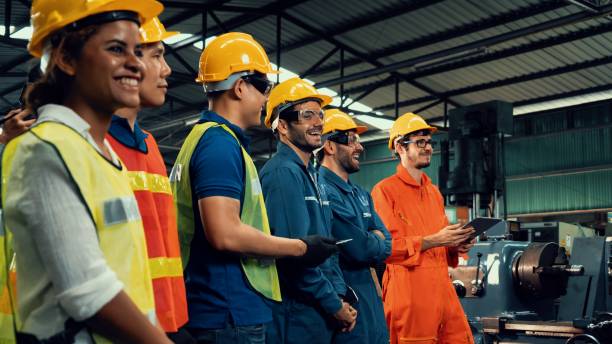
Production Workers, All Other
Production Workers, All Other handle a variety of tasks in manufacturing and production settings, assisting in the creation and assembly of products.
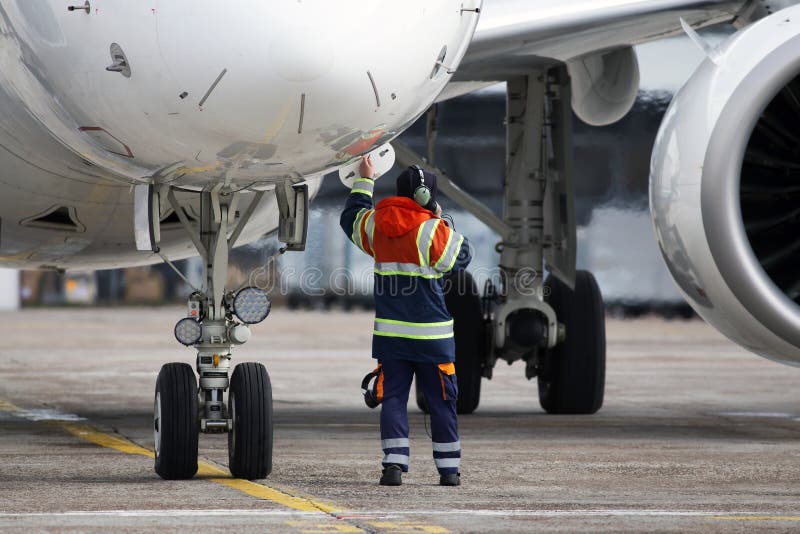
Aircraft Cargo Handling Supervisors
Aircraft Cargo Handling Supervisors oversee the loading and unloading of cargo on aircraft, ensuring safety and efficiency in air freight operations.

First-Line Supervisors of Transportation and Material Moving Workers, Except Aircraft Cargo Handling Supervisors
First-Line Supervisors of Transportation and Material Moving Workers oversee the daily operations of workers who transport materials and manage logistics.
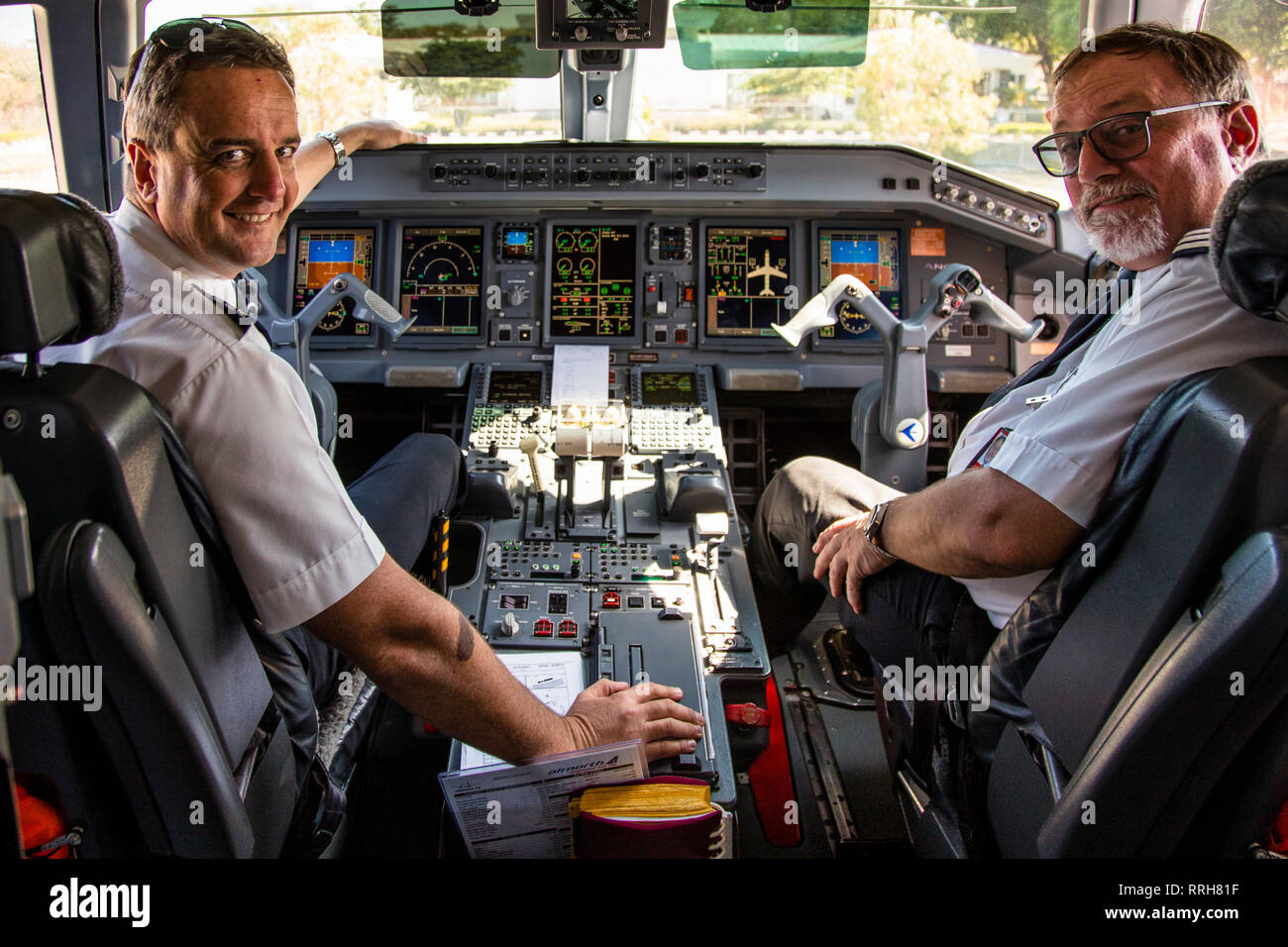
Airline Pilots, Copilots, and Flight Engineers
Airline pilots, copilots, and flight engineers are responsible for flying and navigating commercial aircraft, ensuring the safety and comfort of passengers and cargo alike.

Commercial Pilots
Commercial pilots operate aircraft for hire to transport passengers or deliver cargo over various distances.
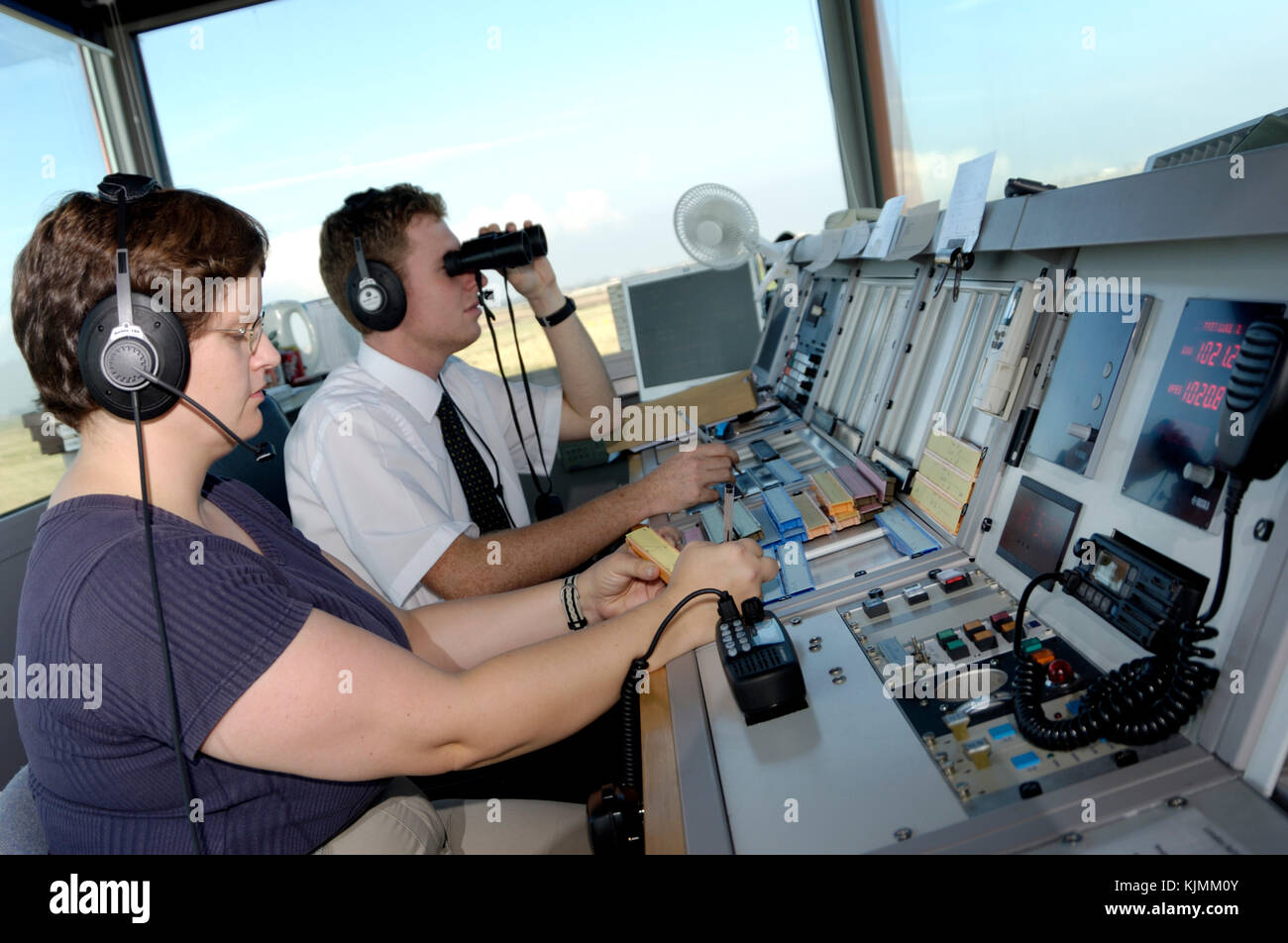
Air Traffic Controllers
Air Traffic Controllers coordinate the movement of aircraft in the skies and at airports, ensuring safe and efficient air traffic operations.
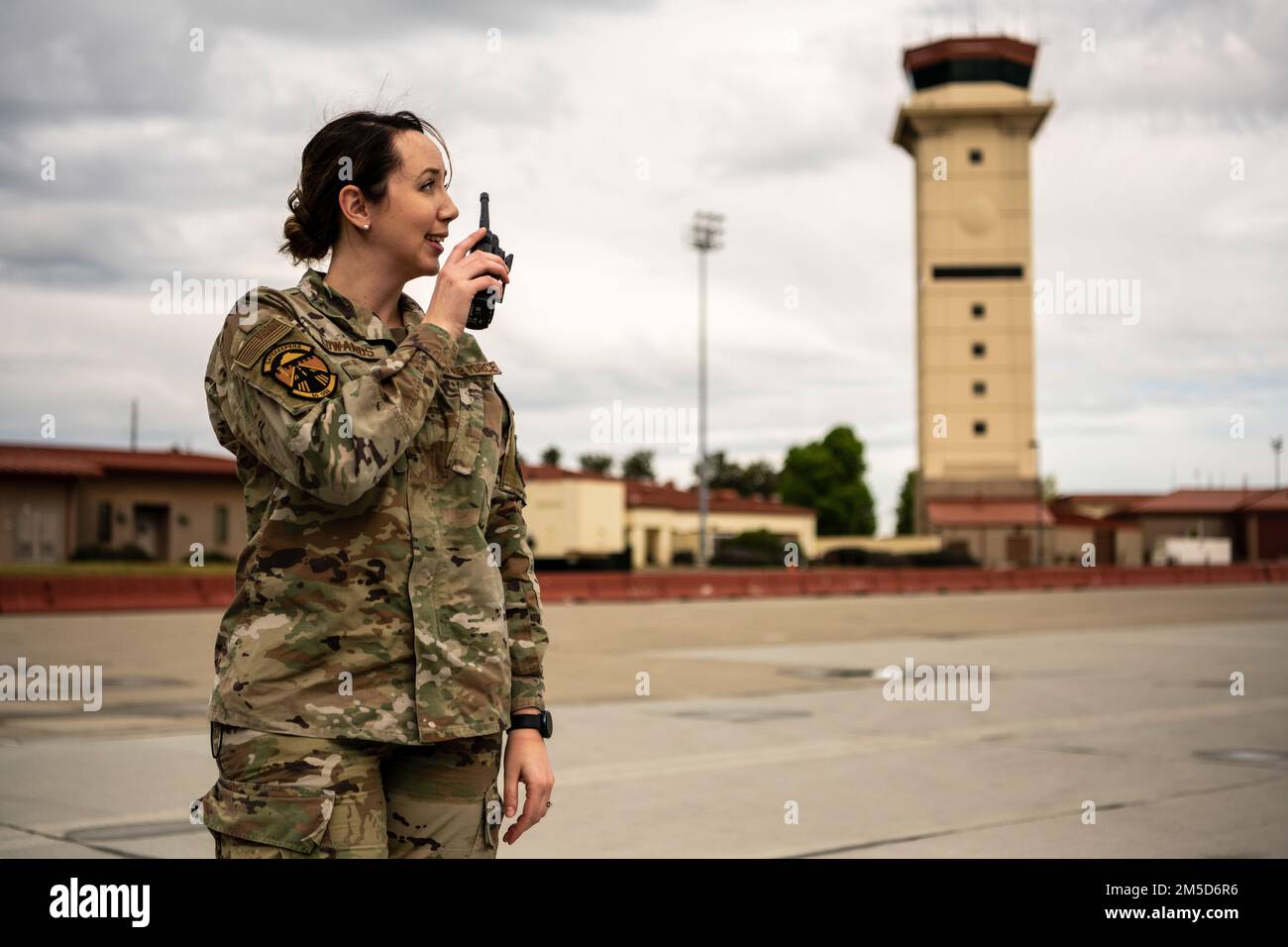
Airfield Operations Specialists
Airfield Operations Specialists oversee and ensure safe and efficient operations at airports, including the coordination of aircraft movements and compliance with aviation regulations.

Flight Attendants
Flight attendants ensure the safety and comfort of passengers during flights, providing services and handling emergencies when necessary.

Ambulance Drivers and Attendants, Except Emergency Medical Technicians
Ambulance drivers and attendants transport sick or injured people to medical facilities while ensuring their safety and comfort during transit.

Driver/Sales Workers
Driver/Sales Workers transport goods and engage in sales activities, ensuring products reach customers efficiently and effectively.

Heavy and Tractor-Trailer Truck Drivers
Heavy and tractor-trailer truck drivers transport goods over long distances, often across state or national borders.

Light Truck Drivers
Light truck drivers are responsible for transporting goods and materials using light trucks, typically weighing 10,000 pounds or less, ensuring timely and safe delivery to various locations.
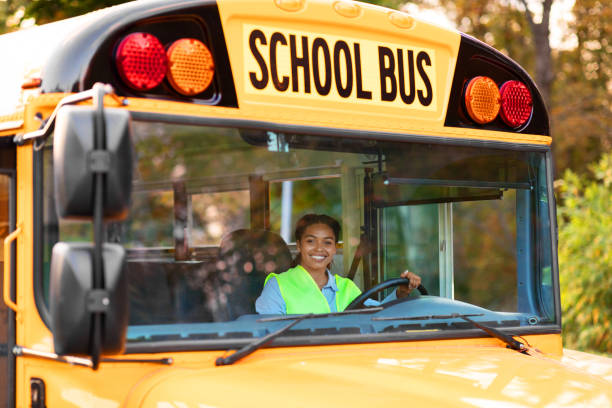
Bus Drivers, School
School bus drivers are responsible for the safe transportation of students to and from school and related events.
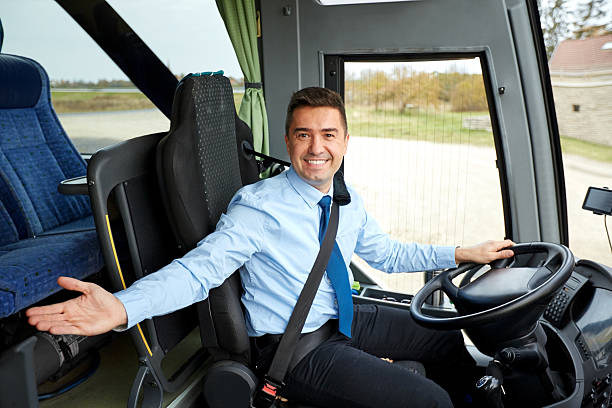
Bus Drivers, Transit and Intercity
Bus drivers in transit and intercity services operate buses to transport passengers along designated routes, ensuring safety and adherence to schedules.

Shuttle Drivers and Chauffeurs
Shuttle drivers and chauffeurs transport passengers to various locations, providing safe and reliable transportation services.

Taxi Drivers
Taxi drivers transport passengers to their desired destinations while ensuring safety and providing good customer service.
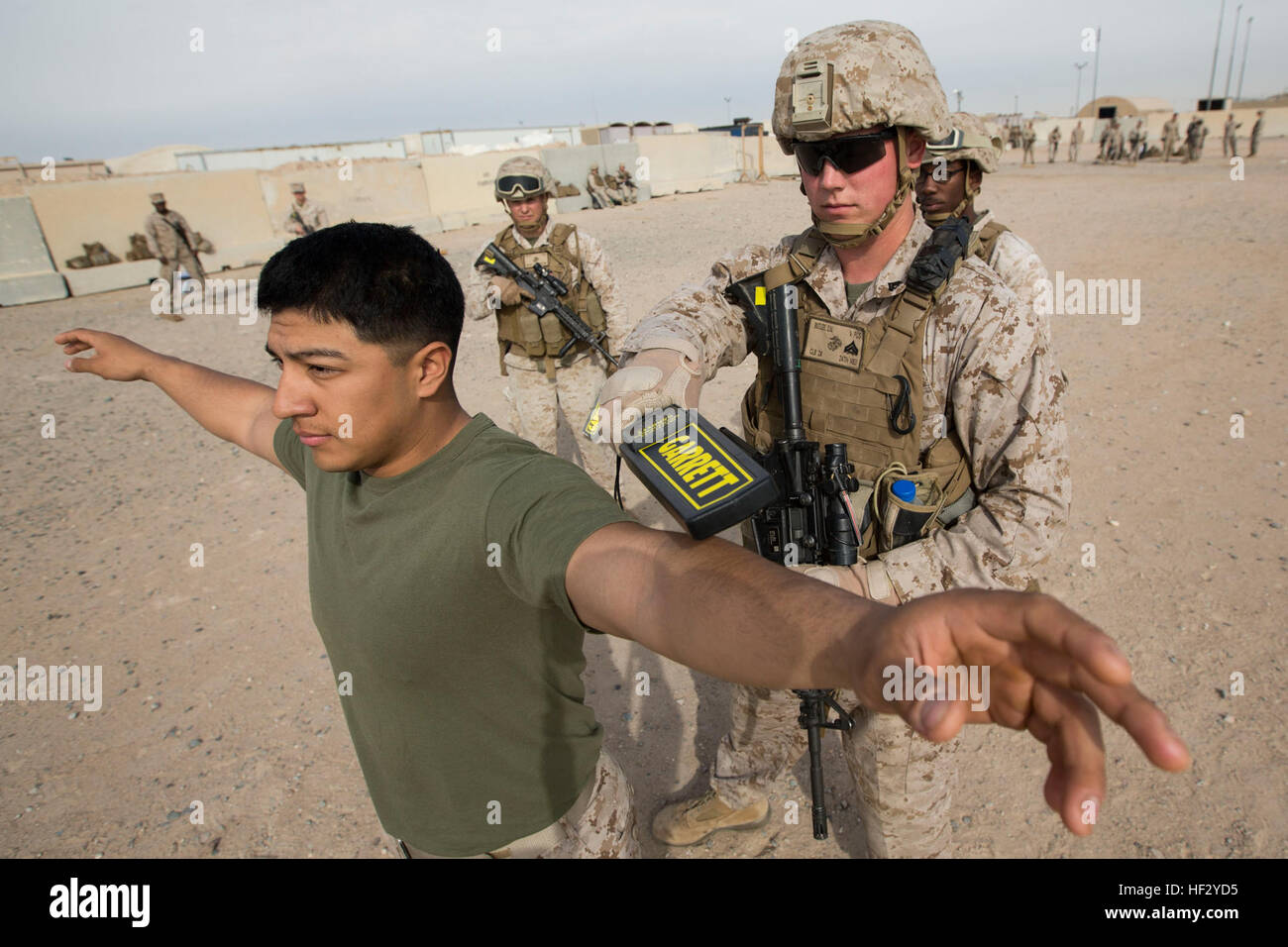
Motor Vehicle Operators, All Other
Motor Vehicle Operators, All Other are professionals responsible for driving vehicles that are not classified under standard operation categories, ensuring safe transportation of goods or passengers.

Locomotive Engineers
Locomotive engineers operate and drive freight or passenger trains, ensuring safe and timely transport of goods and people.

Rail Yard Engineers, Dinkey Operators, and Hostlers
Rail Yard Engineers, Dinkey Operators, and Hostlers are responsible for coordinating and managing the movement of trains and rail cars within rail yards.

Railroad Brake, Signal, and Switch Operators and Locomotive Firers
Railroad brake, signal, and switch operators and locomotive firers are responsible for controlling train movements, ensuring safe operation and signaling on railroads.

Railroad Conductors and Yardmasters
Railroad conductors and yardmasters oversee train operations, ensuring safety, communication, and efficiency in transporting goods and passengers.

Subway and Streetcar Operators
Subway and Streetcar Operators are responsible for safely operating trains and streetcars, ensuring passenger transport across urban routes.

Rail Transportation Workers, All Other
Rail Transportation Workers, All Other are responsible for various supportive roles that ensure the smooth operation of the railroad industry, engaging in tasks that do not fall under more specialized job titles.

Sailors and Marine Oilers
Sailors and Marine Oilers are responsible for operating and maintaining water vessels, ensuring the safety and efficiency of maritime operations.

Captains, Mates, and Pilots of Water Vessels
Captains, Mates, and Pilots of Water Vessels are responsible for navigating and operating ships and boats, ensuring safe and efficient transportation across water bodies.
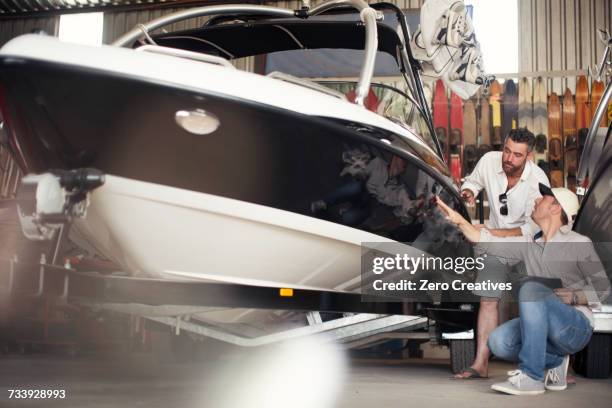
Motorboat Operators
Motorboat Operators are responsible for navigating and operating motorized boats for various purposes, including recreation, transportation, and commercial activities.
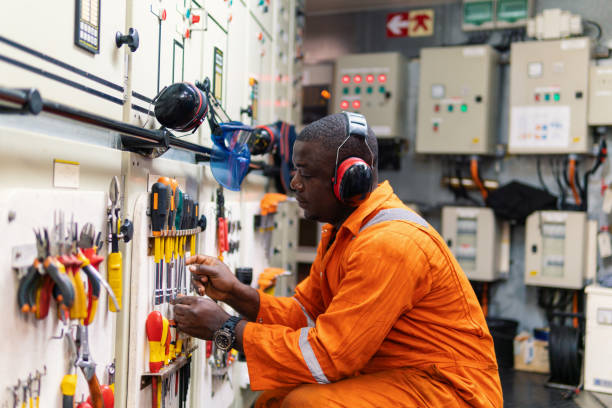
Ship Engineers
Ship engineers are responsible for the operation and maintenance of a vessel's machinery and systems to ensure safe and efficient maritime journeys.

Bridge and Lock Tenders
Bridge and Lock Tenders operate equipment to control the flow of boat traffic and manage the opening and closing of bridges and locks on waterways.

Parking Attendants
Parking attendants are responsible for managing parking facilities, ensuring the proper allocation of parking spaces and assisting customers with their parking needs.
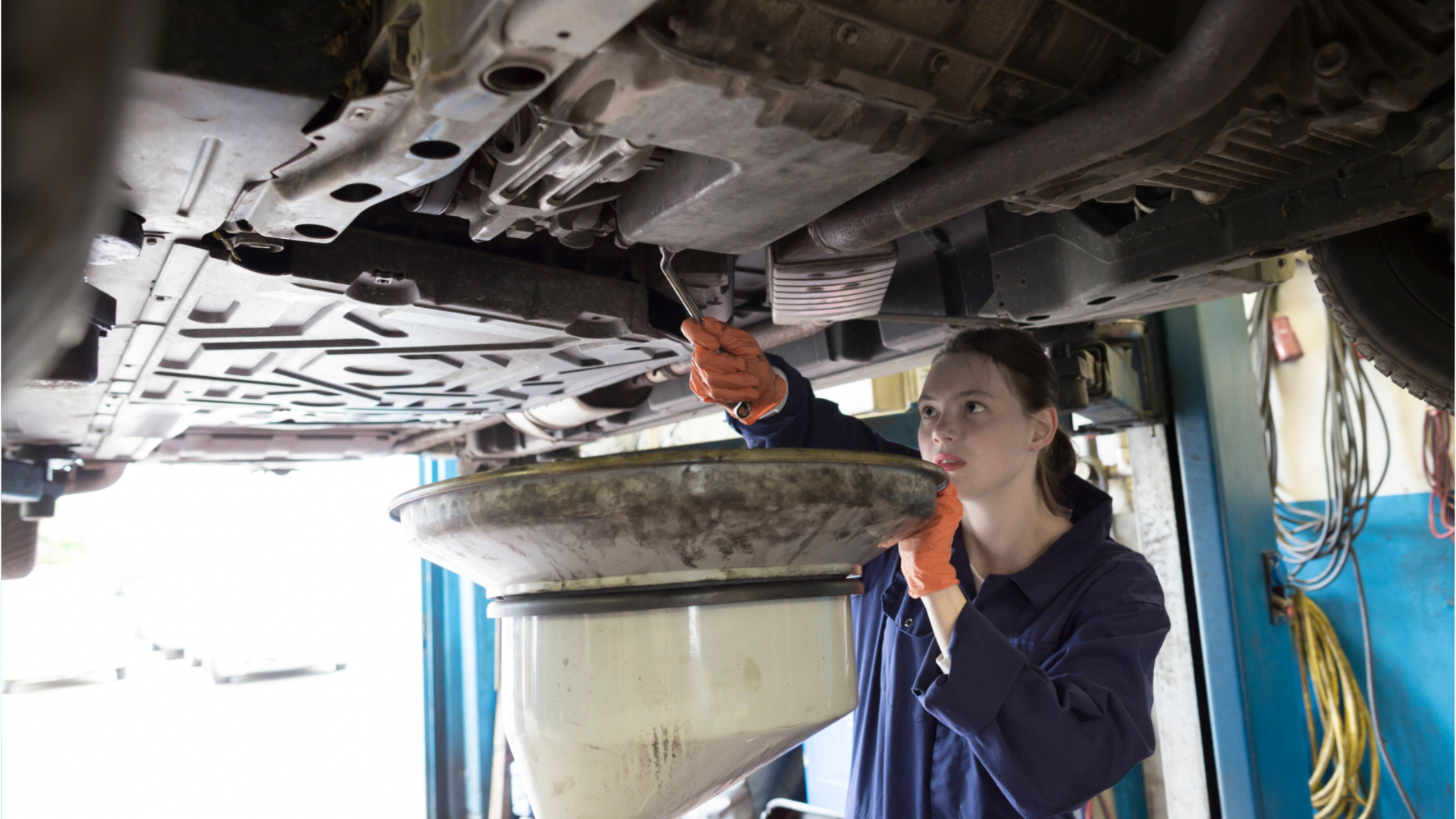
Automotive and Watercraft Service Attendants
Automotive and Watercraft Service Attendants provide essential services to customers at vehicle service stations, marinas, and other service outlets, focusing on customer satisfaction and safety.

Aircraft Service Attendants
Aircraft Service Attendants are responsible for ensuring that aircraft are ready for departure by performing a variety of maintenance and support tasks on the ground.

Traffic Technicians
Traffic Technicians monitor and manage traffic flow on roadways using various technologies and methodologies to improve road safety and efficiency.
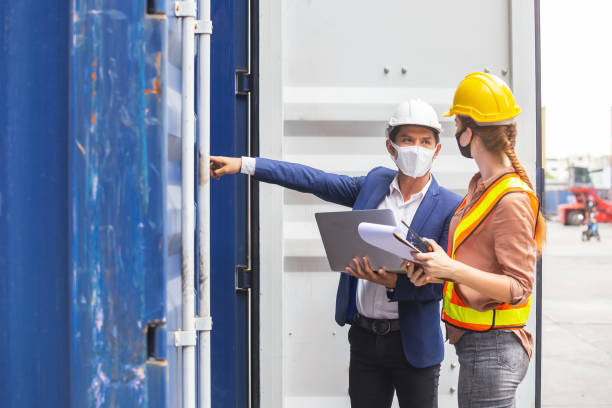
Transportation Inspectors
Transportation Inspectors ensure the safety and efficiency of transportation systems by monitoring compliance with regulations and standards.

Passenger Attendants
Passenger attendants ensure the safety, comfort, and satisfaction of passengers during their travel experience.

Transportation Workers, All Other
Transportation workers, all other, refer to individuals involved in various transportation roles not specifically categorized under other job titles.
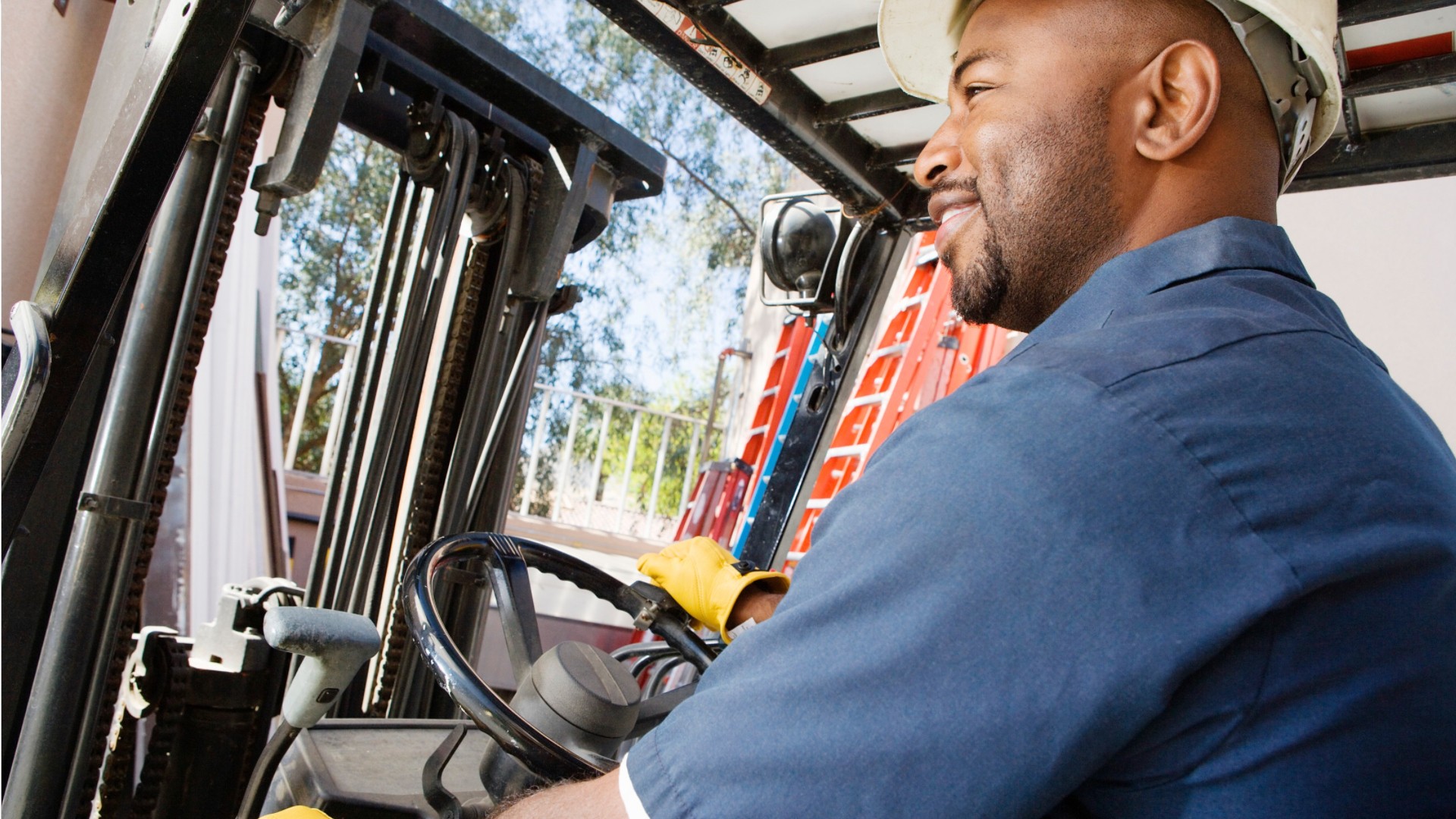
Conveyor Operators and Tenders
Conveyor Operators and Tenders manage and maintain conveyor systems that transport materials and products in manufacturing and warehouse settings.

Crane and Tower Operators
Crane and Tower Operators are skilled professionals responsible for operating cranes and hoisting equipment to lift, move, and position loads securely at construction sites and industrial facilities.

Dredge Operators
Dredge Operators are responsible for operating and managing dredging equipment to excavate and remove sediments or material from waterways.
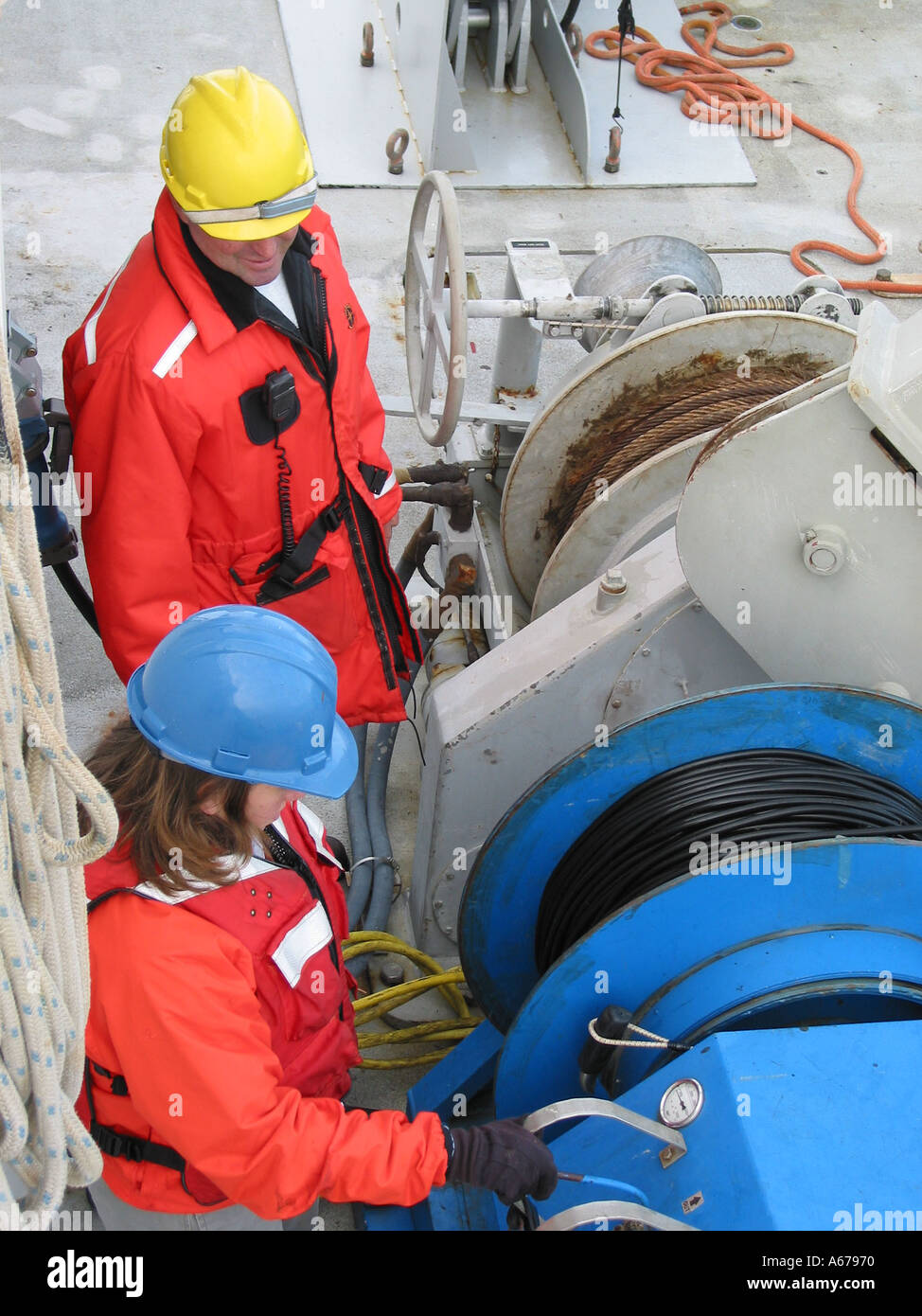
Hoist and Winch Operators
Hoist and winch operators manage and operate machines that lift and move heavy loads in various industries.

Industrial Truck and Tractor Operators
Industrial Truck and Tractor Operators are responsible for operating heavy machinery to transport materials and goods in various industrial settings, ensuring efficiency and safety on the job.

Cleaners of Vehicles and Equipment
Cleaners of Vehicles and Equipment are responsible for maintaining the cleanliness and appearance of various types of vehicles and machinery.

Laborers and Freight, Stock, and Material Movers, Hand
Laborers and Freight, Stock, and Material Movers, Hand are responsible for the physical handling of goods, materials, and freight, ensuring efficient transportation within warehouses, shipping centers, and construction sites.

Machine Feeders and Offbearers
Machine feeders and offbearers are responsible for supplying materials to machines and removing finished products or materials as part of a manufacturing process.

Packers and Packagers, Hand
Packers and packagers, hand, are responsible for preparing and packing products for shipment and retail sales, ensuring quality and efficiency in the packaging process.

Stockers and Order Fillers
Stockers and Order Fillers are responsible for stocking shelves, organizing products, and preparing items for customer orders in retail and warehouse environments.

Gas Compressor and Gas Pumping Station Operators
Gas Compressor and Gas Pumping Station Operators manage and oversee the equipment that compresses and moves natural gas through pipelines for distribution.
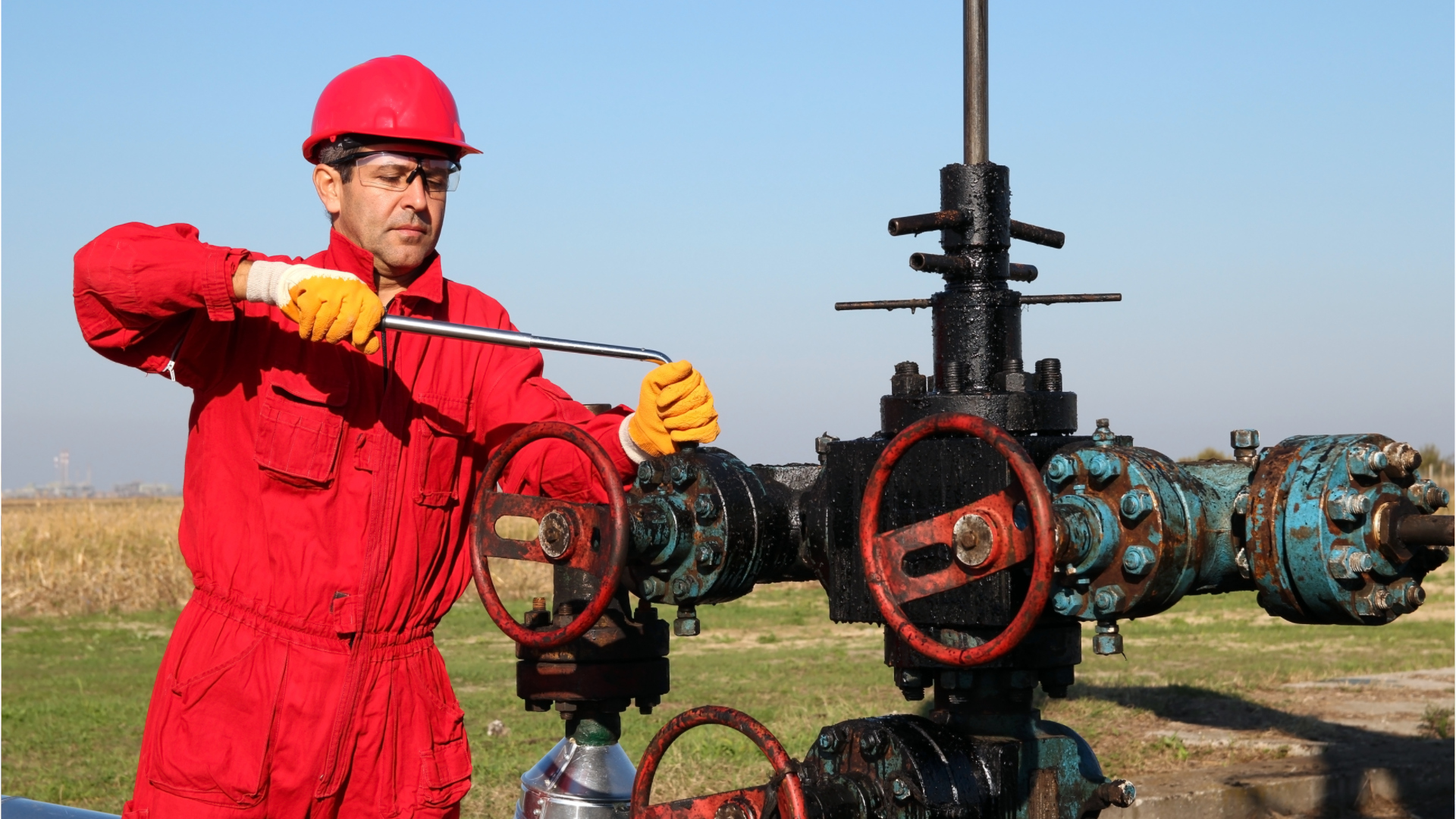
Pump Operators, Except Wellhead Pumpers
Pump operators manage the operation of pumps and pumping systems to move liquids, gases, or slurry within various industries.
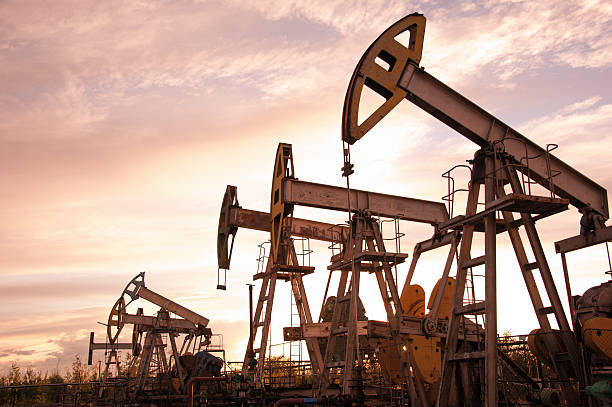
Wellhead Pumpers
Wellhead pumpers are responsible for overseeing the operation and maintenance of oil and gas well production equipment.

Refuse and Recyclable Material Collectors
Refuse and recyclable material collectors are responsible for the collection and disposal of waste and recyclable materials from residences and businesses.
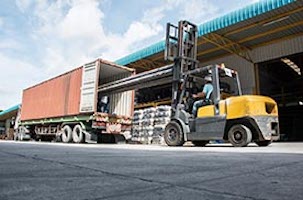
Tank Car, Truck, and Ship Loaders
Tank Car, Truck, and Ship Loaders are responsible for loading and unloading bulk liquids and gases from transport vehicles like tank cars, trucks, and ships.

Material Moving Workers, All Other
Material moving workers, all other handle the transportation of materials not covered by other specific material moving occupations.